No products in the cart.
Molly McGowan
Book Description
You are probably closer to understanding personal branding than you realize. A lot closer. In fact, chances are that with the right strategies and shortcuts, you could enjoy positioning yourself as the go-to-expert overnight.
However, before you can enjoy those benefits, you are going to have to do a little work. It should take you less than 4 hours. That’s approximately how long it will take you to uncover the key secrets to augmenting your personal strengths and appearance to benefit your professional positioning.
Listen, in today’s pluralistic “anything goes” society it is hard to find that “golden middle” which allows you to express yourself and be recognized and respected in your field. But that’s not a problem because Molly McGowan has uncovered the keys over the past years and distilled them in this must have personal branding guide.
Secure a copy of this book today and once you get it, crack open the cover and discover how to pull the best out of yourself and receive the respect in the work field you deserve!
About the Author
Do you ever look at them through the eyes of your clients, or competitors, or just as if you’re seeing them for the first time? Because people don’t just work for a company. They represent that company to everyone they come in contact with.
To many of those people, they ARE the company.
Whether they’re on the outside….making sales calls, meeting with clients, working with them on projects…..or on the inside….answering phones, working in an office or cubicle or at the front desk.
Truly successful companies know this, and make sure their employees’ personal brands match their corporate brand.
But even many of the smartest and most successful business executives often overlook their employees’ personal brand, and how it relates to their company.
My book, “Own Your Personal Brand: The 7 Key Abilities Every Business Professional Should Have”, provides a blueprint for building the right brand, and making it a key component in professional success.
So what is personal branding? It’s much more than how you dress.
Personal branding is all about marketing yourself to the world.
What’s your story? How are you telling it?
Our brand is our way of determining how the world sees us, and interprets the verbal and non-verbal messages we’re sending.
Your brand is your image.
And image is everything. Nike didn’t get where they are just with a slogan.
Your employees represent your corporate culture to the world.
When their personal brands work hand in hand with your business brand, it provides many of the same benefits as soft skills development, both in the office and in the field.
Increased productivity and close rate.
A unified team and a better work environment.
When personal brands match the company brand, individual success leads to collective success.
So take a closer look at your employees. Especially the key ones. What’s their brand? Do they have one? Does their personal brand match your company brand?
When that happens, individual success leads to collective success.
Here’s something else to consider as you take that closer look at your employees.
How well do they work with each other? Or their managers, or the people they manage?
How well do they relate to clients and vendors and other people outside the company?
Those are important questions…but here’s one that’s more important: How well do you know the answers?
Unfortunately, in too many companies the answer to that last question is “not very well”.
That’s because many companies don’t take advantage of valuable tools to help them gauge and improve teamwork and communication.
For example, DISC Assessment.
Many Human Resources professionals know the value of that one first-hand…either from undergoing one themselves, or having key employees evaluated.
The key difference between DISC and others is it doesn’t assess personality traits, it assesses someone’s behavior in different circumstances and situations.
The four behavior types are Dominance, Inducement, Submission, and Compliance.
Think about how those types interact. Think about how much you could increase productivity if you knew which employee was which type.
Think about the benefits of understanding the likely reactions of key employees in specific situations. Or in specific teams. Or with specific managers.
One of the reasons I became certified in DISC Assessment, so I could make it a key component in my coaching programs, was to help companies get much more out of their employees.
It helps them determine leadership and groom future managers.
Many companies even use it during the interview stage to screen potential employees.
Would it benefit your company to have certain behavioral types in certain jobs?
Another important benefit of behavior assessments is helping to keep valuable employees.
One of the biggest challenges any company faces is not just recruiting the right employees, but retaining them.
A recent study said US companies lose 25% of new employees within a year. And when you think about what it costs to recruit, hire and train every new employee, making a bad hire can be a very costly mistake.
The HR professionals questioned in that study said one of the top reasons new employees leave is their relationship with their manager.
Being able to predict behavior goes a long way toward preventing problems with those relationships.
No one wants to put good people in situations where they’re destined to fail.
Here’s something else to consider. Many HR professionals don’t know employees are unhappy until they leave. We interview people when we want to hire them. We do exit interviews when they leave. But how often do we do “stay” interviews? Assessments like DISC give us the chance to do that.
The more you know about your employees…from their personal brand to their professional skills….the more you can do to help them succeed. And when they succeed, your company does too.|Do you ever look at them through the eyes of your clients, or competitors, or just as if you’re seeing them for the first time? Because people don’t just work for a company. They represent that company to everyone they come in contact with.
To many of those people, they ARE the company.
Whether they’re on the outside….making sales calls, meeting with clients, working with them on projects…..or on the inside….answering phones, working in an office or cubicle or at the front desk.
Truly successful companies know this, and make sure their employees’ personal brands match their corporate brand.
But even many of the smartest and most successful business executives often overlook their employees’ personal brand, and how it relates to their company.
My book, “Own Your Personal Brand: The 7 Key Abilities Every Business Professional Should Have”, provides a blueprint for building the right brand, and making it a key component in professional success.
So what is personal branding? It’s much more than how you dress.
Personal branding is all about marketing yourself to the world.
What’s your story? How are you telling it?
Our brand is our way of determining how the world sees us, and interprets the verbal and non-verbal messages we’re sending.
Your brand is your image.
And image is everything. Nike didn’t get where they are just with a slogan.
Your employees represent your corporate culture to the world.
When their personal brands work hand in hand with your business brand, it provides many of the same benefits as soft skills development, both in the office and in the field.
Increased productivity and close rate.
A unified team and a better work environment.
When personal brands match the company brand, individual success leads to collective success.
So take a closer look at your employees. Especially the key ones. What’s their brand? Do they have one? Does their personal brand match your company brand?
When that happens, individual success leads to collective success.
Here’s something else to consider as you take that closer look at your employees.
How well do they work with each other? Or their managers, or the people they manage?
How well do they relate to clients and vendors and other people outside the company?
Those are important questions…but here’s one that’s more important: How well do you know the answers?
Unfortunately, in too many companies the answer to that last question is “not very well”.
That’s because many companies don’t take advantage of valuable tools to help them gauge and improve teamwork and communication.
For example, DISC Assessment.
Many Human Resources professionals know the value of that one first-hand…either from undergoing one themselves, or having key employees evaluated.
The key difference between DISC and others is it doesn’t assess personality traits, it assesses someone’s behavior in different circumstances and situations.
The four behavior types are Dominance, Inducement, Submission, and Compliance.
Think about how those types interact. Think about how much you could increase productivity if you knew which employee was which type.
Think about the benefits of understanding the likely reactions of key employees in specific situations. Or in specific teams. Or with specific managers.
One of the reasons I became certified in DISC Assessment, so I could make it a key component in my coaching programs, was to help companies get much more out of their employees.
It helps them determine leadership and groom future managers.
Many companies even use it during the interview stage to screen potential employees.
Would it benefit your company to have certain behavioral types in certain jobs?
Another important benefit of behavior assessments is helping to keep valuable employees.
One of the biggest challenges any company faces is not just recruiting the right employees, but retaining them.
A recent study said US companies lose 25% of new employees within a year. And when you think about what it costs to recruit, hire and train every new employee, making a bad hire can be a very costly mistake.
The HR professionals questioned in that study said one of the top reasons new employees leave is their relationship with their manager.
Being able to predict behavior goes a long way toward preventing problems with those relationships.
No one wants to put good people in situations where they’re destined to fail.
Here’s something else to consider. Many HR professionals don’t know employees are unhappy until they leave. We interview people when we want to hire them. We do exit interviews when they leave. But how often do we do “stay” interviews? Assessments like DISC give us the chance to do that.
The more you know about your employees…from their personal brand to their professional skills….the more you can do to help them succeed. And when they succeed, your company does too.|Do you ever look at them through the eyes of your clients, or competitors, or just as if you’re seeing them for the first time? Because people don’t just work for a company. They represent that company to everyone they come in contact with.
To many of those people, they ARE the company.
Whether they’re on the outside….making sales calls, meeting with clients, working with them on projects…..or on the inside….answering phones, working in an office or cubicle or at the front desk.
Truly successful companies know this, and make sure their employees’ personal brands match their corporate brand.
But even many of the smartest and most successful business executives often overlook their employees’ personal brand, and how it relates to their company.
My book, “Own Your Personal Brand: The 7 Key Abilities Every Business Professional Should Have”, provides a blueprint for building the right brand, and making it a key component in professional success.
So what is personal branding? It’s much more than how you dress.
Personal branding is all about marketing yourself to the world.
What’s your story? How are you telling it?
Our brand is our way of determining how the world sees us, and interprets the verbal and non-verbal messages we’re sending.
Your brand is your image.
And image is everything. Nike didn’t get where they are just with a slogan.
Your employees represent your corporate culture to the world.
When their personal brands work hand in hand with your business brand, it provides many of the same benefits as soft skills development, both in the office and in the field.
Increased productivity and close rate.
A unified team and a better work environment.
When personal brands match the company brand, individual success leads to collective success.
So take a closer look at your employees. Especially the key ones. What’s their brand? Do they have one? Does their personal brand match your company brand?
When that happens, individual success leads to collective success.
Here’s something else to consider as you take that closer look at your employees.
How well do they work with each other? Or their managers, or the people they manage?
How well do they relate to clients and vendors and other people outside the company?
Those are important questions…but here’s one that’s more important: How well do you know the answers?
Unfortunately, in too many companies the answer to that last question is “not very well”.
That’s because many companies don’t take advantage of valuable tools to help them gauge and improve teamwork and communication.
For example, DISC Assessment.
Many Human Resources professionals know the value of that one first-hand…either from undergoing one themselves, or having key employees evaluated.
The key difference between DISC and others is it doesn’t assess personality traits, it assesses someone’s behavior in different circumstances and situations.
The four behavior types are Dominance, Inducement, Submission, and Compliance.
Think about how those types interact. Think about how much you could increase productivity if you knew which employee was which type.
Think about the benefits of understanding the likely reactions of key employees in specific situations. Or in specific teams. Or with specific managers.
One of the reasons I became certified in DISC Assessment, so I could make it a key component in my coaching programs, was to help companies get much more out of their employees.
It helps them determine leadership and groom future managers.
Many companies even use it during the interview stage to screen potential employees.
Would it benefit your company to have certain behavioral types in certain jobs?
Another important benefit of behavior assessments is helping to keep valuable employees.
One of the biggest challenges any company faces is not just recruiting the right employees, but retaining them.
A recent study said US companies lose 25% of new employees within a year. And when you think about what it costs to recruit, hire and train every new employee, making a bad hire can be a very costly mistake.
The HR professionals questioned in that study said one of the top reasons new employees leave is their relationship with their manager.
Being able to predict behavior goes a long way toward preventing problems with those relationships.
No one wants to put good people in situations where they’re destined to fail.
Here’s something else to consider. Many HR professionals don’t know employees are unhappy until they leave. We interview people when we want to hire them. We do exit interviews when they leave. But how often do we do “stay” interviews? Assessments like DISC give us the chance to do that.
The more you know about your employees…from their personal brand to their professional skills….the more you can do to help them succeed. And when they succeed, your company does too.|Do you ever look at them through the eyes of your clients, or competitors, or just as if you’re seeing them for the first time? Because people don’t just work for a company. They represent that company to everyone they come in contact with.
To many of those people, they ARE the company.
Whether they’re on the outside….making sales calls, meeting with clients, working with them on projects…..or on the inside….answering phones, working in an office or cubicle or at the front desk.
Truly successful companies know this, and make sure their employees’ personal brands match their corporate brand.
But even many of the smartest and most successful business executives often overlook their employees’ personal brand, and how it relates to their company.
My book, “Own Your Personal Brand: The 7 Key Abilities Every Business Professional Should Have”, provides a blueprint for building the right brand, and making it a key component in professional success.
So what is personal branding? It’s much more than how you dress.
Personal branding is all about marketing yourself to the world.
What’s your story? How are you telling it?
Our brand is our way of determining how the world sees us, and interprets the verbal and non-verbal messages we’re sending.
Your brand is your image.
And image is everything. Nike didn’t get where they are just with a slogan.
Your employees represent your corporate culture to the world.
When their personal brands work hand in hand with your business brand, it provides many of the same benefits as soft skills development, both in the office and in the field.
Increased productivity and close rate.
A unified team and a better work environment.
When personal brands match the company brand, individual success leads to collective success.
So take a closer look at your employees. Especially the key ones. What’s their brand? Do they have one? Does their personal brand match your company brand?
When that happens, individual success leads to collective success.
Here’s something else to consider as you take that closer look at your employees.
How well do they work with each other? Or their managers, or the people they manage?
How well do they relate to clients and vendors and other people outside the company?
Those are important questions…but here’s one that’s more important: How well do you know the answers?
Unfortunately, in too many companies the answer to that last question is “not very well”.
That’s because many companies don’t take advantage of valuable tools to help them gauge and improve teamwork and communication.
For example, DISC Assessment.
Many Human Resources professionals know the value of that one first-hand…either from undergoing one themselves, or having key employees evaluated.
The key difference between DISC and others is it doesn’t assess personality traits, it assesses someone’s behavior in different circumstances and situations.
The four behavior types are Dominance, Inducement, Submission, and Compliance.
Think about how those types interact. Think about how much you could increase productivity if you knew which employee was which type.
Think about the benefits of understanding the likely reactions of key employees in specific situations. Or in specific teams. Or with specific managers.
One of the reasons I became certified in DISC Assessment, so I could make it a key component in my coaching programs, was to help companies get much more out of their employees.
It helps them determine leadership and groom future managers.
Many companies even use it during the interview stage to screen potential employees.
Would it benefit your company to have certain behavioral types in certain jobs?
Another important benefit of behavior assessments is helping to keep valuable employees.
One of the biggest challenges any company faces is not just recruiting the right employees, but retaining them.
A recent study said US companies lose 25% of new employees within a year. And when you think about what it costs to recruit, hire and train every new employee, making a bad hire can be a very costly mistake.
The HR professionals questioned in that study said one of the top reasons new employees leave is their relationship with their manager.
Being able to predict behavior goes a long way toward preventing problems with those relationships.
No one wants to put good people in situations where they’re destined to fail.
Here’s something else to consider. Many HR professionals don’t know employees are unhappy until they leave. We interview people when we want to hire them. We do exit interviews when they leave. But how often do we do “stay” interviews? Assessments like DISC give us the chance to do that.
The more you know about your employees…from their personal brand to their professional skills….the more you can do to help them succeed. And when they succeed, your company does too.|Do you ever look at them through the eyes of your clients, or competitors, or just as if you’re seeing them for the first time? Because people don’t just work for a company. They represent that company to everyone they come in contact with.
To many of those people, they ARE the company.
Whether they’re on the outside….making sales calls, meeting with clients, working with them on projects…..or on the inside….answering phones, working in an office or cubicle or at the front desk.
Truly successful companies know this, and make sure their employees’ personal brands match their corporate brand.
But even many of the smartest and most successful business executives often overlook their employees’ personal brand, and how it relates to their company.
My book, “Own Your Personal Brand: The 7 Key Abilities Every Business Professional Should Have”, provides a blueprint for building the right brand, and making it a key component in professional success.
So what is personal branding? It’s much more than how you dress.
Personal branding is all about marketing yourself to the world.
What’s your story? How are you telling it?
Our brand is our way of determining how the world sees us, and interprets the verbal and non-verbal messages we’re sending.
Your brand is your image.
And image is everything. Nike didn’t get where they are just with a slogan.
Your employees represent your corporate culture to the world.
When their personal brands work hand in hand with your business brand, it provides many of the same benefits as soft skills development, both in the office and in the field.
Increased productivity and close rate.
A unified team and a better work environment.
When personal brands match the company brand, individual success leads to collective success.
So take a closer look at your employees. Especially the key ones. What’s their brand? Do they have one? Does their personal brand match your company brand?
When that happens, individual success leads to collective success.
Here’s something else to consider as you take that closer look at your employees.
How well do they work with each other? Or their managers, or the people they manage?
How well do they relate to clients and vendors and other people outside the company?
Those are important questions…but here’s one that’s more important: How well do you know the answers?
Unfortunately, in too many companies the answer to that last question is “not very well”.
That’s because many companies don’t take advantage of valuable tools to help them gauge and improve teamwork and communication.
For example, DISC Assessment.
Many Human Resources professionals know the value of that one first-hand…either from undergoing one themselves, or having key employees evaluated.
The key difference between DISC and others is it doesn’t assess personality traits, it assesses someone’s behavior in different circumstances and situations.
The four behavior types are Dominance, Inducement, Submission, and Compliance.
Think about how those types interact. Think about how much you could increase productivity if you knew which employee was which type.
Think about the benefits of understanding the likely reactions of key employees in specific situations. Or in specific teams. Or with specific managers.
One of the reasons I became certified in DISC Assessment, so I could make it a key component in my coaching programs, was to help companies get much more out of their employees.
It helps them determine leadership and groom future managers.
Many companies even use it during the interview stage to screen potential employees.
Would it benefit your company to have certain behavioral types in certain jobs?
Another important benefit of behavior assessments is helping to keep valuable employees.
One of the biggest challenges any company faces is not just recruiting the right employees, but retaining them.
A recent study said US companies lose 25% of new employees within a year. And when you think about what it costs to recruit, hire and train every new employee, making a bad hire can be a very costly mistake.
The HR professionals questioned in that study said one of the top reasons new employees leave is their relationship with their manager.
Being able to predict behavior goes a long way toward preventing problems with those relationships.
No one wants to put good people in situations where they’re destined to fail.
Here’s something else to consider. Many HR professionals don’t know employees are unhappy until they leave. We interview people when we want to hire them. We do exit interviews when they leave. But how often do we do “stay” interviews? Assessments like DISC give us the chance to do that.
The more you know about your employees…from their personal brand to their professional skills….the more you can do to help them succeed. And when they succeed, your company does too.|Do you ever look at them through the eyes of your clients, or competitors, or just as if you’re seeing them for the first time? Because people don’t just work for a company. They represent that company to everyone they come in contact with.
To many of those people, they ARE the company.
Whether they’re on the outside….making sales calls, meeting with clients, working with them on projects…..or on the inside….answering phones, working in an office or cubicle or at the front desk.
Truly successful companies know this, and make sure their employees’ personal brands match their corporate brand.
But even many of the smartest and most successful business executives often overlook their employees’ personal brand, and how it relates to their company.
My book, “Own Your Personal Brand: The 7 Key Abilities Every Business Professional Should Have”, provides a blueprint for building the right brand, and making it a key component in professional success.
So what is personal branding? It’s much more than how you dress.
Personal branding is all about marketing yourself to the world.
What’s your story? How are you telling it?
Our brand is our way of determining how the world sees us, and interprets the verbal and non-verbal messages we’re sending.
Your brand is your image.
And image is everything. Nike didn’t get where they are just with a slogan.
Your employees represent your corporate culture to the world.
When their personal brands work hand in hand with your business brand, it provides many of the same benefits as soft skills development, both in the office and in the field.
Increased productivity and close rate.
A unified team and a better work environment.
When personal brands match the company brand, individual success leads to collective success.
So take a closer look at your employees. Especially the key ones. What’s their brand? Do they have one? Does their personal brand match your company brand?
When that happens, individual success leads to collective success.
Here’s something else to consider as you take that closer look at your employees.
How well do they work with each other? Or their managers, or the people they manage?
How well do they relate to clients and vendors and other people outside the company?
Those are important questions…but here’s one that’s more important: How well do you know the answers?
Unfortunately, in too many companies the answer to that last question is “not very well”.
That’s because many companies don’t take advantage of valuable tools to help them gauge and improve teamwork and communication.
For example, DISC Assessment.
Many Human Resources professionals know the value of that one first-hand…either from undergoing one themselves, or having key employees evaluated.
The key difference between DISC and others is it doesn’t assess personality traits, it assesses someone’s behavior in different circumstances and situations.
The four behavior types are Dominance, Inducement, Submission, and Compliance.
Think about how those types interact. Think about how much you could increase productivity if you knew which employee was which type.
Think about the benefits of understanding the likely reactions of key employees in specific situations. Or in specific teams. Or with specific managers.
One of the reasons I became certified in DISC Assessment, so I could make it a key component in my coaching programs, was to help companies get much more out of their employees.
It helps them determine leadership and groom future managers.
Many companies even use it during the interview stage to screen potential employees.
Would it benefit your company to have certain behavioral types in certain jobs?
Another important benefit of behavior assessments is helping to keep valuable employees.
One of the biggest challenges any company faces is not just recruiting the right employees, but retaining them.
A recent study said US companies lose 25% of new employees within a year. And when you think about what it costs to recruit, hire and train every new employee, making a bad hire can be a very costly mistake.
The HR professionals questioned in that study said one of the top reasons new employees leave is their relationship with their manager.
Being able to predict behavior goes a long way toward preventing problems with those relationships.
No one wants to put good people in situations where they’re destined to fail.
Here’s something else to consider. Many HR professionals don’t know employees are unhappy until they leave. We interview people when we want to hire them. We do exit interviews when they leave. But how often do we do “stay” interviews? Assessments like DISC give us the chance to do that.
The more you know about your employees…from their personal brand to their professional skills….the more you can do to help them succeed. And when they succeed, your company does too.
Recent Books

Gianni Kovacevic
How One House Call Can Change Your Life A weekend service call changes the life of Doc Anderson forever. Johnny, ...
December 1, 2015
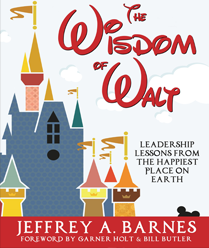
Jeffrey A. Barnes
Why did Walt Disney build Disneyland? Because Walt Disney wanted one! Can success really be that simple? It can be ...
November 19, 2015
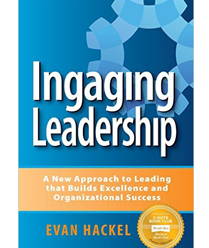
Evan Hackel
Companies and leaders that have worked with Evan Hackel to put the philosophy of Ingagment into practice report the following ...
November 17, 2015
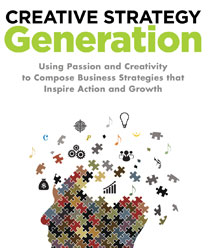
Bob Caporale
Creative Strategy Generation is a step-by-step guide to creating truly original and successful business strategies by tapping into one's own ...
November 16, 2015
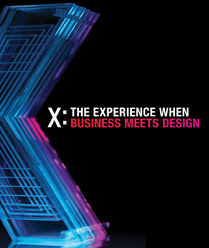
Brian Solis
X: The Experience When Business Meets Design Welcome to a new era of business in which your brand is defined ...
November 13, 2015
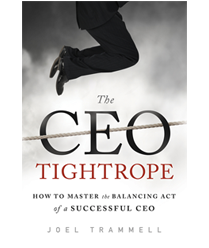
Joe Sweeney
Through his book, Moving the Needle: Get Clear, Get Free, and Get Going in Your Career, Business, and Life, Joe ...
January 15, 2024

Jeffrey Hayzlett
Global business celebrity and prime-time Bloomberg Television host, Jeffrey W. Hayzlett empowers business leaders to tie their visions to actions, ...
October 12, 2015
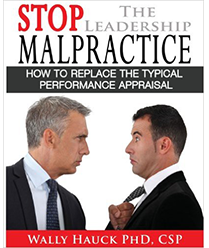
Wally Hauck, PhD, CSP
A leader is a professional who is responsible for a standard of care of the organization and its stakeholders (employees, ...
October 9, 2015
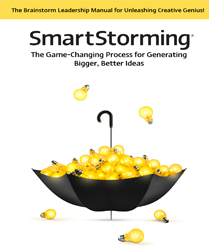
Mitchell Rigie & Keith Harmeyer
"If the creators of brainstorming were alive today, they would be astounded at how far the concept has evolved. Rigie ...
August 13, 2015
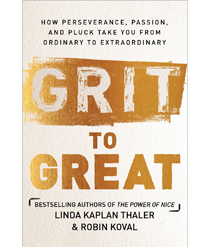
Linda Kaplan Thaler
In Grit to Great, Linda Kaplan Thaler and Robin Koval tackle a topic that is close to their hearts, one ...
August 12, 2015
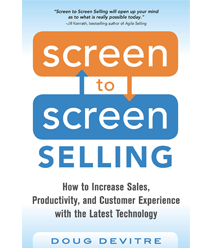
Doug Devitre
It’s not always possible for you or your team to meet with a client face to face. Screen to Screen ...
July 28, 2015
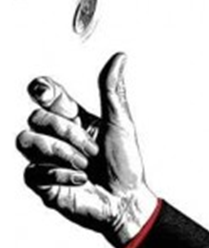
Stephen Garchow
To be successful, companies must effectively prioritize their near-term business goals with addressing longer-term strategic issues. Executives understand that strategic ...
July 24, 2015
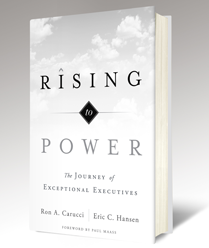
Ron A. Carucci
It’s been known for decades that failure rates among transitioning executives are too high, leaving exorbitant costs, damaged organizations and ...
July 24, 2015
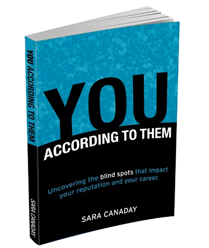
Sara Canaday
Learn the secrets of accelerating your journey toward success by better understanding yourself and how others perceive you. In You ...
July 24, 2015
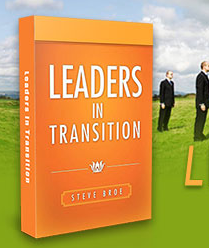
Steve Broe
Based on interviews with 33 career changers who became leaders after a transition, LEADERS IN TRANSITION answers the question, "How ...
July 24, 2015

Richard Tyler
Everyone searches for success. While our ideas of success differ, a typical entrepreneur will define success in terms of accomplishing ...
July 24, 2015
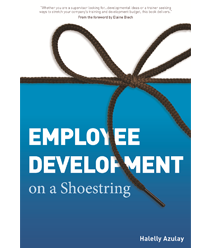
Halelly Azulay
It has been estimated that 70 percent of employee development takes place through informal learning, rather than through formal learning ...
July 23, 2015
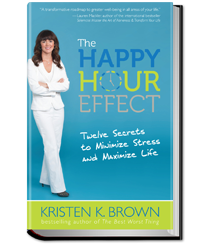
Kristen Brown
Get the bestselling book with hundreds of tips and ideas to help you create the low-stress, high-success life you envision ...
July 22, 2015

Rick Broniec, MEd.
If you're missing passion in your life and work, if your leadership seems blah and ineffective and if you've lost ...
July 22, 2015
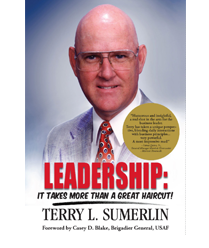
Terry Sumerlin
Terry L. Sumerlin, amiable barber/philosopher and professional speaker, is a noticer who looks for meanings in all interactions. In this ...
July 22, 2015
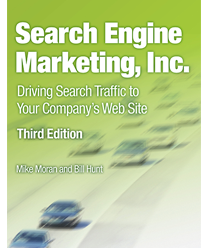
Mike Moran
For years, Search Engine Marketing, Inc. has been the definitive practical guide to driving value from search. Now, Mike Moran ...
July 22, 2015
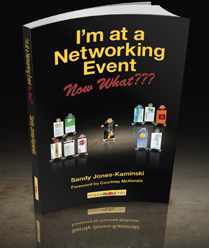
Sandy Jones-Kaminski
Everyone knows the feeling – you get to an event and, not knowing who to talk to or where to ...
July 22, 2015
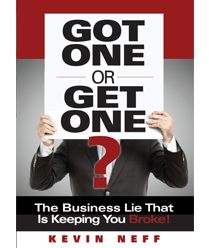
Kevin Neff
Are you tired of the endless hype and nonsense being pitched to you by marketing sales people? Ever get frustrated ...
July 22, 2015

John Floyd
Have you heard the one about the comedian who was so deep in debt he was afraid to answer the ...
July 22, 2015

Nomi Bachar
GATES OF POWER: Actualize Your True Self is an inspirational, informative, and practical guide for all who are passionate about ...
July 22, 2015
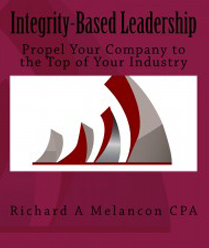
Richard A Melancon, CPA
Take Your Company to the Top! Here's how: ** Align your values with the corporate mission, ** Transition from Manager ...
July 22, 2015

Ken Okel
Stop worrying about what to do next. You can achieve more in today’s pressure packed, ever changing business world. Stuck ...
July 22, 2015
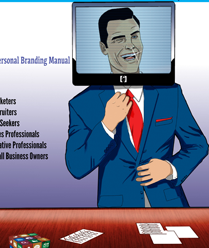
Jasmine Sandler
How to Brand Yourself Online Like a CEO is a personal branding manual , available in ebook form on Amazon ...
July 22, 2015
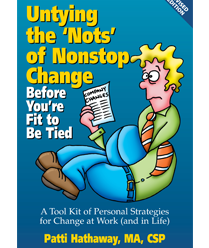
Patti Hathaway, M.Ed, CSP
Nonstop change is now the workplace norm. According to a 2013 global survey, 82% of companies had undergone significant reorganizations ...
July 22, 2015
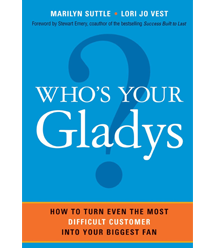
Marilyn Suttle
Every customer oriented business has its own Gladys; someone who demands more than most companies are able or willing to ...
July 22, 2015

Paul R. Williams
As the speed of business continues to increase, and as focus on an ever growing number of project data points ...
July 22, 2015
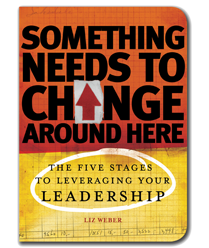
Liz Weber
Are you tired of working 50, 60, 70 or more hours a week? Do you come in early and stay ...
July 22, 2015
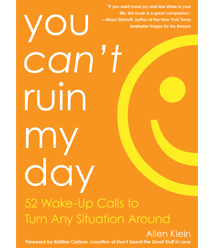
Allen Klein
You Can’t Ruin My Day contains 52 themes to help readers take back their power and not let other people ...
July 21, 2015
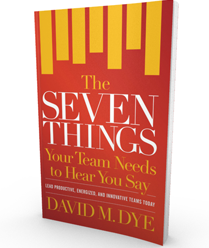
David Dye
Productive, energized, and innovative teams are critical to your success. In The Seven Things Your Team Needs to Hear You ...
July 21, 2015
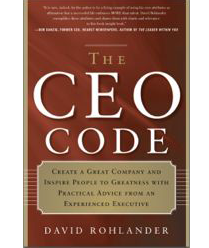
David Rohlander
Inspirational and informative, The CEO Code shares real-life stories of success and failure from author David Rohlander's personal journey and ...
July 21, 2015
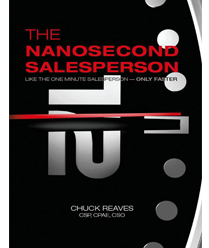
Chuck Reaves, CSP, CPAE, CSO
What every Chief Sales Officer needs to know about the advanced and changing world of sales. In this allegorical book, ...
July 21, 2015

Devin D. Thorpe
Devin Thorpe has collected over 150 essays on personal and family finance to help you learn how to be happier ...
July 21, 2015
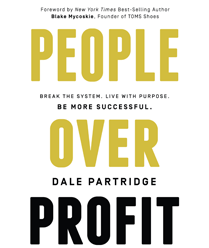
Dale Partridge
WALL STREET JOURNAL BESTSELLER USA TODAY BESTSELLER Serial entrepreneur and business visionary Dale Partridge reveals seven core beliefs that create ...
July 21, 2015
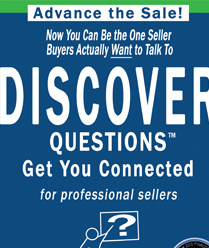
Deb Calvert
Make every sales call count and be the ONE seller buyers want to talk to! With DISCOVER Questions™ , you ...
July 21, 2015

Dale Dixon
Mack is a man terrified of giving presentations. An unexpected mentor comes into his life and helps him realize a ...
July 21, 2015

Cindy Miller
Golf 101 for Executives is the perfect resource for anyone who needs to use the game of golf as a ...
July 21, 2015

Elizabeth Hagen
How many times have you dreamed of making something great happen in your life? In your work? In your relationships? ...
July 21, 2015
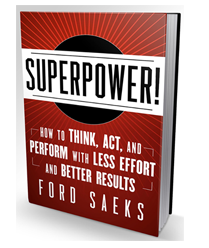
Ford Saeks
Superpower! How to Think, Act, and Perform with Less Effort and Better Results Download a FREE Book PreviewDo you want ...
July 21, 2015
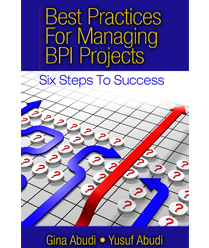
Gina Abudi
While there are numerous project management books on the market and a number on business processes and initiatives, there has ...
July 21, 2015
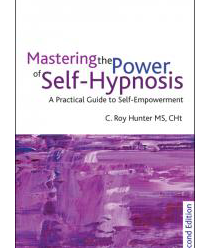
C. Roy Hunter
Instead of just teaching you what to change, this book teaches you how to change...and to empower yourself by getting ...
July 21, 2015
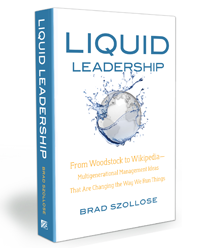
Brad Szollose
Liquid Leadership presents a dynamic approach that will help readers avoid getting caught up in a workforce culture clash between ...
July 21, 2015
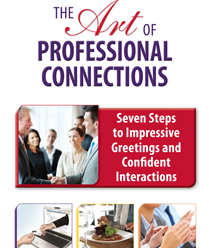
Gloria Petersen
Gloria Petersen’s "Seven Steps to Impressive Greetings and Confident Interactions" offers proven strategies to make your next interaction the first ...
June 24, 2015
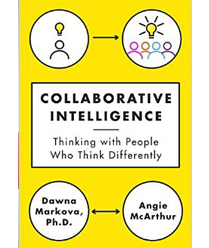
Dawna Markova & Angie McArthur
A breakthrough book on the transformative power of collaborative thinking—essential reading for anyone who works as part of a team, ...
June 24, 2015
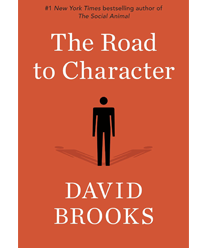
David Brooks
With the wisdom, humor, curiosity, and sharp insights that have brought millions of readers to his New York Times column and his ...
June 24, 2015
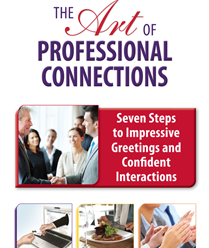
Gloria Petersen
Gloria Petersen’s "Seven Steps to Impressive Greetings and Confident Interactions" offers proven strategies to make your next interaction the first ...
June 24, 2015
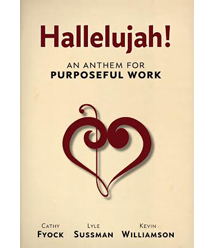
Cathy Fyock
Your life's work is too important to simply begrudge and endure. A business parable for the ages, Hallelujah! will help ...
June 24, 2015

Danny Valenzuela
In his book, A Taste of Leadership™, Danny Valenzuela offers a taste of some fundamental practices of leadership and becoming ...
June 24, 2015
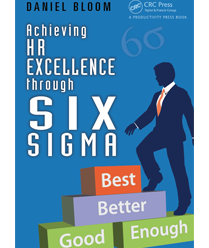
Daniel T. Bloom SPHR, Six Sigma Black Belt
Although world-class firms like GE and Motorola have relied on Six Sigma to build their performance cultures, these processes are ...
June 24, 2015
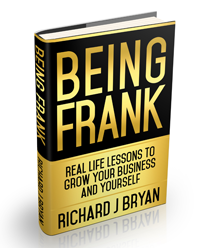
Richard J. Bryan
Frank was ex-special forces with a fine arts degree - an unusual mix! With his help, Richard Bryan turned around ...
June 24, 2015
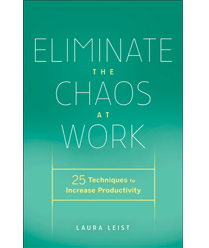
Laura Leist
Eliminate the Chaos at Work increases your business productivity and peace of mind by showing you how to create streamlined ...
June 24, 2015
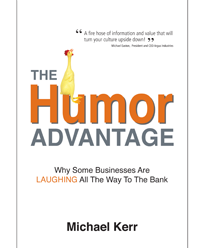
Michael Kerr
Attract and retain top talent, brand your business to stand out from the heard, energize employees, and turn customers into ...
June 24, 2015
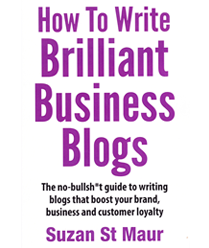
Suzan St. Maur
HOW TO WRITE BRILLIANT BUSINESS BLOGS The no-bullsh*t guide to writing blogs that boost your brand, business and customer loyalty ...
June 24, 2015

Leo Willcocks
Stress often strikes at inconvenient times, when most stress management techniques would be embarrassingly obvious. Have you ever used yoga ...
June 24, 2015
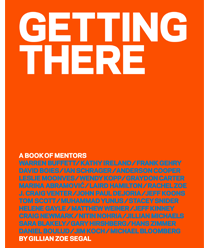
Gillian Zoe Segal
In Getting There, thirty leaders in diverse fields share their secrets to navigating the rocky road to success. In an ...
June 24, 2015
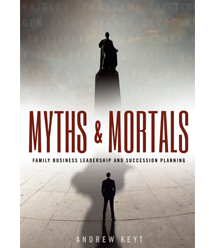
Andrew Keyt
Myths & Mortals provides insights and strategies for successors of family businesses. Successors often find themselves in the shadow of ...
June 23, 2015
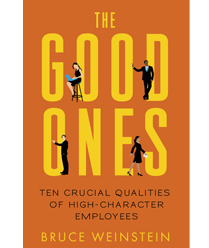
Bruce Weinstein
Employers look for two things when hiring or promoting people: knowledge and skill. They rarely, if ever, consider character. Yet ...
June 23, 2015

Betsy B Muller
Have you wondered if you have enough energy and clarity to get your to-do list completed with skill, quality and ...
June 23, 2015

Amy Florian
“No Longer Awkward” is the definitive guidebook for professionals who want long-term relationships with their clients. Inevitably, those clients face ...
June 23, 2015
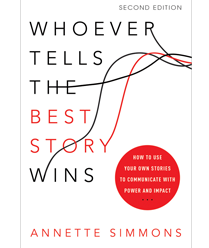
Annette SImmons
Whoever Tells the Best Story Wins! Tell it to sell it! Help your customers make your story their story. Learn ...
June 23, 2015
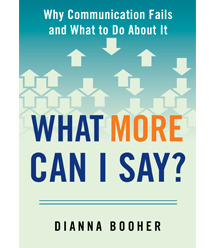
Dianna Booher
What More Can I Say: Why Communication Fails and What to Do About It will provide nine counter-intuitive principles for ...
June 19, 2015

Jeanne Bliss
A Customer Experience Roadmap to Transform Your Business and Culture Chief Customer Officer 2.0 will give you a proven framework ...
June 19, 2015
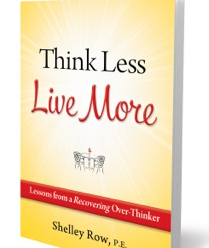
Shelley Row
For a world of chronic over-thinkers, this book holds the key. In eight easy steps discover the essential role feelings ...
June 19, 2015
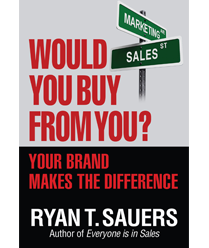
Ryan T. Sauers
Would You Buy from You? Many people cannot answer this question or struggle with it only to find that their ...
June 19, 2015

Shirley A. Weis
In this candid, authentic and inspirational book for women, Shirley Weis reveals her principles for winning the game in business. ...
June 19, 2015
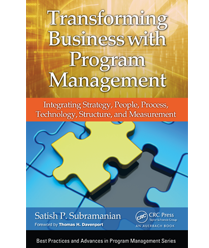
Satish P. Subramanian
Organizations need to constantly innovate and improve products and services to maintain a strong competitive position in the market place. ...
June 19, 2015

Steven Kotler & Peter H. Diamandis
Bold: How to Go Big, Create Wealth and Impact the World Bold unfolds in three parts. Part One focuses on the ...
April 30, 2015
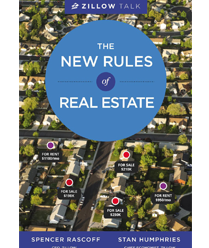
Spencer Rascoff & Stan Humphries
Enter Zillow, the nation's #1 real estate website and mobile app. Thanks to its treasure trove of proprietary data and ...
April 30, 2015

Randy Fox
Our world is starving for real leaders to truly become a success by being strong in their ethics and convictions ...
April 30, 2015
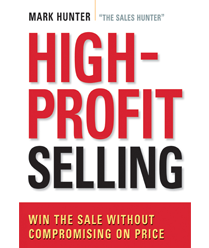
Mark Hunter
High-Profit Selling: Win The Sale Without Compromising on Price Too many sales professionals rely upon discounts to close sales, but ...
April 30, 2015
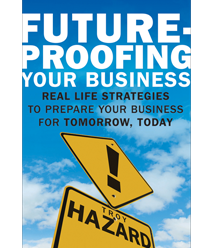
Troy Hazard
After years as a consultant to some of the world's biggest brands and a serial entrepreneur, Troy Hazard has learned ...
April 30, 2015

Dr. Rick Goodman, CSP
What do all championship athletes and teams have in common with the world's most successful people? They all have a ...
April 30, 2015
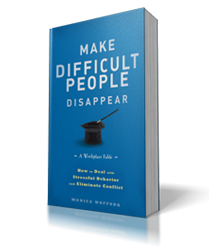
Monica Wofford
We all have at least one person we wish we could make disappear...without getting in trouble! It’s not magic. It’s ...
April 30, 2015
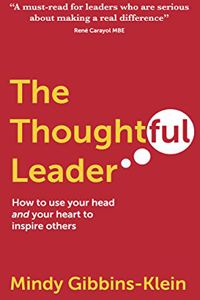
Mindy Gibbins-Klein
Thought leadership has become a popular phrase and idea, but many times what is called thought leadership is actually quite ...
April 30, 2015
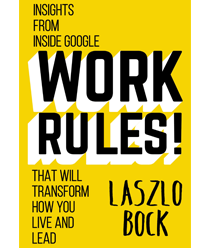
Laszlo Bock
WORK RULES! shows how to strike a balance between creativity and structure, leading to success you can measure in quality ...
April 24, 2015

John Zaleski
Within a healthcare enterprise, patient vital signs and other automated measurements are communicated from connected medical devices to end-point systems, ...
January 10, 2023

John Sviokla & Mitch Cohen
There are about 800 self-made billionaires in the world today. What enables this elite group to create truly massive value, ...
April 24, 2015
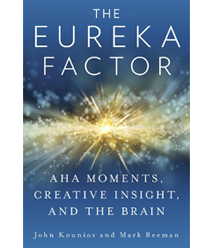
John Kounios & Mark Beeman
In The Eureka Factor, John Kounios and Mark Beeman explain how insights arise and what the scientific research says about stimulating more ...
April 24, 2015

Jessica Jackley
In the tradition of Kabul Beauty School and Start Something That Matters comes an inspiring story of social entrepreneurship from the co-founder of Kiva, ...
April 24, 2015
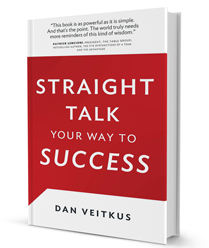
Dan Veitkus
Straight Talk Your Way to Success Are you tired of “smart talk” that leads to no good outcome? Do you ...
April 24, 2015
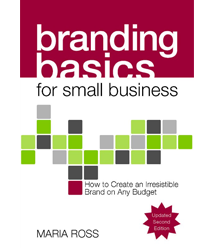
Maria Ross
The popular guide used by entrepreneurs, start-ups, small businesses and non-profits everywhere to build an irresistible brand on any budget ...
April 24, 2015

Kathleen Burns Kingsbury
YOUR ONE-STOP HANDBOOK FOR CONNECTING WITH AFFLUENT FEMALE INVESTORS During the next several decades, women will inherit approximately $28.7 trillion ...
April 24, 2015

Lauran Star
Today women are entering the workforce and leadership field at an extensive rate; however, they are struggling to gain a ...
April 24, 2015
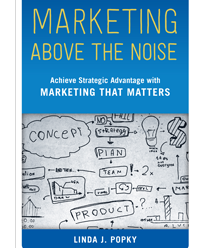
Linda J. Popky
Marketing today is out of control. With all the new marketing techniques accessible to the masses, it’s becoming harder and ...
April 24, 2015
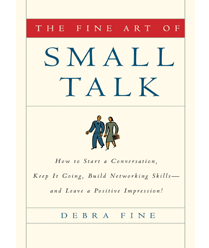
Debra Fine
Nationally recognized communication expert Debra Fine reveals the techniques and strategies anyone can use to make small talk--in any situation. ...
April 24, 2015
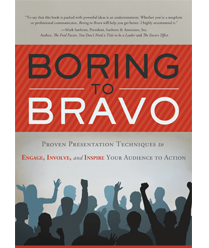
Kristin Arnold
Boring to Bravo by Kristin Arnold shows experienced presenters how to transform boring monologues into scintillating dialogues by employing simple yet powerful ...
March 30, 2015
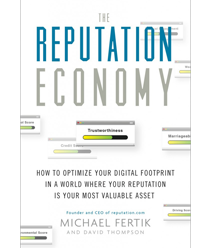
Michael Fertik
Your reputation defines how people see you and what they will do for you. It determines whether your bank will ...
March 30, 2015
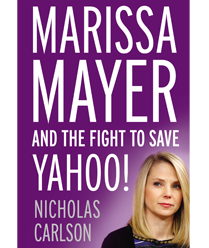
Nicholas Carlson
When Yahoo hired star Google executive Mayer to be its CEO in 2012 employees rejoiced. They put posters on the ...
March 30, 2015
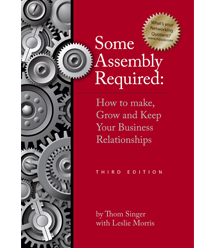
Thom Singer
Some Assembly Required: How to Make, Grow and Keep Your Business Relationships by Thom Singer is based on the premise that ...
March 30, 2015

Kevin Ashton
As a technology pioneer at MIT and as the leader of three successful start-ups, Kevin Ashton experienced firsthand the all-consuming ...
March 30, 2015

Kabir Sehgal
In Coined: The Rich Life of Money And How Its History Has Shaped Us, author Kabir Sehgal casts aside our workaday ...
March 30, 2015
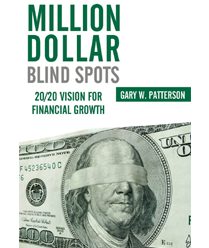
Gary Patterson
Million Dollar Blind Spots by Gary Patterson will create clear understanding to uncover blind spots in your company-and will dramatically accelerate ...
March 30, 2015
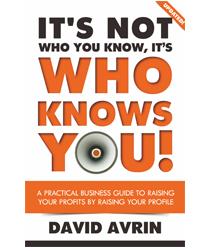
David Avrin
Raise your profile and get the attention you deserve -- or your business, your brand, or yourself! Almost everyone who ...
March 27, 2015
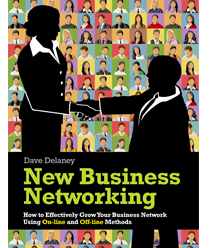
Dave Delaney
Supercharge the way you build business relationships—online and off! Business success is all about connections, relationships, and networks! In New ...
March 27, 2015
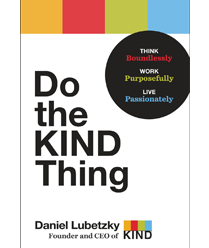
Daniel Lubetzky
In Do the KIND Thing, author Daniel Lubetzky shares the revolutionary principles that have shaped KIND’s business model and led to ...
March 27, 2015
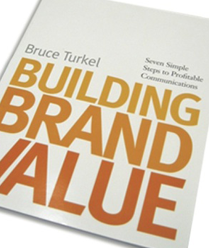
Bruce Turkel
Have you ever wondered why almost identical products sell for vastly different sums just because of the name or logo ...
March 27, 2015
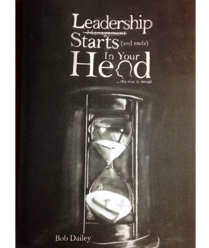
Bob Dailey
Whether you manage a department of three employees, or an international organization with thousands of employees, one thing impacts your ...
March 27, 2015

Gisela Hausmann
In today’s world, we need more than determination to reach our goals; we need naked determination. Applying this powerful momentum ...
March 27, 2015

Milo Shapiro
You CAN master the skill of public speaking! Laugh your way through Milo’s clever, tip-loaded “Top 10 Lists”. Conquer any ...
March 27, 2015
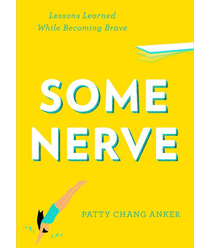
Patty Chang Anker
SOME NERVE: Lessons Learned While Becoming Brave (Riverhead), a Books for a Better Life Award finalist which Oprah.com calls "Downright ...
March 20, 2015
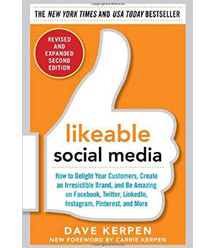
Dave Kerpen
The NEW YORK TIMES and USA TODAY bestseller—updated with today’s hottest sites! A friend’s recommendation is more powerful than any ...
March 20, 2015
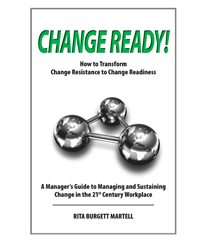
Rita Burgett-Martell
People don't resist change if they are prepared for change. Change Ready! How to Turn Change Resistance into Change Readiness, by ...
March 20, 2015
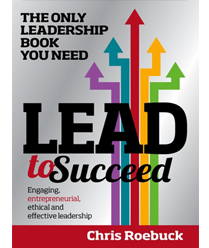
Chris Roebuck
Across the world millions of people aren’t inspired at work or given the opportunity to give their best and fulfill ...
March 11, 2015
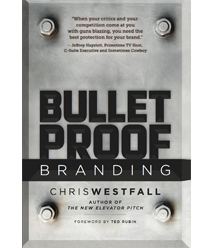
Chris Westfall
With digital media, customers today have more ammunition than ever. That's why you've got to have a BulletProof Brand. With ...
March 10, 2015
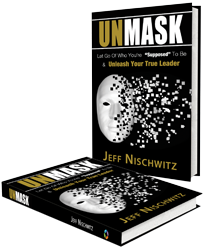
Jeff Nischwitz
Unmask is a road map for navigating your own personal journey as a leader in your business, career, relationships and ...
March 8, 2015
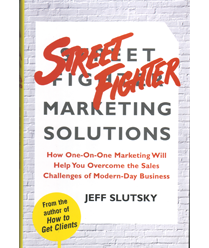
Jeff Slutsky
For any business owner, franchise operator, or marketing executive who seeks to increase sales while lowering marketing costs, Jeff Slutsky ...
March 7, 2015
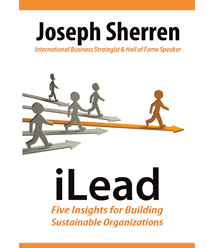
Joseph Sherren
Leadership is about creating a culture which will engage all employees in executing the Vision and Mission of the company. ...
March 6, 2015
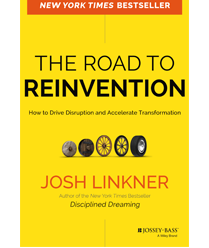
Josh Linkner
Companies, communities, and individuals fall for many reasons, but one of the most common--and easily avoidable--is the failure to reinvent. ...
March 5, 2015
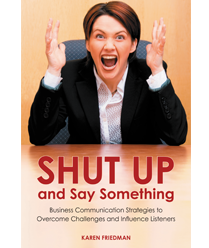
Karen Friedman
In today's high-tech world, there are more ways than ever before to communicate: email, text messaging, voicemails, blogs, tweets, video ...
March 4, 2015
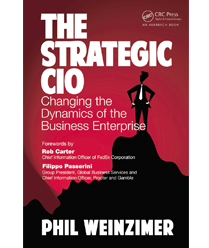
Phil Weinzimer
Based on interviews with more than 150 CIOs, IT/business executives, and academic thought leaders, The Strategic CIO: Changing the Dynamics ...
March 3, 2015
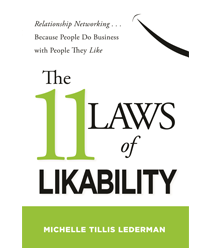
Michelle Tillis Lederman
Michelle Tillis Lederman shows how networking can be as easy, enjoyable, and fulfilling as having a conversation with friends—and still ...
March 3, 2015
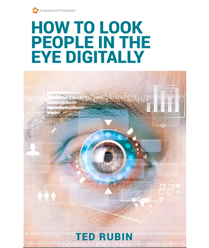
Ted Rubin
In today’s digital world it’s all too easy for us as brands and individuals to let our relationship-building muscles atrophy. ...
February 25, 2015
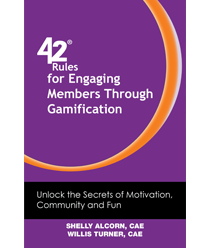
Shelly Alcorn & Willis Turner
Play predates the development of human culture and our brains are hard-wired to use play as a tool to accelerate ...
February 24, 2015
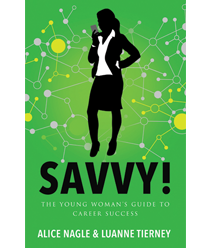
Alice Nagle & Luanne Tierney
In today's competitive, global, connected, and fast-paced business environment, how do young women get career savvy quickly? Two Silicon Valley ...
February 24, 2015
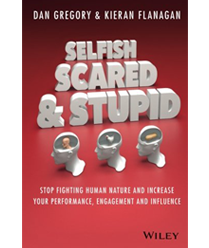
Dan Gregory & Kieran Flanagan
Selfish, Scared & Stupid outlines the three most common human traits: selfishness, fear and a need for simplicity. To effectively increase ...
February 24, 2015
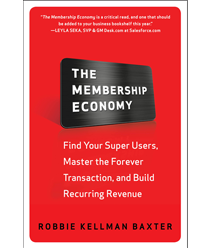
Robbie Kellman Baxter
In today’s business world, it takes more than a website to stay competitive. The smartest, most successful companies are using ...
February 18, 2015
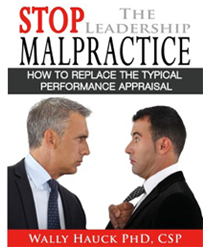
Wally Hauck
The aim of this book is to compel leaders to replace their typical performance appraisal methods with one more closely ...
February 18, 2015

Timothy Keiningham
Customer Loyalty Isn't Enough. Grow Your Share of Wallet! The Wallet Allocation Rule by Timothy Keiningham is a revolutionary, definitive guide for ...
February 18, 2015
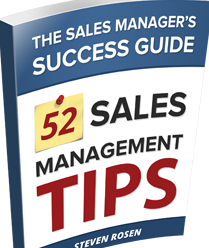
Steven Rosen
52 Sales Management Tips is written for sales managers who struggle within a corporate environment that doesn't always support them ...
February 18, 2015
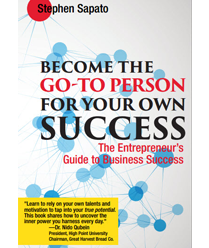
Stephen Sapato
Become The Go-To Person For Your Own Success by Stephen Sapato teaches small business owners and entrepreneurs how to realize tremendous ...
February 18, 2015

Ruth Ross
Coming Alive: The Journey To Reengage Your Life And Career by Ruth Ross is the prescription for anyone who has ever ...
February 18, 2015
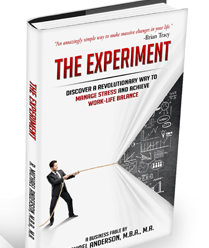
R. Michael Anderson
Stressed? Overwhelmed? Burned Out? Learn transformational life skills in this exciting new modern business fable by acclaimed expert R. Michael ...
February 18, 2015
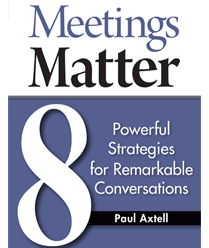
Paul Axtell
America has become a nation “stuck in a meeting.” Between corporate boardrooms, all hands meetings, and conference calls, few of ...
February 18, 2015
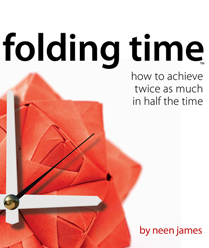
Neen James
Folding Time™ by Neen James is about being accountable for our time, engaging our attention and leveraging our energy. In ...
February 18, 2015
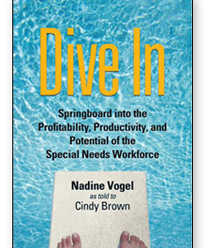
Nadine Vogel
"Dive In: Springboard into the Profitability, Productivity, and Potential of the Special Needs Workforce" by Nadine Vogel, enlightens readers regarding ...
February 18, 2015
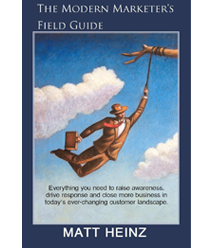
Matt Heinz
The speed of innovation and change in B2B marketing has never been greater. And the need for clarity for a ...
February 18, 2015
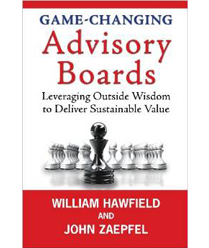
William Hawfield
Game-Changing Advisory Boards offers a proven process for creating and maintaining sustainable value in your business. William Hawfield and John ...
February 18, 2015
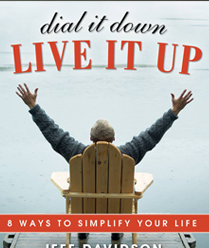
Jeff Davidson
In an era that offers too many choices and too much information, people’s lives aren't getting simpler. In fact, just ...
February 18, 2015
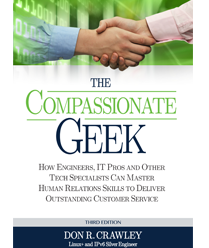
Don Crawley
Now in its third edition, The Compassionate Geek by Don Crawley, was written by a tech person for tech people. There ...
February 18, 2015
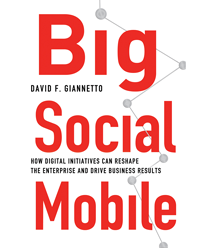
David Giannetto
It's easy for today's leaders to fall into the trap of accepting trendy big-data, social media, and mobile technology initiatives ...
February 13, 2015
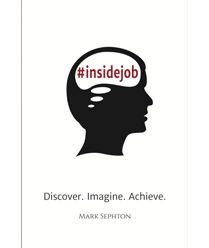
Mark Sephton
DISCOVER who you are. IMAGINE who you could be, and ACHIEVE all the potential within you. We are all only ...
February 7, 2015
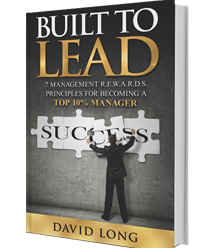
David Long
Did you know that of every 100 employees hired, only 6 or 7 will ever be promoted to their first ...
February 6, 2015
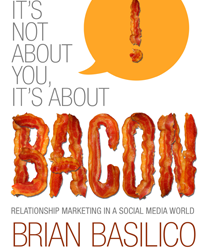
Brian Basillico
If you are looking for a “How-To” social networking book, then this is not for you. This is a “Why-To” ...
February 6, 2015
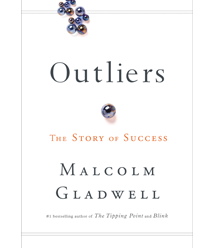
Malcolm Gladwell
In this stunning new book, Malcolm Gladwell takes us on an intellectual journey through the world of "outliers"--the best and ...
February 6, 2015
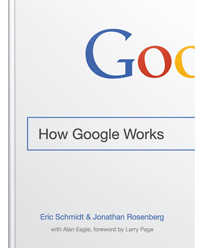
Eric Schmidt
Google Executive Chairman and ex-CEO Eric Schmidt and former SVP of Products Jonathan Rosenberg came to Google over a decade ...
February 6, 2015
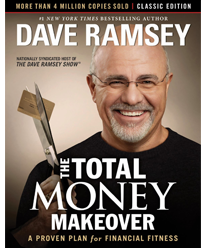
Dave Ramsey
If you will live like no one else, later you can live like no one else. Build up your money muscles with ...
February 6, 2015
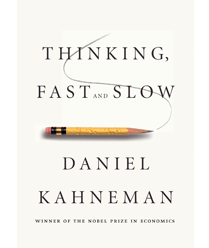
Daniel Kahneman
In the international bestseller, Thinking, Fast and Slow, Daniel Kahneman, the renowned psychologist and winner of the Nobel Prize in Economics, takes us ...
February 6, 2015
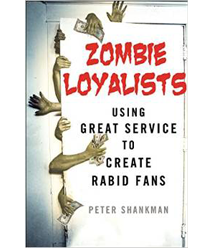
Peter Shankman
Marketing and PR expert Peter Shankman has been working with the biggest companies in the world to create what he ...
January 29, 2015
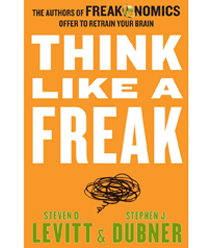
Steven D. Levitt
Now, with Think Like a Freak, Steven D. Levitt and Stephen J. Dubner have written their most revolutionary book yet. With ...
January 28, 2015

Tony Robbins
Tony Robbins has coached and inspired more than 50 million people from over 100 countries. More than 4 million people ...
January 28, 2015
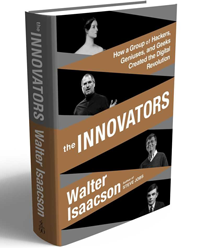
Walter Isaacson
Following his blockbuster biography of Steve Jobs, The Innovators is Walter Isaacson’s revealing story of the people who created the computer and ...
January 28, 2015

Tony Alessandra
Imagine... When you encounter difficult people - you know how to adapt to them. Where you meet challenging situations - ...
January 21, 2015
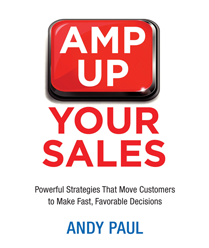
Andy Paul
Salespeople today face a fast-paced and increasingly crowded marketplace where meaningful product differentiation has all but disappeared. To compete success ...
December 1, 2014
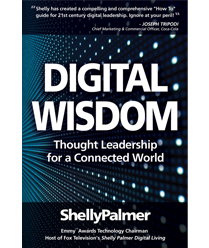
Shelly Palmer
Why You Need Digital Wisdom The goal of this book is to give you a way to think strategically about ...
December 1, 2014
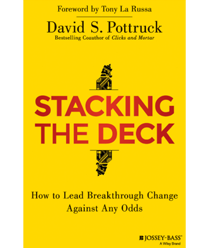
Dave Pottruck
Change is a constant, and leaders must do more than keep up--they must innovate and accelerate to succeed. Yet people ...
November 17, 2014
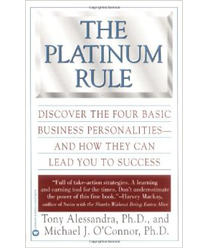
Tony Alessandra
In this entertaining and thought-provoking book, Tony Alessandra and Michael O'Connor argue that the "Golden Rule" is not always the ...
November 17, 2014
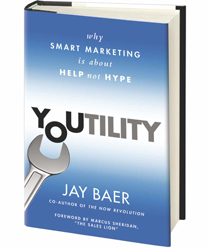
Jay Baer
The difference between helping and selling is just two letters. But those two letters are critically important to your company’s ...
November 3, 2014
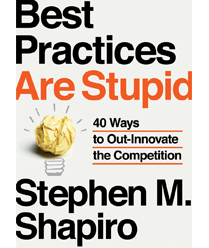
Stephen Shapiro
In times of reduced funding, tighter deadlines, and fewer resources, a different approach to innovation is required. Unfortunately, concepts such ...
October 15, 2014
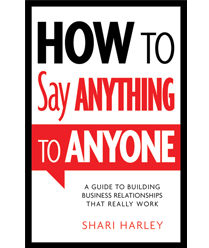
Shari Harley
We all know how it feels when our colleagues talk about us but not to us. It’s frustrating, and it ...
October 15, 2014
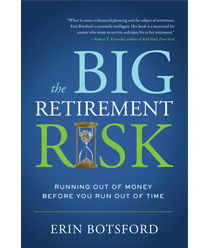
Erin Botsford
This is a guidebook packed with the best strategies to manage wealth in retirement, helping readers live the life they ...
October 15, 2014
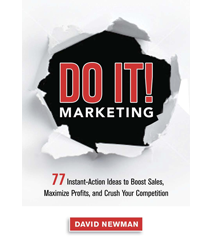
David Newman
As a small-business owner or solopreneur, you wear many hats--perhaps the most important of which is marketer. But these days, ...
October 15, 2014
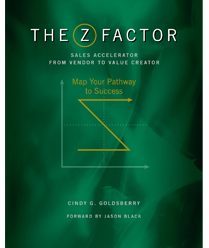
Cindy Goldsberry
There is no magic bullet for sales success…and a focus just on sales skills, lead gen tactics and sales process ...
October 15, 2014
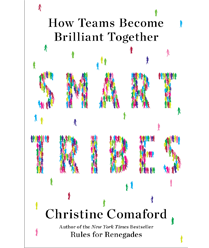
Christine Comaford
Are You Scaring Your People into Mediocrity? All leaders want to outperform, outsell, and outinnovate the competition. And most teams ...
October 15, 2014
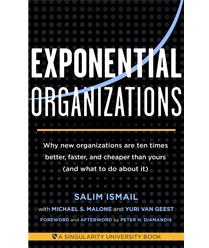
Salim Ismail
For hundreds of years, traditional business structures have put an organizational/legal boundary around an asset or a workforce and 'sold' ...
October 15, 2014
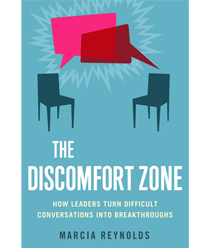
Marcia Reynolds
Leaders, managers, and coaches are charged with getting people to stretch their limits but are often unsuccessful. Top leadership coach ...
October 13, 2014
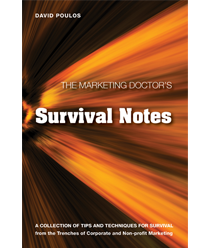
David Poulos
Everyone can “do” marketing . . . right? Marketing Doctor’s Survival Notes is a collection of essays, articles, blog posts ...
October 7, 2014
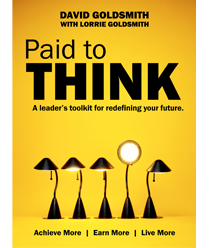
David Goldsmith
Have you ever thought about the fact that a craftsman has more and better tools to solve challenges on the ...
September 11, 2014
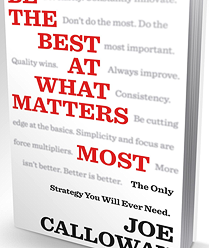
Joe Calloway
Winners in business aren't the ones who do the most things; the winners are the ones who do the most ...
September 8, 2014
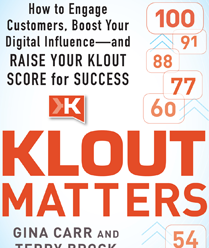
Gina Carr and Terry Brock
Build Credibility, Get More Business, and Increase Profits with DIGITAL INFLUENCE Strong influence translates to more business--and nothing measures influence ...
September 8, 2014
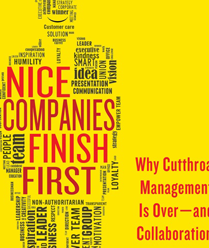
Peter Shankman
The era of authoritarian cowboy CEOs like Jack Welch and Lee Iacocca is over. In an age of increasing transparency ...
September 8, 2014

Larry Winget
The straight-talking, New York Times bestselling author and Pitbull of Personal Development® is back with a pithy and prescriptive guide to success. ...
September 8, 2014
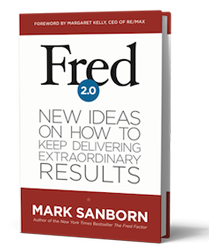
Mark Sanborn
Nine years ago, bestselling author and business consultant Mark Sanborn introduced the world to Fred, his postman, who delivered extraordinary ...
September 8, 2014
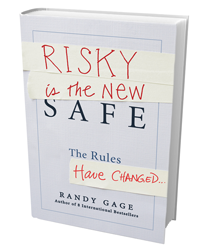
Randy Gage
Risky Is the New Safe is a different kind of book for a different kind of thinking—a thought-provoking manifesto for ...
September 8, 2014
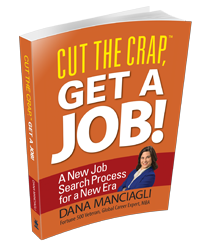
Dana Manciagli
Cut the Crap, Get a Job! A New Job Search Process for a New Era is a revolutionary job search ...
September 8, 2014
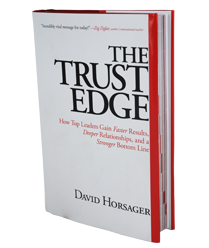
David Horsager
In The Trust Edge, David Horsager reveals the foundation of genuine success—trust. Based on research but made practical for today’s ...
September 8, 2014
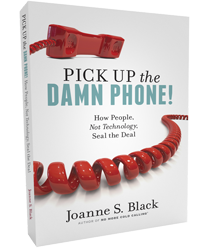
Joanne Black
Over the last decade, the rapid growth of social media, the emergence of the cloud, and a myriad of other ...
September 7, 2014
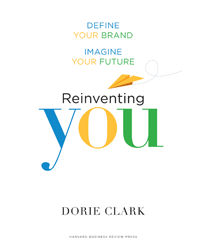
Dorie Clark
A step-by-step guide to reinventing you Are you where you want to be professionally? Whether you want to advance faster at ...
September 7, 2014
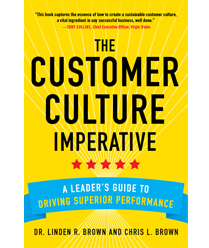
Christopher Brown
BECOME THE ENVY OF YOUR INDUSTRY WITH A CUSTOMER-CENTRIC CULTURE For the first time, this groundbreaking guide unlocks the secrets ...
September 7, 2014
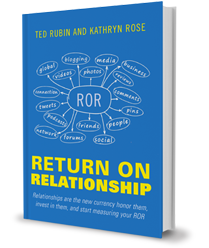
Ted Rubin and Kathryn Rose
Return on Relationship™ (ROR), simply put, is the value that is accrued by a person or brand due to nurturing ...
September 6, 2014

Keith Ferrazzi
The bestselling business classic on the power of relationships, updated with in-depth advice for making connections in the digital world. ...
September 5, 2014
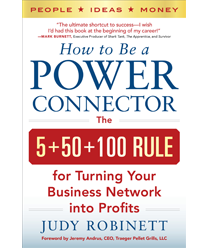
Judy Robinett
"Other people have the answers, deals, money, access, power, and influence you need to get what you want in this ...
August 29, 2014
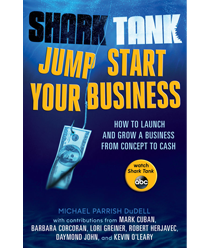
Michael Parrish DuDell
From the ABC hit show "Shark Tank," Shark Tank Jump Start Your Business is filled with practical advice on how ...
August 29, 2014
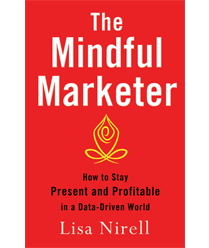
Lisa Nirell
Today’s marketers face a perilous journey. As a result of new buyer dynamics, a boardroom-level obsession with marketing ROI, and ...
August 29, 2014
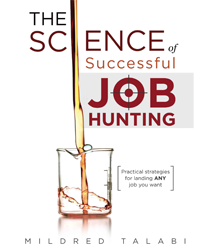
Mildred Talabi
Successful job hunting isn’t about luck, chance, or hope… Successful job hunting is a SCIENCE! In her ground-breaking book, The ...
August 29, 2014
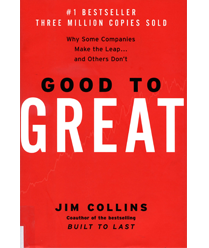
Jim Collins
The Challenge: Built to Last, the defining management study of the nineties, showed how great companies triumph over time and ...
August 29, 2014
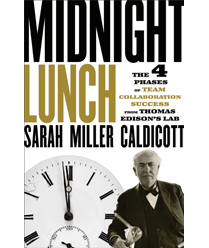
Sarah Caldicott
Thomas Edison's innovations contributed a whopping 3% of global GDP at the time of his death in 1931. Edison created ...
August 28, 2014
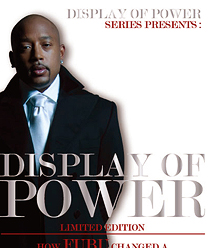
Daymond John
In Display of Power: How FUBU Changed a World of Fashion, Branding and Lifestyle, Daymond John (Founder and CEO) gets to the ...
January 11, 2023
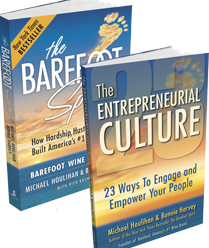
Michael Houlihan and Bonnie Harvey
About The Barefoot Spirit It is hard to believe that such an iconic brand as Barefoot Wines began in a laundry ...
February 7, 2023

Sheryl Sandberg
Thirty years after women became 50 percent of the college graduates in the United States, men still hold the vast ...
August 25, 2014

Gary Vaynerchuk
New York Times bestselling author and social media expert Gary Vaynerchuk shares hard-won advice on how to connect with customers ...
August 25, 2014
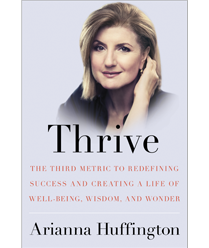
Arianna Huffington
Arianna Huffington's personal wake-up call came in the form of a broken cheekbone and a nasty gash over her eye ...
August 25, 2014
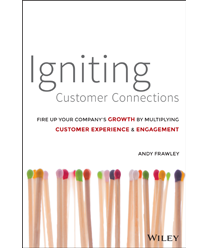
Andy Frawley
A new data-driven approach to building customer relationships that fuel sustainable business growth Igniting Customer Connections explores how organizations of all ...
August 24, 2014
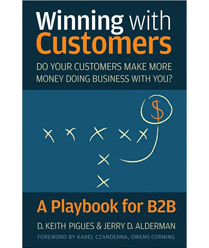
D. Keith Pigues
Do your customers make more money doing business with you? Knowing the answer can help you build measurable and valuable ...
August 23, 2014
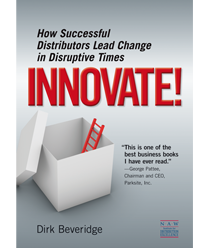
Dirk Beveridge
We are living in disruptive times. In fact 76% of distributors surveyed believe we are living in an environment we ...
August 23, 2014
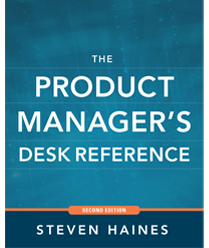
Steven Haines
Every day, thousands of new products and innovations are brought to market. Amid much fanfare, they struggle for shelf-space, mind-share, ...
August 22, 2014
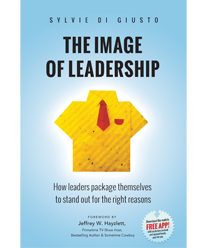
Sylvie di Giusto
The Image of Leadership is the result of Sylvie di Giusto’s journey through two career paths: one in the field of human resources, ...
August 21, 2014
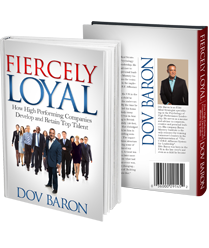
Dov Baron
Everything you’ve been told about leadership over the past thirty years no longer applies. The world has changed, and so ...
August 21, 2014
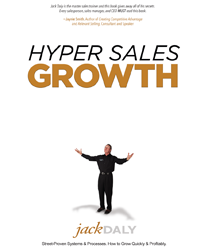
Jack Daly
HYPER SALES GROWTH — Jack Daly’s street-proven systems & processes. How to grow quickly & profitability. Dive into three critical areas: ...
August 20, 2014
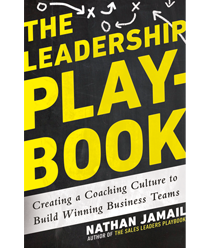
Nathan Jamail
Creating a Coaching Culture to Build Winning Business Teams There are enormous differences between managing and coaching. Yet many companies ...
August 20, 2014
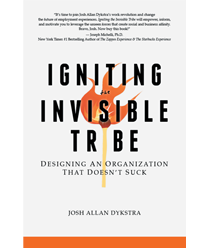
Josh Allan Dykstra
Why is it that so many of us toil away in jobs we hate, being treated like machines, doing things ...
August 20, 2014
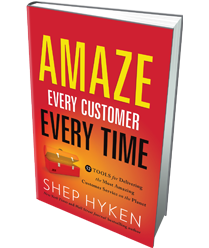
Shep Hyken
You must deliver an amazing customer experience. Why? It is the competitive edge of new-era business–in any market and any ...
February 17, 2023
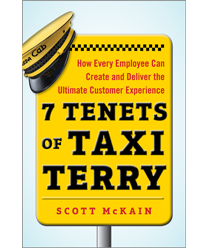
Scott McKain
Inspired by the Ideas and Insight of Taxi Terry…The Best Guide to Customer Service You Will Ever Read No matter ...
August 20, 2014
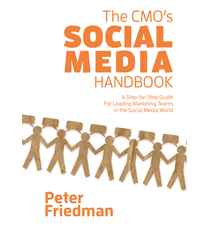
Peter Friedman
It's a terrific time to be a senior marketing leader-if you're prepared to leverage social effectively, and with time, utilize ...
August 19, 2014
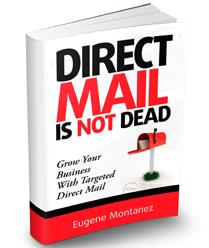
Eugene Montanez
In his book, “Direct Mail is NOT Dead,” Eugene Montanez explains the importance of an effective call to action. Not only ...
August 19, 2014
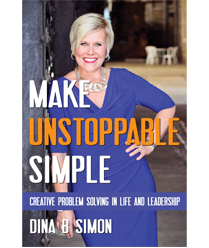
Dina Simon
Make Unstoppable Simple Being unstoppable doesn’t mean you are never blocked or stuck on your way through life. It means ...
August 19, 2014
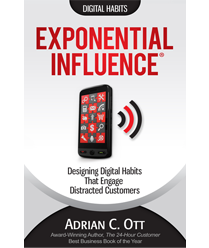
Adrian Ott
Exponential Influence®: Designing Digital Habits That Engage Distracted Customers Everyone knows that repetition forms habits. But did you know that repetition ...
August 19, 2014
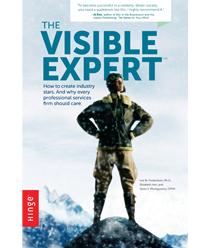
Lee Frederiksen
What does it take to become a well-known expert in your field — someone other practitioners and the media seek ...
August 18, 2014
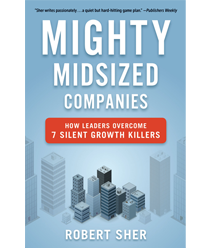
Robert Sher
Most midsized company leaders want their businesses to become mighty growth machines. Unfortunately, sometimes that growth slows, stops, or goes ...
August 17, 2014
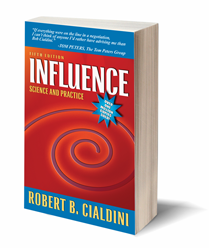
Robert Cialdini
Influence: Science and Practice is an examination of the psychology of compliance (i.e. uncovering which factors cause a person to ...
August 17, 2014
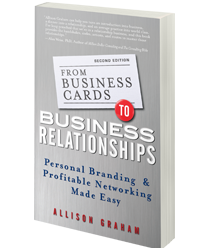
Allison Graham
Want to supercharge your life? Getting connected & building authentic, profitable relationships is the answer and this book will teach ...
August 4, 2014

David Meltzer
There are seven interconnected principles that are applicable to our lives in general and just as relevant to more specific ...
August 4, 2014
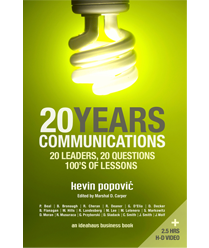
Kevin Popović
Inside 20YEARS Communications, 20 leaders from different corners of the industry answer 20 questions on the evolution of communications, providing ...
August 4, 2014
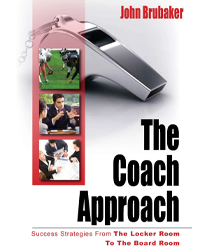
John Brubaker
The Coach Approach: Success Strategies From The Locker Room To The Board Room is a book designed to help business ...
August 3, 2014
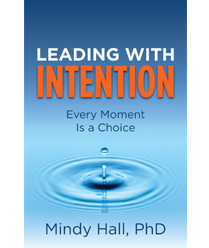
Mindy Hall
Too often executives allow their functional roles to define who they are as leaders. Instead, they should focus on the ...
August 3, 2014
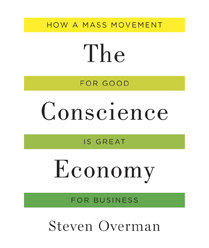
Steven Overman
A generation of people around the world, from Boston to Bangkok, from New York to New Delhi, are making everyday ...
August 3, 2014
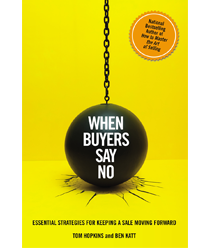
Tom Hopkins
This is a complete and practical guide which highlights the authors' new strategic approaches to selling when the buyer initially ...
August 3, 2014
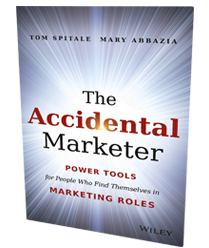
Tom Spitale and Mary Abbazia
A practical guide for inexperienced marketers who have to develop a marketing strategy With technology being built into products of ...
August 1, 2014
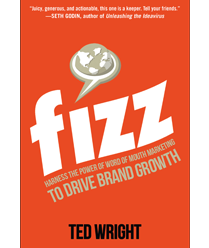
Ted Wright
"Word of mouth marketing has always existed. We've just found a better and more efficient way to do it." -- Ted ...
August 1, 2014

Paul Jankowski
Speak American Too: Your Guide to Building Powerful Brands in the New Heartland is the definitive field manual to marketing ...
August 1, 2014
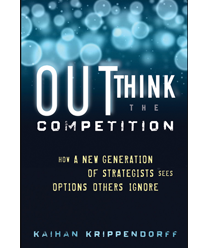
Kaihan Krippendorff
A Fast Company blogger and former McKinsey consultant profiles the next generation business strategists: the "Outthinkers" "Outthinkers" are entrepreneurs and ...
August 1, 2014

Joel Trammell
Joel Trammell’s new book, The CEO Tightrope: How to Master the Balancing Act of a Successful CEO, prepares seasoned and ...
August 1, 2014
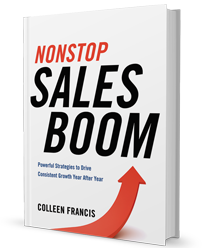
Colleen Francis
Put an end to boom and bust sales cycles - once and for all! Do your company's sales results lurch ...
August 1, 2014
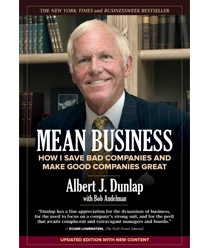
Albert Dunlap
Al Dunlap is an original: an outspoken, irascible executive with an incredible track record of injecting new life into tired ...
August 1, 2014
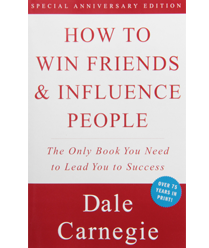
Dale Carnegie
For more than sixty years the rock-solid, time-tested advice in this book has carried thousands of now famous people up ...
July 31, 2014
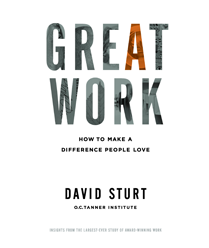
David Sturt
Great work lives inside all of us. We've long been told our ability to succeed depends on our IQ, talent, ...
July 30, 2014
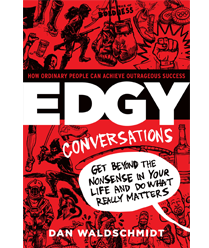
Dan Waldschmidt
Everything you think you know about success is wrong! Set Goals. Work Hard. Be Persistent. That's the typical success advice ...
July 30, 2014
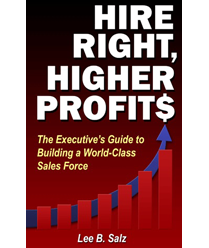
Lee B. Salz
It's the revolving door on sales teams. Executives hire who they believe to be great salespeople, but the results never ...
July 30, 2014
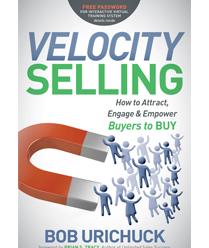
Bob Urichuck
Sales is the lifeline to your bottom line. Without sales, there are no transactions, without transactions there is no revenue, ...
July 30, 2014
Suzanne Garber
SAFETY NETwork: A Tale of Ten Truths of Executive Networking is the story of Ralph Pibbs, former international executive, corporate ...
January 15, 2024
Dr. Thomas Rose
In diesem Buch geht es nicht nur um die Beschreibung einer Reise nach Indien, sondern es geht um Selbstbestimmung und ...
January 1, 1970
John Tschohl
This is the 10th Edition. Many call this book the bible of customer service. It focuses on the strategy on ...
January 1, 1970
Terry Rich
Dare to Dream, Dare to Act is an unconventional biography filled with real stories of creativity, innovation, risk and success. ...
January 1, 1970
Sehin Belew
My book is written for someone who wants to take the guess work out of what to eat, what to ...
January 1, 1970
Stephanie Dollschnieder, MA
Discover the secrets of effective customer communication (both internal and external)and watch your business grow. Contact, Care, COMMUNICATE contains insights ...
January 1, 1970
Mitchell Gooze & Ralph Mroz
The book shows companies how to leverage 20th century accomplishments into a 21st century competitive advantage. This book identifies where ...
January 1, 1970
David Grossman, ABC, APR, Fellow PRSA
Everything you do communicates something, whether you intend to or not. The most effective leaders choose to make the most ...
January 1, 1970
David Grossman, ABC, APR, Fellow PRSA
Everything you do and say communicates SOMETHING. So not communicating is not an option. In fact, the most effective leaders ...
January 1, 1970
Mike Hawkins
It has long been said that you can do anything you put your mind to. Yet in this groundbreaking book, ...
January 1, 1970
Tod Novak
In the past few decades, technology has significantly changed the way we work and live. The lightning-fast Internet has profoundly ...
January 1, 1970
John R. DiJulius III
In The Customer Service Revolution, DiJulius points out how numerous companies have made Customer service their biggest competitive advantage, are ...
January 1, 1970
Thomas B. Dowd III
During his inconsistent first 20 years in a business environment, the author learned lessons, both positive and negative, which transformed ...
January 1, 1970
Thomas B. Dowd III
A quick-hit, action-based reference guide with easily digestible chapters, this straightforward resource offers techniques that will teach you to play ...
January 1, 1970
Thomas B. Dowd III
Time management is a disciplined mindset to be able to live in the moment while working toward the future. It ...
January 1, 1970
Thomas B. Dowd III
On what was thought to be a typical work day, author Thomas Dowd received The Call Nobody Wants: “We’re downsizing.” ...
January 1, 1970
Greg Kozera
Most people have heard about the horrors on "fracking" in the media. In this easy to read book Auther, Speaker, ...
January 1, 1970
Vicki Sandler
The 3A's process explained in her book, enables business leaders to: -Align your employees’ natural talents with their work — ...
January 1, 1970
Joseph A. Michelli, Ph. D.
Joseph Michelli, author of the blockbuster The Starbucks Experience, does it again. In Leading the Starbucks Way, Joseph explains how ...
January 1, 1970
Carol Margolis
Do you feel unhealthy and stressed while traveling? Do your relationships suffer when you're away? Whether you travel every week ...
January 1, 1970
Rebecca Cooper
Many people with yo-yo dieting, binge eating, disordered eating, or food addictions could write books on nutrition and diets. We ...
January 1, 1970
Kim Curtis
Money questions plaque all of us at one time or another and penetrate every aspect of our lives--it doesn't matter ...
January 1, 1970
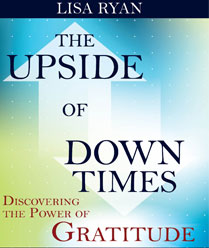
Lisa Ryan
One of the downsides of life is that we rarely have to deal with an overabundance of gratitude. Most of ...
January 15, 2024
Jim Cathcart
Getting all of the business instead of just a transaction involves gaining the trust and loyalty of the customer. Jim ...
January 1, 1970
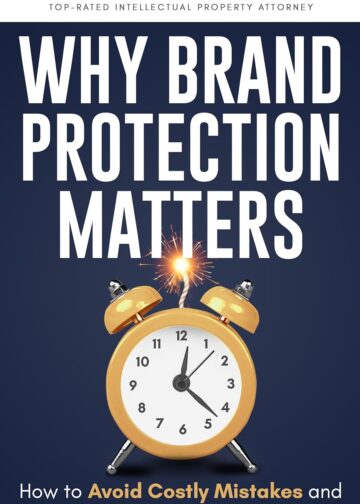
L.A. Perkins
In Why Brand Protection Matters, Perkins unveils the critical steps necessary to shield your company’s most valuable assets and secure ...
October 21, 2024
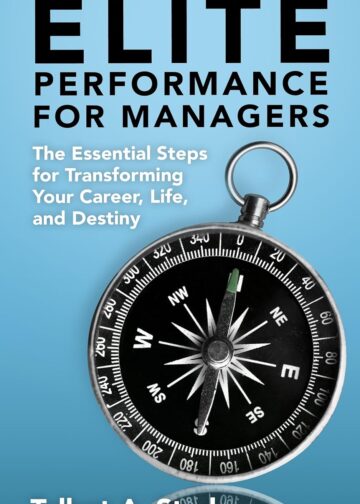
Talbot Stark
Are you ready to take control of your career, life, and destiny by becoming an elite performer? This isn’t just ...
May 14, 2024
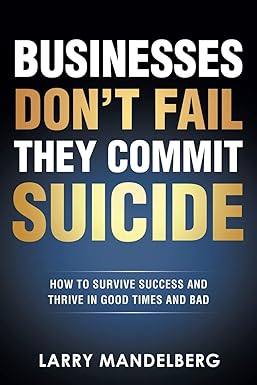
Larry Mandelberg
How Healthy Is Your Successful Business? Do constant disruptions and distractions make you feel like the business is managing you ...
April 30, 2024
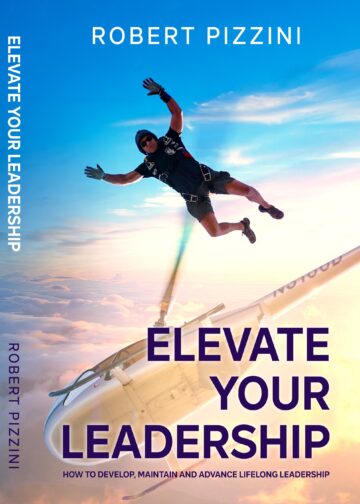
Robert Pizzini
This book is born of my desire to share with others the simple yet effective practices which have given me ...
April 23, 2024

Lori Darley
Lori Darley has dedicated her life to embodying the fullest and most authentic expression of the human experience, both through ...
April 15, 2024
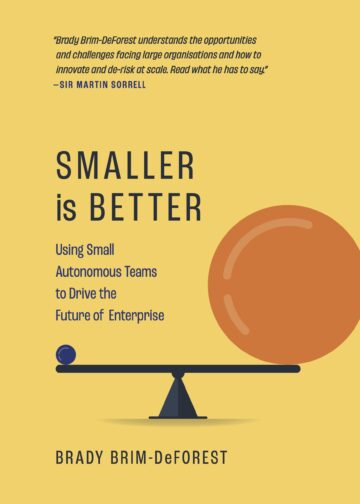
Brady Brim-DeForest
Small is the next big thing. When working for a large organization, weeks can pass before leadership makes important decisions that ...
April 9, 2024

Dr. Kourosh Maddahi
Award-winning cosmetic dentist and best-selling author, Dr. Kourosh Maddahi, reveals the results of over three decades of research into our ...
May 3, 2023
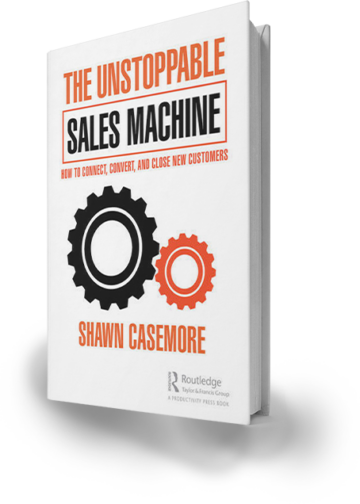
Shawn Casemore
You're in big trouble if you rely on having "feet on the street" to generate new sales. Selling in today's ...
January 11, 2023

Chris Heller
Your thoughts determine your results! Chris Heller, a nationally recognized leader in real estate, joins bestselling author Greg Reid to ...
January 11, 2023
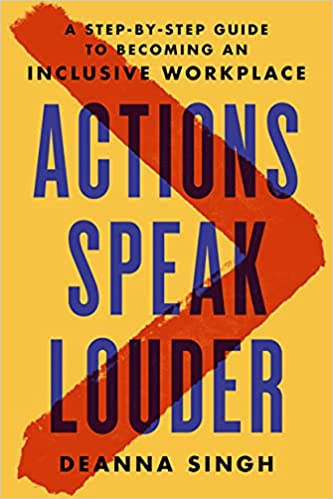
Deanna Singh
Are you tired of hollow promises about diversity, equity, and inclusion in your organization? Do you want to take steps ...
January 11, 2023
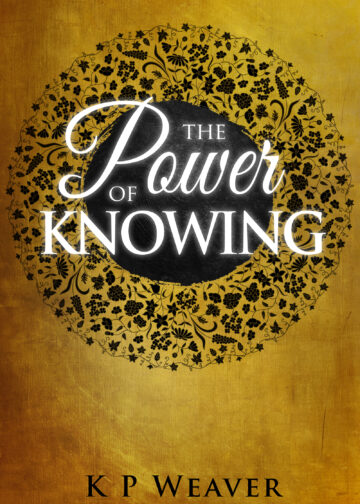
K P Weaver
Book 2 of The Alchemy of Life Magic Collection Do you know how to know? In The Power of Knowing ...
April 22, 2022
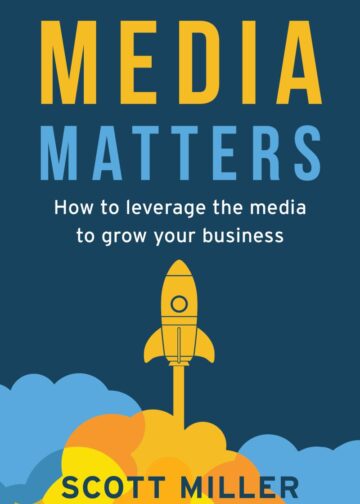
Scott Miller
In the ever-evolving world of content creation, social media, videos, TV and radio shows, podcasts, vlogs and blogs, and search ...
April 6, 2022
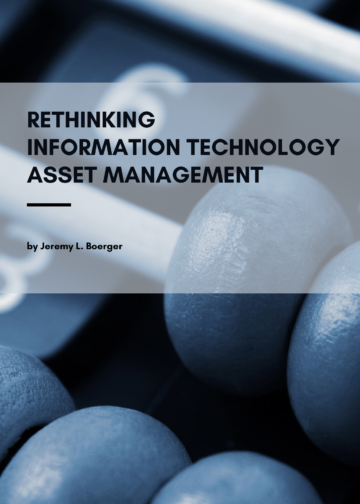
Jeremy Boerger
Most IT directors and ITAM (Information Technology Asset Management) team leads learn on the job. ITAM is specialized enough that ...
March 25, 2022

Scott Conant
Peace, Love, and Pasta, Scott Conant’s most personal and accessible cookbook to date, delves into the evolution of how his ...
March 22, 2022

Bill Humbert
"You get what you expect in life. It's true scientifically and theologically. Bill Humbert now shares irresistibly compelling insights on ...
March 15, 2022

Deepak Chopra
An enlightening guide to success, fulfillment, wholeness, and plenty, offering practical advice on how to cultivate a sense of abundance in ...
March 8, 2022

Michaela Weaver
The Alcohol Con is the empowering and positive solution for problem drinking from Michaela Weaver, founder of The Alcohol Coach. ...
March 5, 2022
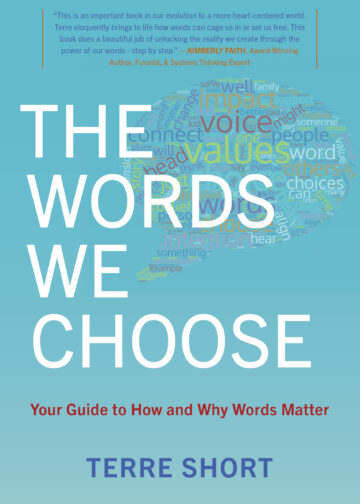
Terre Short
Speak your truth. Maximize the power of your voice and deepen your connection with loved ones, colleagues, customers, and those ...
March 5, 2022
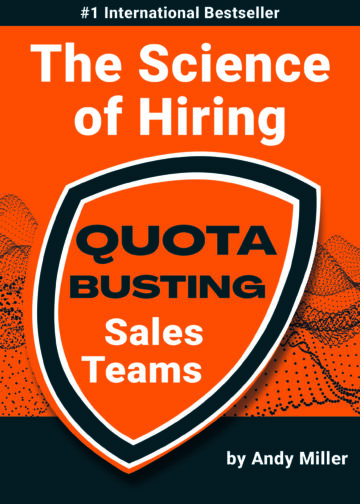
Andy Miller
The first book written on hiring salespeople based upon 85 years of organizational psychology research, data analytics on 2.1 ...
February 18, 2022

Elijah J. Stacy
Elijah Stacy suffers from Duchenne muscular dystrophy, a fatal muscle wasting disease. At the age of sixteen, to avoid agonizing ...
February 1, 2022
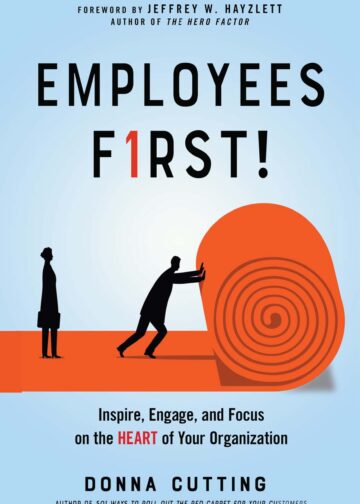
Donna Cutting
"You provide a red-carpet treatment for your employees and they’ll reward you with their effort, time, and loyalty."- Jeffrey ...
February 1, 2022
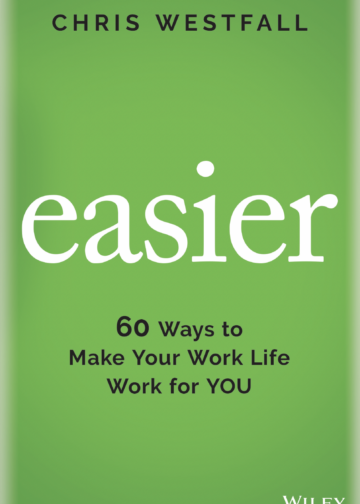
Chris Westfall
You know the drill: the business of life can be tough. Deadlines. Relationships. Expectations. And conflict. Challenges are everywhere. ...
January 28, 2022
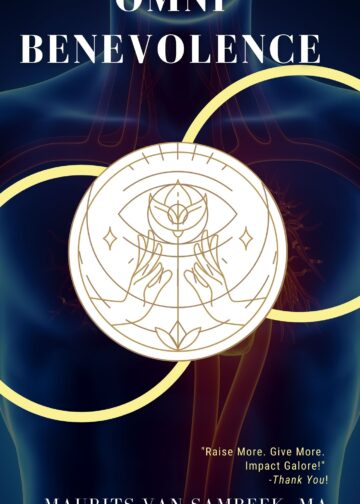
Maurits van Sambeek
Omnibenevolence Secrets Every Philanthropy Director Needs To Know! (and Why You Should Read This Book Even If You’re Not A ...
November 19, 2021
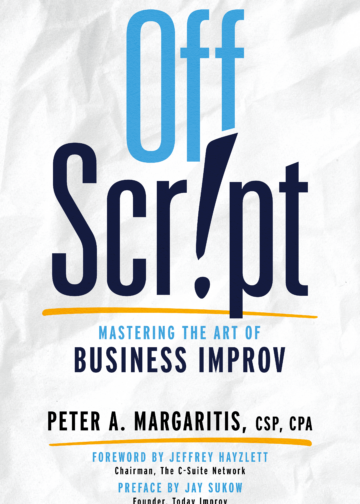
Peter Margaritis
Going OFF SCRIPT doesn’t come naturally to most organizational leaders. We want to control the narrative, ensure ideal outcomes, script ...
November 19, 2021
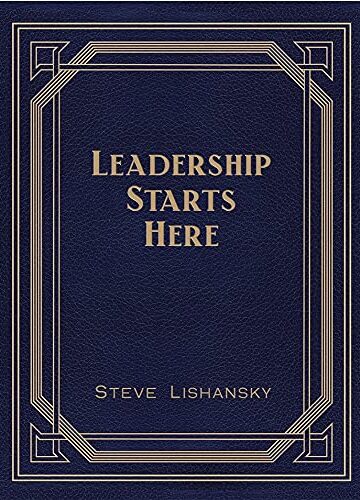
Steve Lishansky
The journey of leadership is one of the most significant endeavors of humanity. Leadership is important for us to ...
November 2, 2021
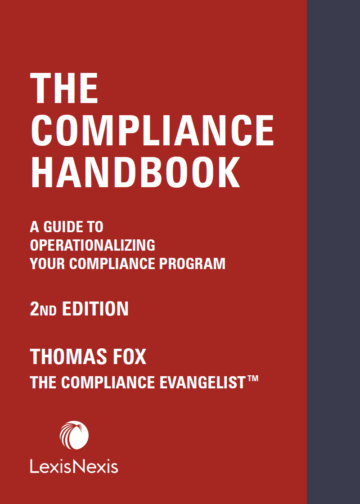
Tom Fox
The “Nuts and Bolts” for Creating a Comprehensive Compliance Plan The first chapter of this unique work lays out a ...
September 27, 2021

David Black
This is what it is like to suffer due to doctor mistakes and their refusal to admit the mistakes. It ...
September 21, 2021
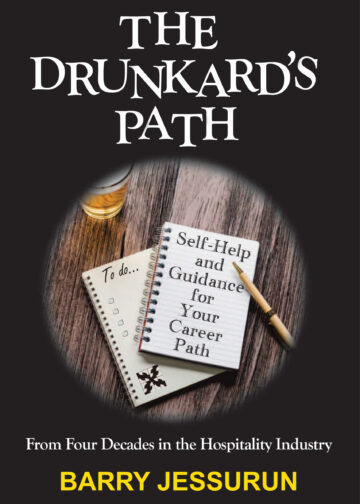
Barry Jessurun
The Drunkard's Path is self-help and career guide based on four decades of working in the hospitality industry. It offers ...
September 2, 2021
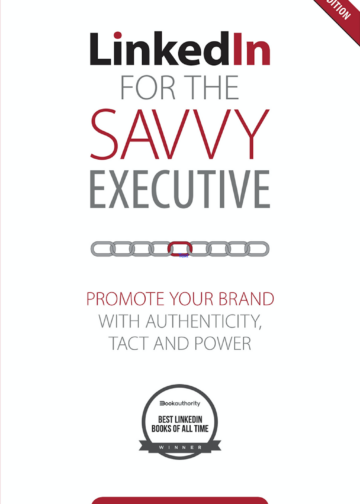
Carol J. Kaemmerer
Many first impressions are made on LinkedIn, so every business professional must convey his or her personal brand effectively on ...
June 3, 2021

Captain Emil Dobrovolschi & Octavian Pantiș
"This is your captain speaking." Become a better pilot for your projects, for your people, and even in life outside ...
June 1, 2021
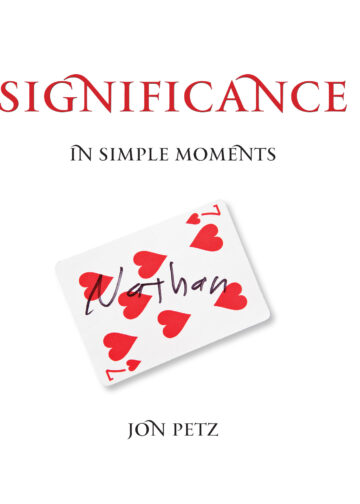
Jon Petz
Life is about moments . . . The Simple Moments that can be the most significant. A chance meeting. An ...
May 25, 2021
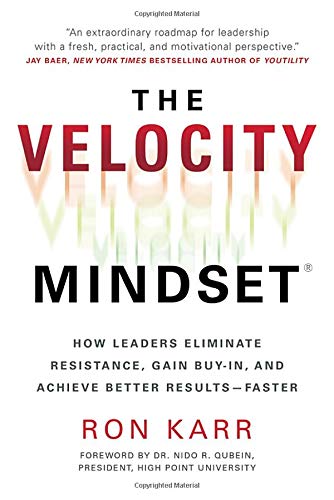
Ron Karr
Everyone knows what qualities define a good leader, but how many of us know what steps to take to become ...
May 12, 2021
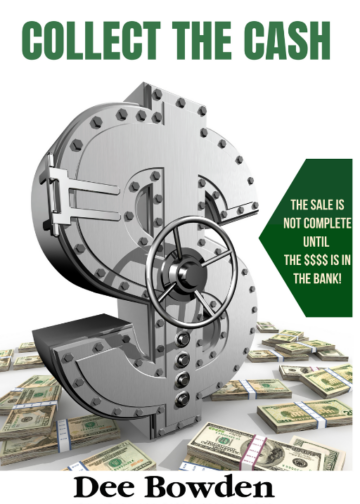
Dee Bowden
The Sale is not Complete until the Money is in the Bank...but you must collect it first. Collections are uncomfortable ...
May 11, 2021
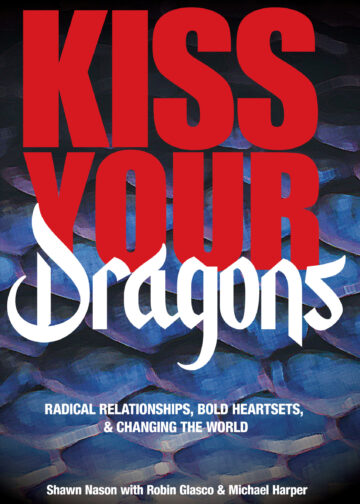
Shawn Nason
One of the Most Important and Surprising Business Books of the Year And it might just also change your life! ...
May 7, 2021
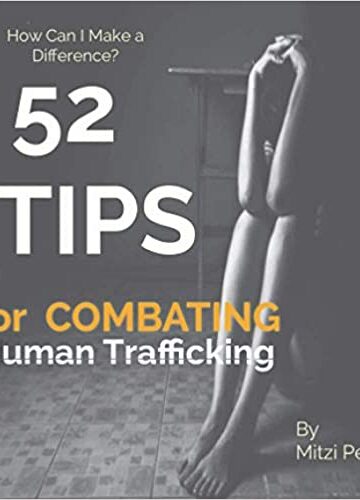
Mitzi Perdue
As the organizer of the Global Anti-Trafficking Auction, Mitzi Perdue often gives talks on human trafficking. After these talks, people ...
April 27, 2021
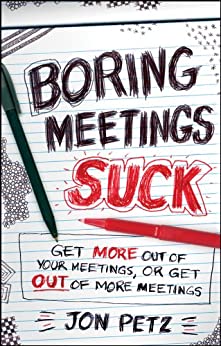
Jon Petz
In Person and Hybrid Meetings, the cornerstones of collaboration, inspiration, and progress have suffered excruciating humiliation at the hands of ...
April 5, 2021
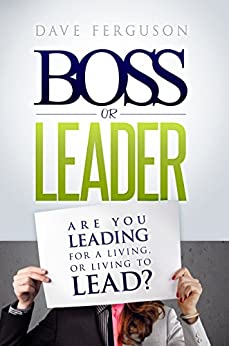
Dave Ferguson
Employees rarely go to work to follow anyone for more than money. They certainly aren’t there to follow the vision ...
March 22, 2021
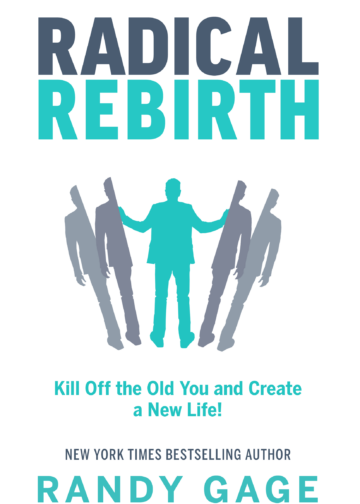
Randy Gage
You can't have lasting, meaningful happiness unless you're willing to continually reinvent yourself. That reinvention must always start with challenging ...
March 16, 2021

Gregg Greenberg
F*cking Argentina and 10 More Tales of Exasperation is an intelligent and witty series of short stories that feel like ...
March 9, 2021

Guy Snodgrass
Learn how to be a leader in your own life and career with expert advice from one of the Navy's ...
March 5, 2021
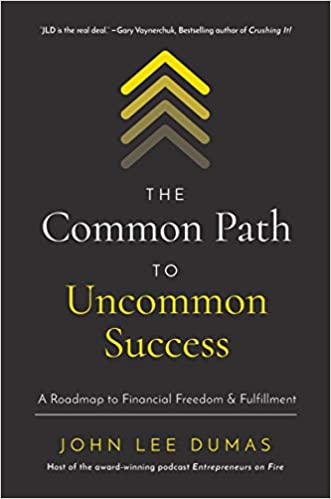
John Lee Dumas
Say hello to YOUR version of uncommon success with a revolutionary 17-step roadmap to guide your journey to financial, location, ...
March 2, 2021

Dr. Shellie Hipsky
Dr. Shellie’s Ball Gowns to Yoga Pants helps you start building your authentic brand and successful company! Dr. Shellie Hipsky’s ...
March 2, 2021

Ben McCarty
Cyberjutsu is a revolutionary approach to information security based on authentic, formerly classified Ninja scrolls. It synthesizes today's infosec field ...
March 2, 2021
Leo Bottary
Peer-no-va-tion (pir-n-v-shn) combines the words peer (people like me) and innovation (creativity realized). It's teamwork of the highest order. Leo ...
January 15, 2024
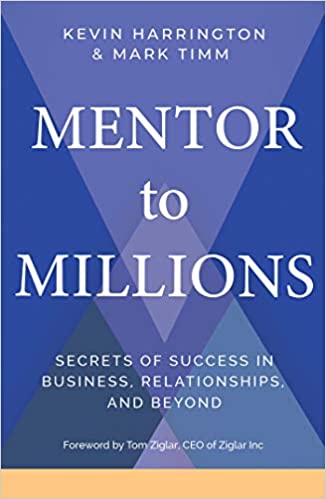
Kevin Harrington
Kevin Harrington, one of the original "sharks" of the TV hit Shark Tank, and serial entrepreneur Mark Timm take you ...
February 17, 2021

Jeff Brandeis
No matter what you sell, this fully-illustrated, easy-to-read handbook breaks through the clutter of other sales “techniques” to help you ...
February 9, 2021
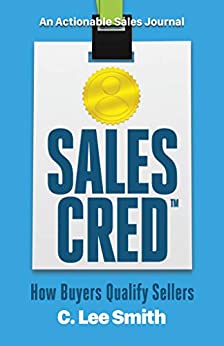
C. Lee Smith
In sales, there's a lot of talk about qualifying the buyer. What's the lead scoring say? Are they a marketing-qualified ...
February 2, 2021
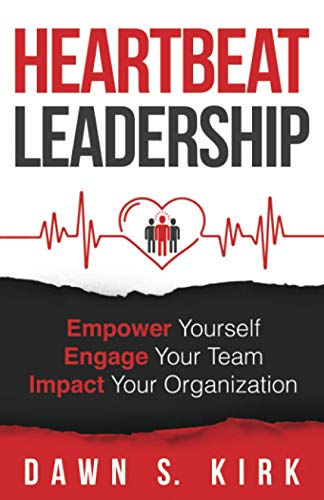
Dawn S. Kirk
People Are the Heartbeat of Business! The heart is the life force within each of us. It's the organ that ...
January 26, 2021
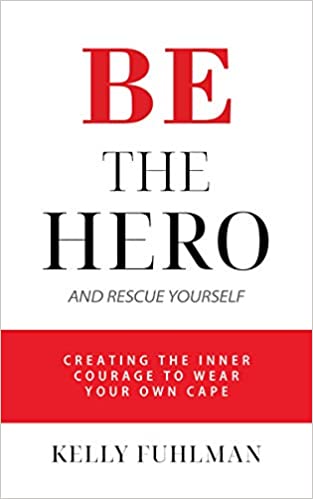
Kelly Fuhlman
Have you ever wished a superhero would come down and rescue you in those chaotic life moments of life? The ...
January 19, 2021
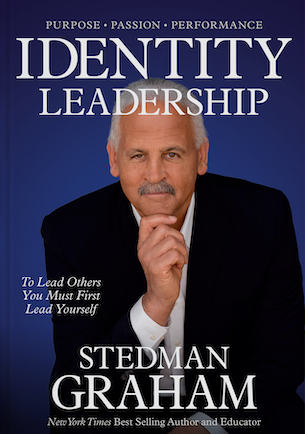
Stedman Graham
Become a passionate, purposeful, and meaningful leader through identifying who you are, your strengths, and your skills. New York Times ...
January 12, 2021
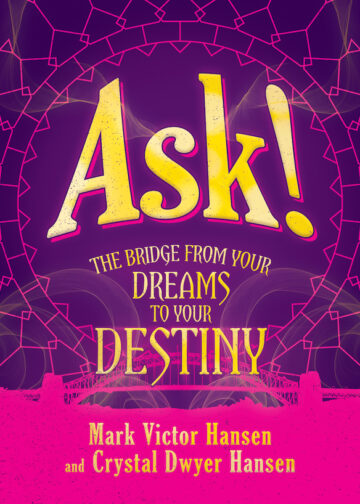
Mark Victor and Crystal Dwyer Hansen
Your dreams become your destiny when you learn the secret art of asking! Most people have beautiful dreams deep inside—the ...
January 5, 2021
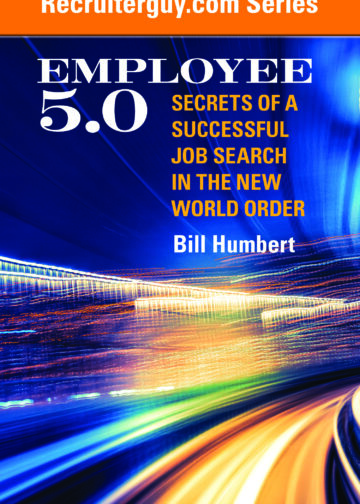
Bill Humbert
Employee 5.0: Secrets of a Successful Job Search In The New World Order is Bill’s second book. Over 40 years ...
December 22, 2020

Shellye Archambeau
Full of empowering wisdom from one of Silicon Valley's first female African American CEOs, this inspiring leadership book offers a ...
December 15, 2020
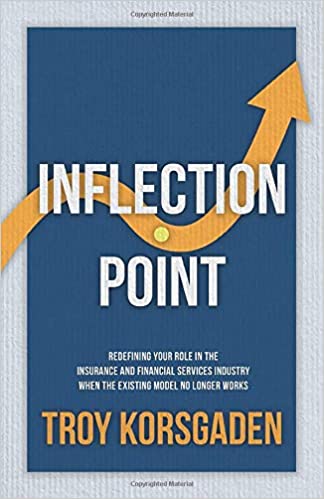
Troy Korsgaden
In the business world, an inflection point happens at a critical moment when the situation calls for new thinking and ...
December 11, 2020
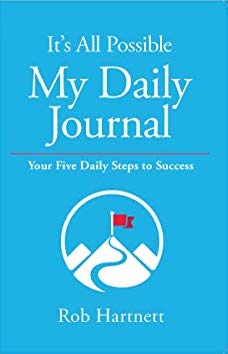
Rob Hartnett
As a companion to the game changing book It’s All Possible – how to lead an epic life by Rob ...
December 8, 2020

Mark Victor Hansen
THE BEST BOOK OF ALL TIME HASN’T YET BEEN WRITTEN, SO YOU HAVE TO WRITE IT! Mark Victor Hansen, co-creator ...
November 30, 2020

Jeff Brandeis
There are many books available to teach you techniques for closing a sale (meaning bringing a new client on board ...
November 30, 2020

Christoph Trappe
Listed as a No. 1 new public relations book in early 2020 with copies sold in Africa, Asia, Europe, North ...
November 11, 2020
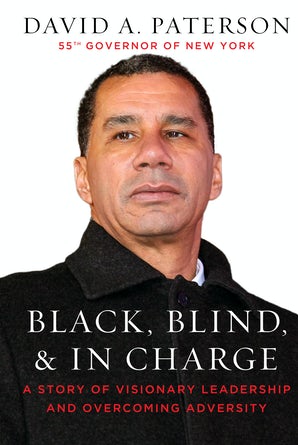
David A. Paterson
"I have had this desire my whole life to prove people wrong, to show them I could do things they ...
October 2, 2020
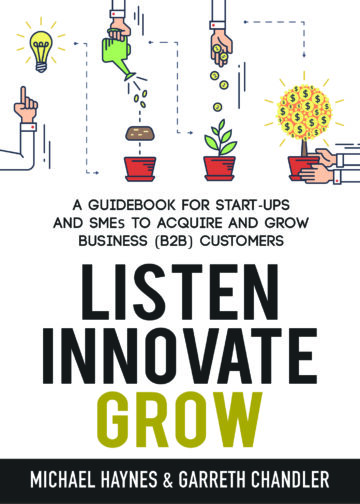
Michael Haynes
Written for SMEs and start-ups, this book covers essential B2B topics including: Understanding what business buyers (i.e. decision-makers) really want ...
September 4, 2020
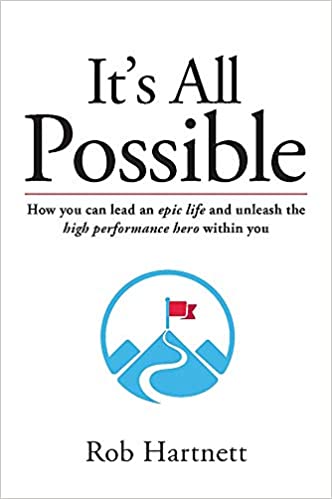
Rob Hartnett
THE ART OF THE POSSIBLE IN BUSINESS AND LIFE Positive Attitude And Willingness To Take Action Are Key In a ...
August 7, 2020
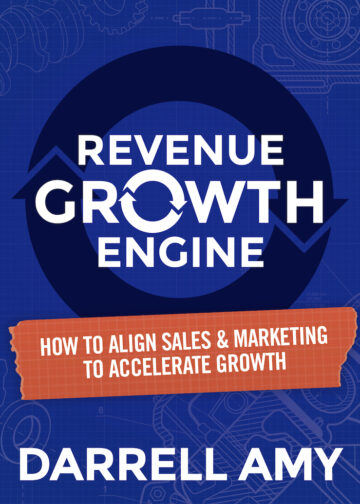
Darrell Amy
Would you like to grow revenue faster? Revenue Growth Engine presents a strategy and a model to accelerate growth. Whether ...
June 16, 2020
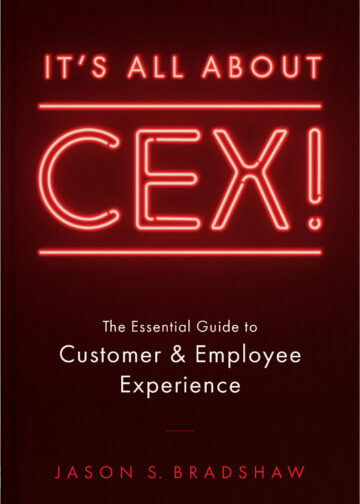
Jason S Bradshaw
Of all the things that can make or break your business, the most critical is experience. Great experiences inspire customers ...
June 2, 2020
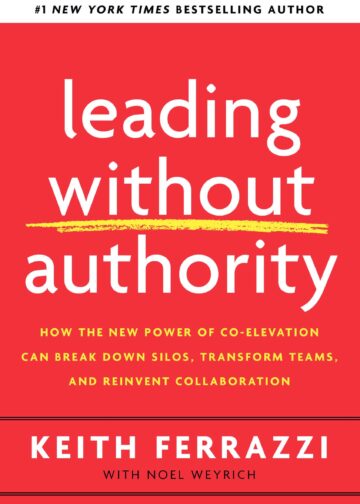
Keith Ferrazzi
As the founder and CEO of Ferrazzi Greenlight, Keith Ferrazzi has spent over twenty years working with major global organizations ...
May 26, 2020
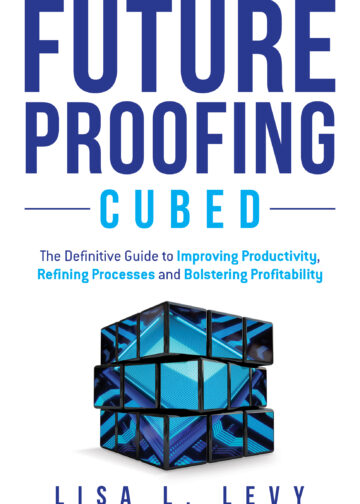
Lisa Levy
For companies who’ve embraced new opportunities only to lose money through inefficiency, mismanagement and misinformed decision-making, Lisa Levy knows there ...
May 13, 2020
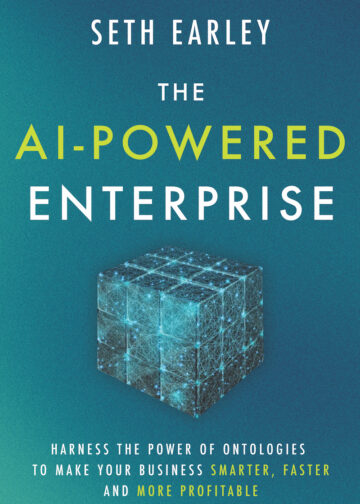
Seth Earley
“We know how we want our companies to work. Enterprises ought to be customer-focused, responsive, and digital. They should deliver ...
April 29, 2020

Michael Houlihan & Bonnie Harvey
Full Cast Performance From the New York Times bestseller, The Barefoot Spirit, Comes a NEW style of Business Audiobook: Learn Valuable Lessons While ...
March 31, 2020

Marcus Anthony Ray
At age 21, following Canada's economic downturn, Marcus Ray entered the world of male exotic dancing. He was a stripper. ...
March 26, 2020

Entrepreneur Secrets to a Grow Get Give Life
Wouldn’t you love to have a road map to success in business and life? What if the steps that the ...
March 25, 2020

Belinda Goodrich
Leveraging neuropsychology, behavioral science, and Neuro-Linguistic Programming, Author Belinda Goodrich, a leading productivity expert, has effectively defined why many people ...
February 27, 2020
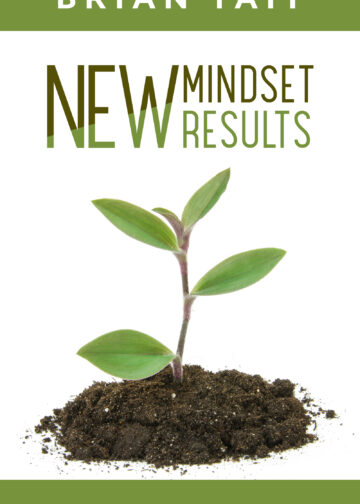
Brian Tait
New Mindset; New Results Accomplish Greater! The accomplishments of tomorrow should never be celebrated today. The time has come to ...
February 25, 2020
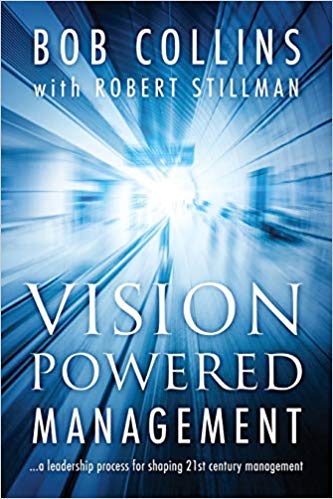
Bob Collins
Peter Drucker once said "Business Culture Eats Strategy for Breakfast". Collins asserts that a high-performance workforce, highly charged, thirsty for ...
February 4, 2020

John Lopez, PhD
Businesses operate in an increasingly diverse, global workforce, and in the coming years in the U.S., net international migration is ...
January 28, 2020

Veera B Budhi
The book is about the transformation journey every individual has to take if they want to improve their life for ...
November 18, 2019

Mallika Chopra
Featuring full-color illustrations, Just Feel is an engaging and easy-to-read guide that introduces kids to the building blocks of resilience ...
October 23, 2019
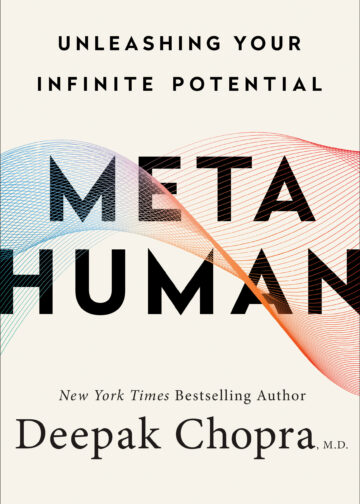
Deepak Chopra MD, FACP
In DC Comics' DC Universe, a metahuman is a human with superpowers. However, for bestselling author Deepak Chopra, to be metahuman isn’t science fiction and is certainly ...
October 9, 2019
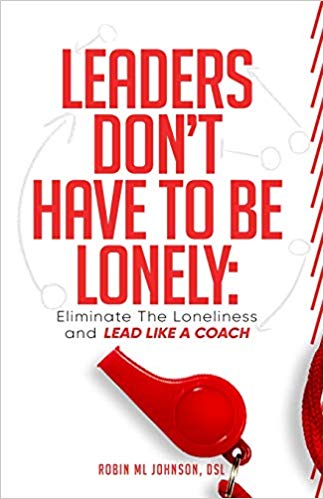
Robin ML Johnson, DSL
Leadership loneliness is a phenomenon felt by many leaders both in the boardroom and on the front line, and while ...
May 20, 2019
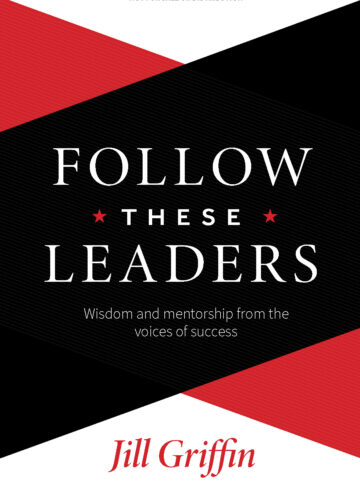
Jill Griffin
What if you could gather the smartest people you know into one room and ask them anything? Who would be ...
May 13, 2019
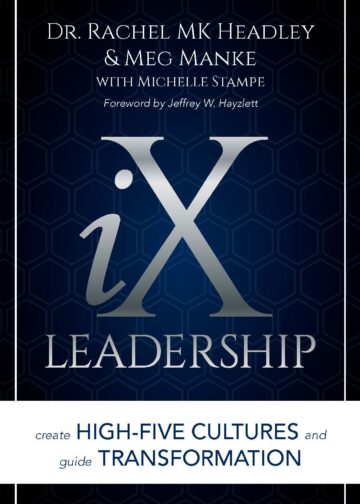
Rachel Headley
Called "brutally honest, incredibly practical, and refreshingly hopeful," Headley and Manke shake traditional corporate culture to the core in this ...
May 6, 2019
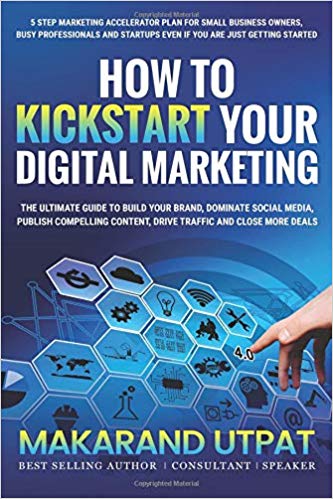
Makarand Utpat
The world has quickly moved into the digital sphere. Disrupt or Die is the new mantra. Digital realm is engulfing ...
April 23, 2019
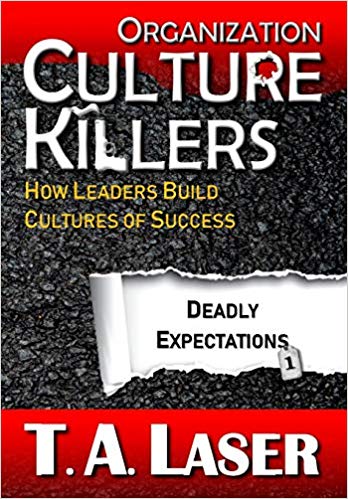
Tabitha Laser
The definition of insanity is doing the same thing over & over and expecting different results. We have fallen into ...
April 10, 2019
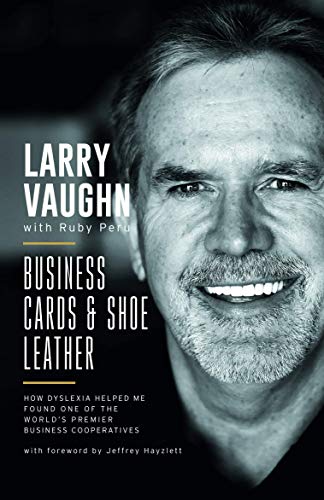
Larry Vaughn
Larry Vaughn owned and operated a successful print company – Ideal Printers - for 26 years and helped found two ...
April 10, 2019
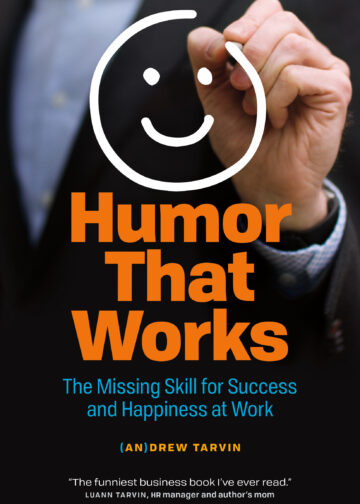
Andrew Tarvin
If you want to increase team productivity, relieve stress, and be happier at work, you could hire a bunch of ...
April 3, 2019
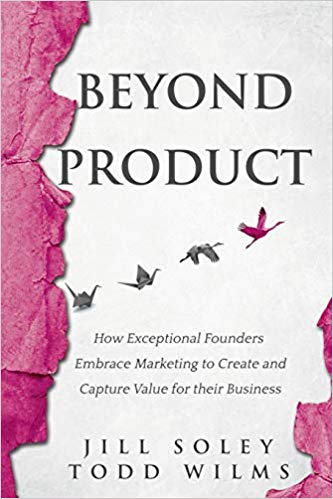
Todd Wilms
Most startups fail, even the ones with great products. Even great products need a smart strategy to reach their market. ...
March 27, 2019
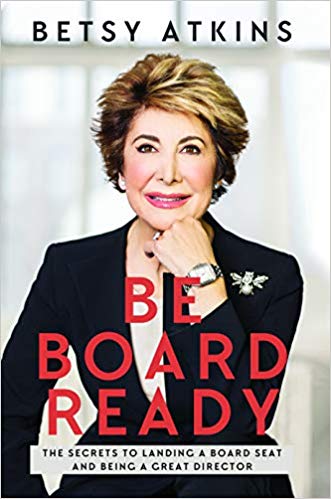
Betsy Atkins
Betsy Atkins is often asked “How can I get on a board?” So after 20+ years in the boardroom and ...
March 12, 2019
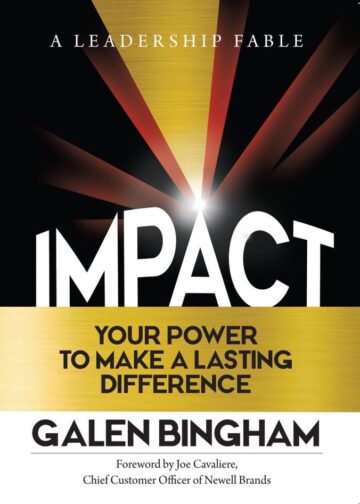
Galen Bingham
Does your leadership matter? Will you be remembered? Do you have IMPACT? IMPACT: A Leadership Fable is an inspirational tale ...
February 8, 2019
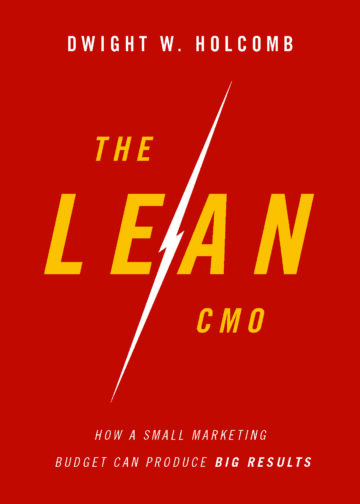
Dwight Holcomb
The goal of every marketer is more sales. But achieving this on a consistent basis is tougher than ever in ...
January 29, 2019
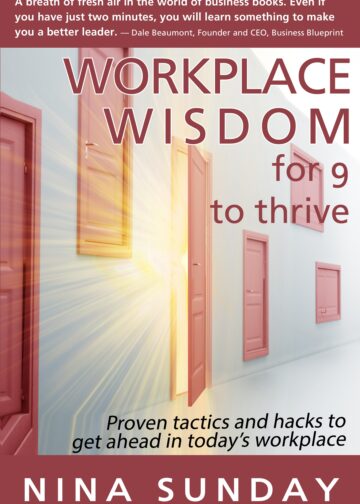
Nina Sunday
Practical insights on workplace know-how...proven tactics and hacks for better relationships, communication and effectiveness at work. Being average at your ...
January 29, 2019
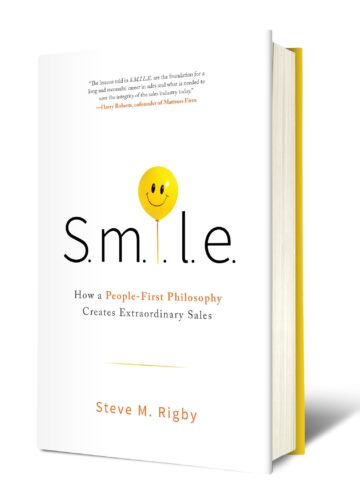
Steve Rigby
A Joyous Journey to Sales Success In a world full of quick fixes and hyper-aggressive focus on systematized sales, S.M.I.L.E. ...
January 4, 2019
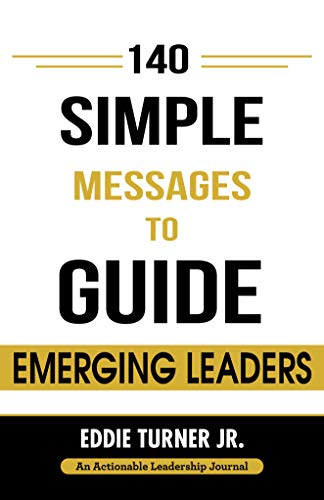
Eddie Turner
Leadership is one of the world's oldest professions. There are countless resources for one to learn about leadership and do ...
December 14, 2018
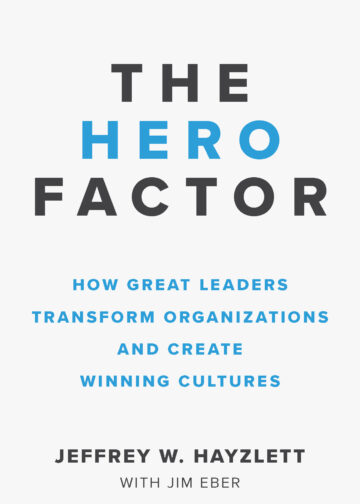
Jeffrey Hayzlett
There are leaders. Then there are HERO leaders—those who go beyond providing free coffee in the office or giving 10 ...
December 13, 2018
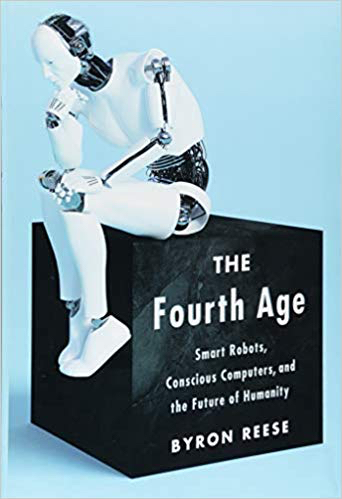
Byron Reese
“The Fourth Age not only discusses what the rise of A.I. will mean for us, it also forces readers to ...
November 27, 2018
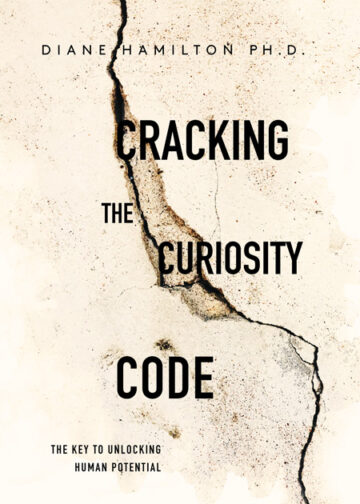
Dr. Diane Hamilton
Cracking the Curiosity Code: The Key to Unlocking Human Potential: Curiosity is one of the most analyzed, discussed, and written ...
November 27, 2018

Anthony Iannarino
The first ever playbook for B2B salespeople on how to win clients and customers who are already being serviced by ...
October 30, 2018
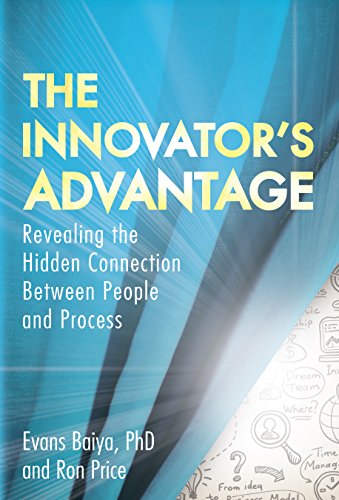
Dr. Evans Baiya & Ron Price
Innovation is not just about technical and systematic processes. In The Innovator's Advantage, authors Evans Baiya and Ron Price reveal that ...
October 24, 2018
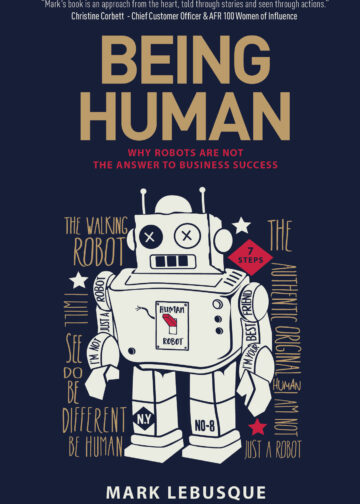
Mark LeBusque
Being Human challenges the notion that technical competence and a Robotic approach to Human Management still has a place in ...
October 24, 2018
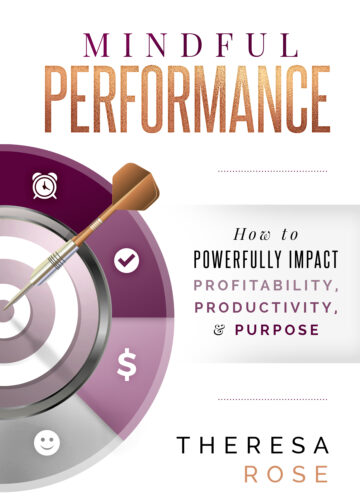
Theresa Rose
Mindful Performance is an easy-to-digest how-to book that blends mindfulness and mental mastery techniques with proven high-performance business strategies you ...
October 23, 2018

Peter Loge
Soccer is 90 minutes of systems thinking in action. Soccer Thinking for Management Success is by a soccer fan and ...
October 2, 2018
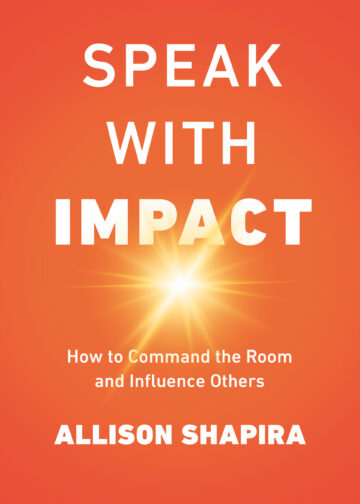
Allison Shapira
Your voice matters, especially as a leader. Every day, you have an opportunity to use your voice to have a ...
September 10, 2018
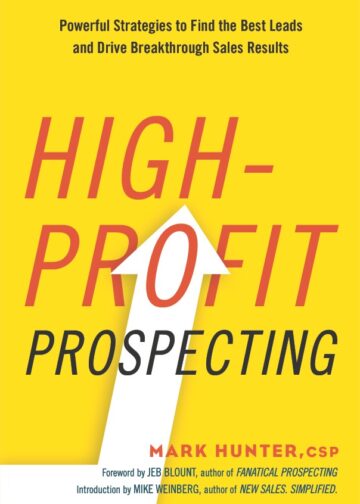
Mark Hunter
“High-Profit Prospecting” digs deep into the specific techniques sales leaders use to keep their pipeline full of the RIGHT prospects. ...
September 10, 2018
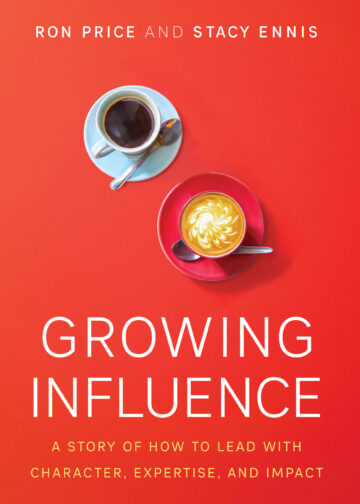
Ron Price & Stacy Ennis
Emily is a career-driven thirtysomething with big ambitions and a young family. She is making an impact as a manager ...
September 10, 2018
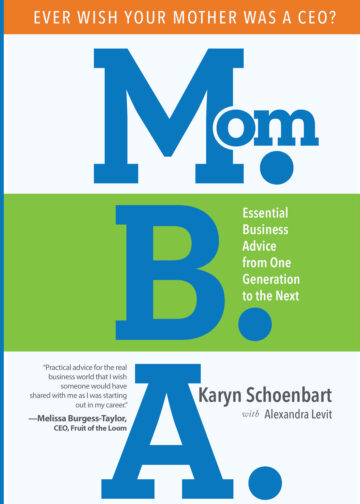
Karyn Schoenbart
CAREER ADVICE FROM A GLOBAL CEO WHO JUST HAPPENS TO BE A MOM In Her New Book Mom.B.A., CEO Karyn ...
August 31, 2018
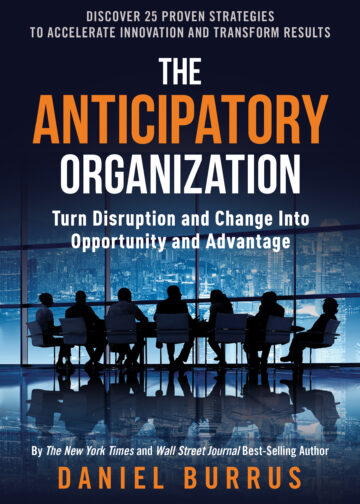
Daniel Burrus
Discover 25 proven strategies any size organization or individual can use to accelerate innovation and growth with the low risk ...
August 28, 2018
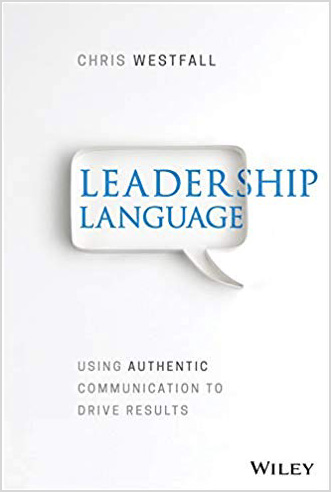
Chris Westfall
Complacency is the enemy of every leader. If you have a vision—for yourself, your team and your organization—you owe it ...
August 27, 2018

David Parish
The environmental policy landscape can be tough to navigate between politicians, advocacy groups and businesses having a different message. Alaskan ...
August 27, 2018
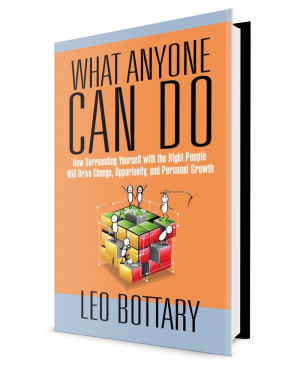
Leo Bottary
Most of us don’t seek advice or reach out to others for help very easily. In part, it’s because we’re ...
August 13, 2018
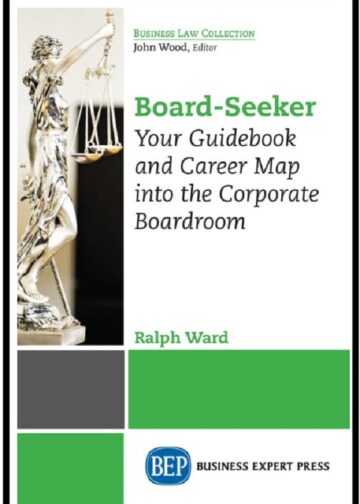
Ralph Ward
For the Board Seeker... This is the first practical guide written specifically to help board-ready leaders and executives gain the ...
August 13, 2018
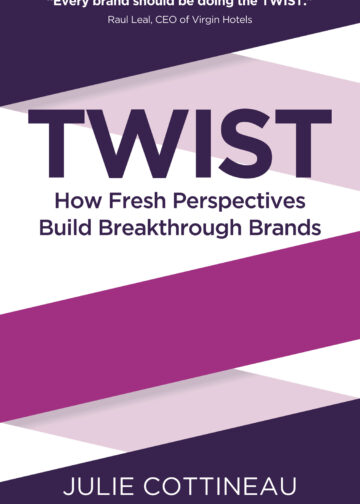
Julie Cottineau
Julie Cottineau is the Author of the Best-selling book “TWIST: How Fresh Perspectives Build Breakthrough Brands” (Panoma Press, 2016). She ...
July 17, 2018
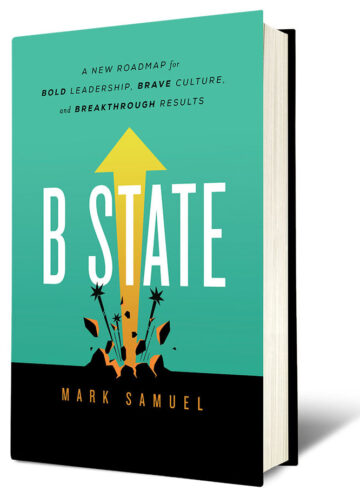
Mark Samuel
In business and life, there are often moments when one simply can't seem to find a way forward. Searching in ...
July 12, 2018

Mike Pierce
Learning to Lead is critical for success into today's world. No matter what our title is, pay level, industry or ...
May 28, 2018
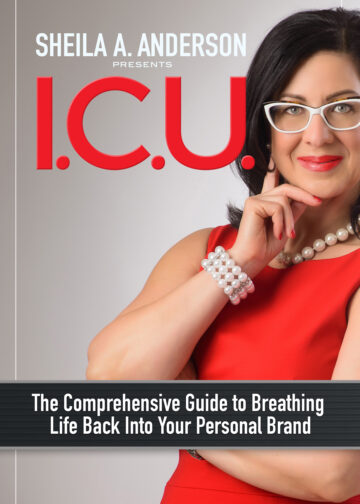
Sheila Anderson
Sheila A. Anderson is a master at bringing forward the inner and outer expression and connecting it with the experience ...
May 14, 2018
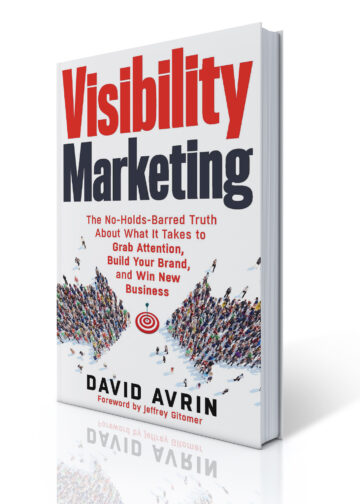
David Avrin
The landscape is littered with the corpses of great products and strong companies that died because of crappy marketing. Why ...
May 8, 2018

Cathy Dolan-Schweitzer
Do your healthcare projects feel overwhelming and stressful at times? Do you have difficulty collaborating with healthcare system professionals? Do ...
April 30, 2018
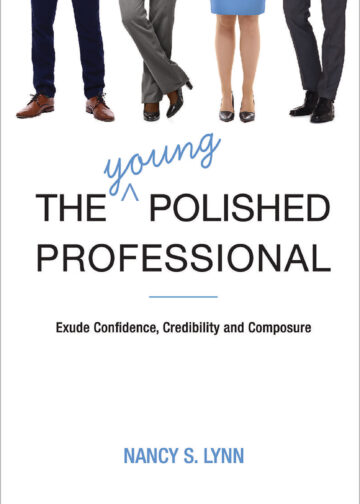
Nancy Lynn
To be young, polished and professional is not simply wearing the right clothes and saying the right words. Polished encompasses ...
April 30, 2018

Kathleen Thomas
Financial Advisor Kathleen Thomas has seen the difficulties and setbacks that occur when women don’t own their financial lives. It’s ...
April 11, 2018
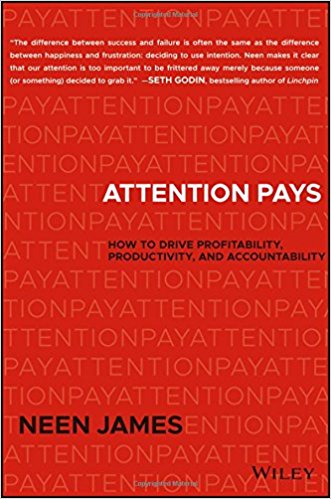
Neen James
Drive profitability, productivity, and accountability To create extraordinary lives, we must learn to “unplug” from the constant barrage of disruptions ...
April 6, 2018
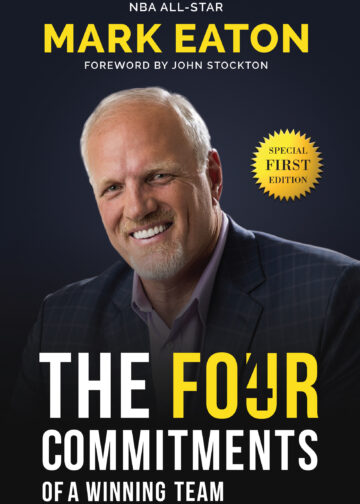
Mark Eaton
Why do some organizations regularly outperform their competition? What’s the key to creating a united team that’s an unstoppable force ...
April 3, 2018
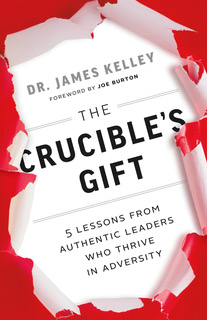
James Kelley
In an era of unauthentic leaders, the stakes could not be higher for embracing a better version of yourself that ...
March 22, 2018
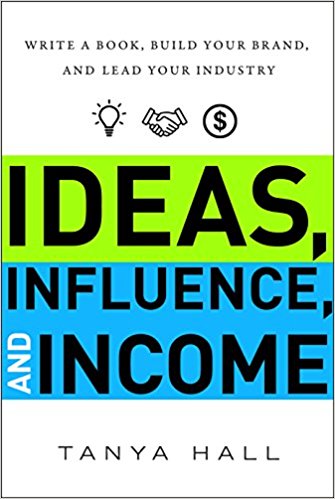
Tanya Hall
Are you considering writing a book to boost your visibility and credibility? Or just trying to figure out how to ...
March 15, 2018
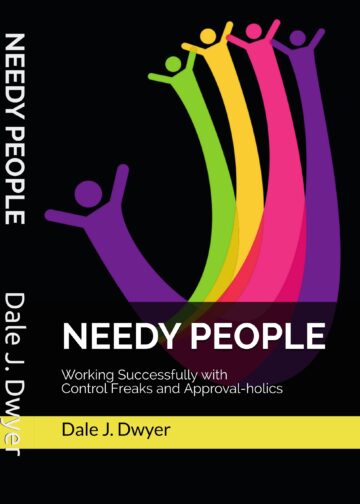
Dale J. Dwyer, Ph.D.
Everybody knows someone who is over-controlling or who needs a great deal of approval. Or it may be that you ...
February 16, 2018
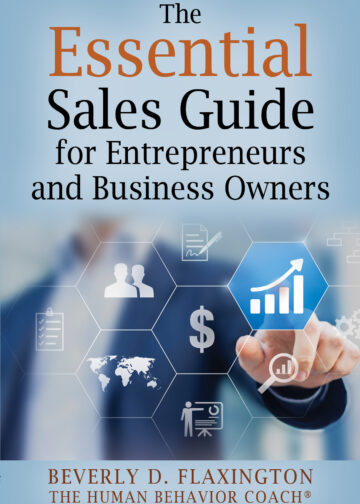
Beverly D. Flaxington
If you're an entrepreneur, if you own a business, or if you plan to start one-you're a salesperson, whether you ...
February 15, 2018
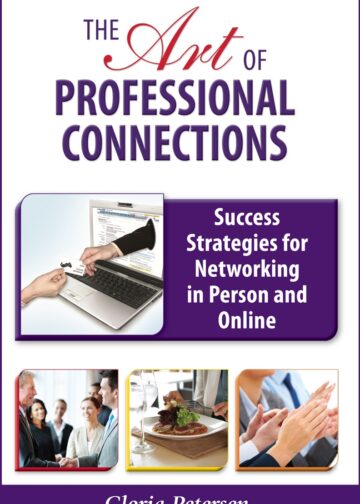
Gloria Petersen
Gloria Petersen’s “Success Strategies for Networking in Person and Online,” offers five paths to create your person-to-person and online networks ...
February 5, 2018
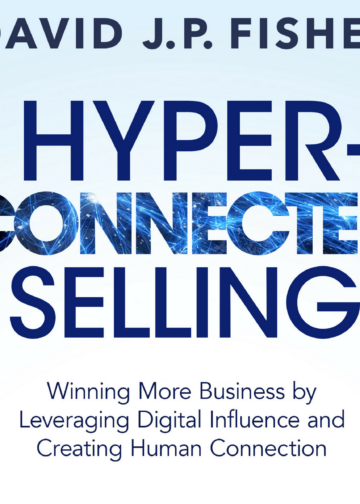
David J.P. Fisher
"If you could cross the late, great, sales coach Zig Ziglar – a master of face-to-face relationship selling and networking ...
January 22, 2018
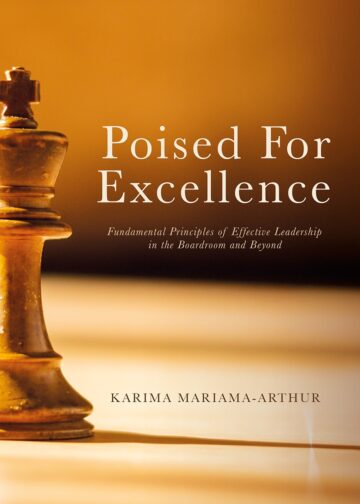
Karima Mariama-Arthur
This book is an exceptional resource for leaders at every level across industries. An insightful guidebook comprised of 40 illuminating ...
January 15, 2018
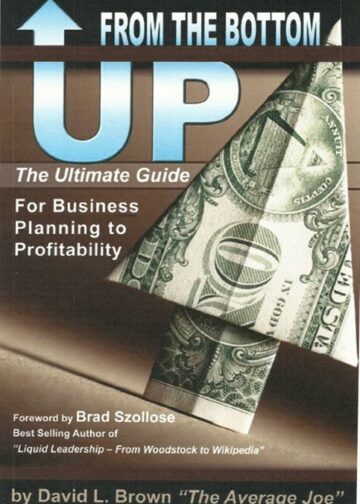
David L. Brown
From the Bottom Up: The Ultimate Guide for Business Planning to Profitability is a step-by-step guide for writing a business ...
January 3, 2018

David Oualaalou
As the debate surrounding Iran’s nuclear agreement with the West becomes increasingly contentious, US allies in the deal: UK, Russia, ...
December 28, 2017
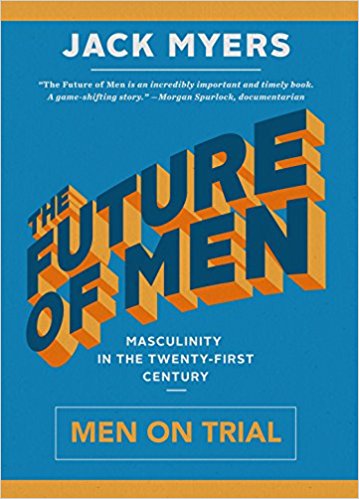
Jack Myers
In Jack Myers prescient book, TheFuture of Men: Men on Trial, he predicted the current wave of exposure of male ...
December 20, 2017
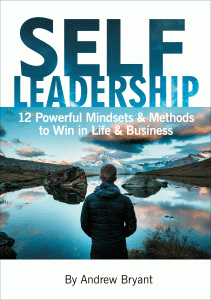
Andrew Bryant
Get greater control of your life and career with this easy to read, and yet profound handbook. Explore your Self-awareness, ...
December 18, 2017

Frumi Rachel Barr
Prevent the grinding sands of conflict from seizing the gears of business decision-making. A CEO’s Secret Weapon offers 10 results-oriented ...
December 13, 2017
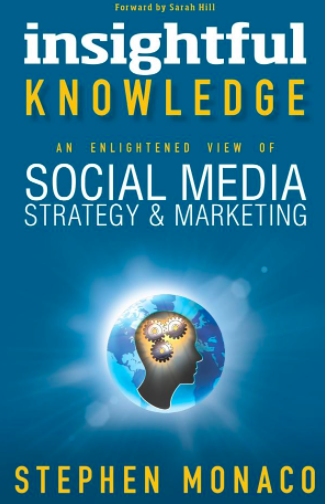
Stephen Monaco
If you are looking for a book authored by someone who has been there as an employee, a successful entrepreneur ...
November 14, 2017
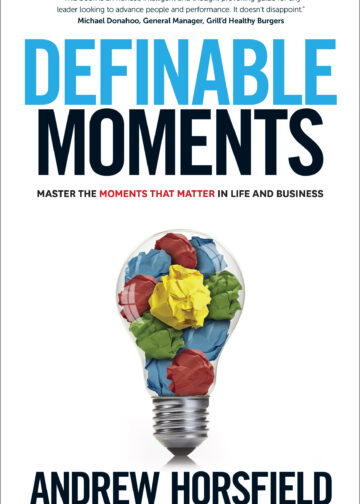
Andrew Horsfield
Work worth doing always has a hard part. In any results-driven activity, there are defining moments. That point in time ...
November 6, 2017
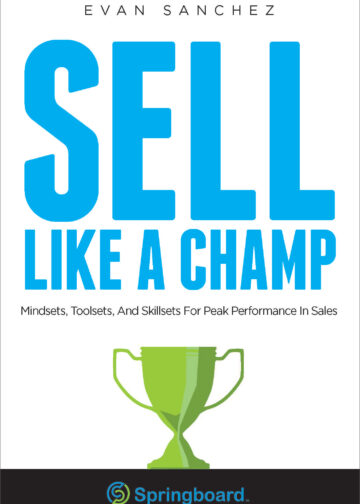
Evan Sanchez
Lack of sales results and performance gaps are typically addressed with more skills training, more product or service knowledge, and ...
November 6, 2017
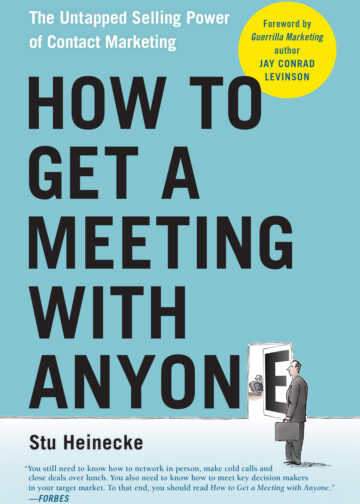
Stu Heinecke
Sales and marketing teams are told to fill the funnel, increase revenues, and move the needle on market share—then left ...
November 6, 2017

Dr. Terri Levine
This book is a guide to doing business with heart and being authentic and transparent with employees, vendors, prospects, and ...
October 30, 2017
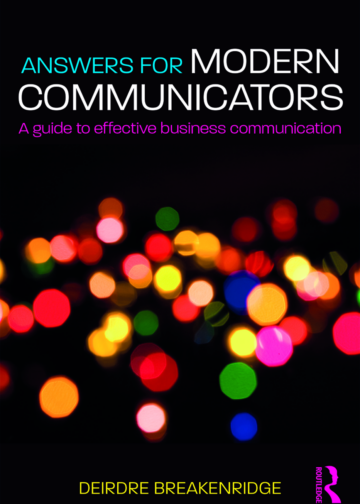
Deirdre Breakenridge
Answers for Modern Communicators, A Guide to Effective Business Communication, provides professionals with practical answers to important career and communication ...
October 26, 2017
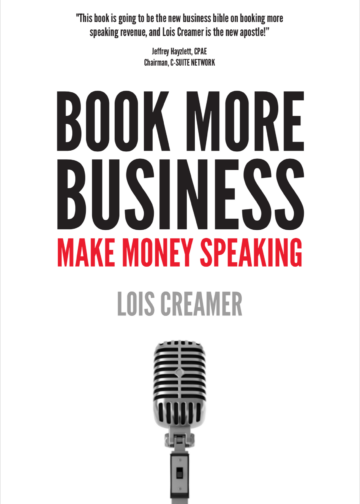
Lois Creamer
This book is the definitive guide on the business of speaking. You'll find everything you need to know to jump ...
October 23, 2017
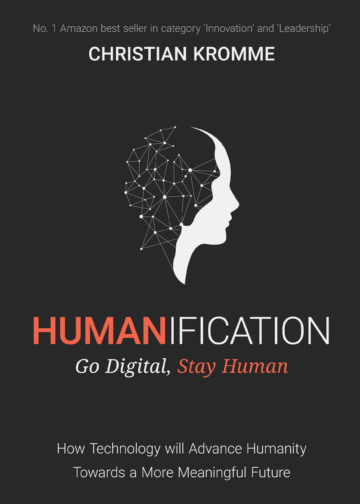
Christian Kromme
Imagine being able to spot the next big trend, or being able to predict the next big wave of change. ...
October 18, 2017
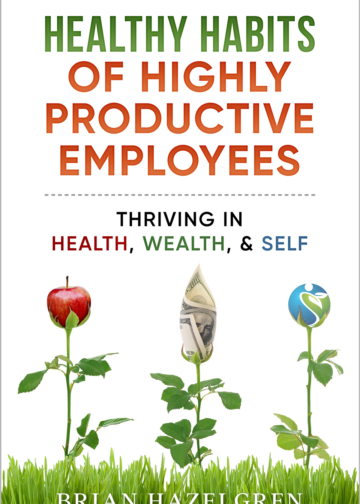
Brian Hazelgren
Healthy Habits of Highly Productive Employees is a breakthrough book of successful tips, stories, and systems to formulate the best ...
October 10, 2017
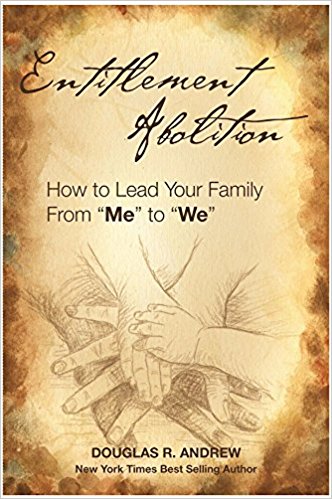
Doug Andrew
Entitlement Abolition, from New York Times bestselling author Douglas R. Andrew, underscores the focus on all three dimensions of abundance ...
September 25, 2017
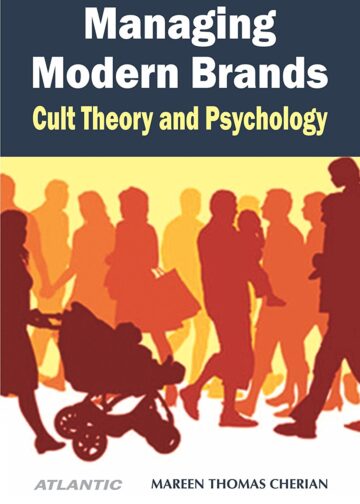
Mareen Thomas Cherian
Managing Modern Brands: Cult Theory and Psychology is a succinct work that explores the emotional connect that brand managers crave ...
September 12, 2017
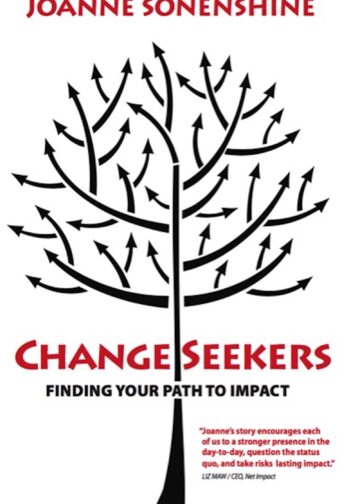
Joanne Sonenshine
On a career path that one could only call circuitous, Joanne Sonenshine learned that what fulfilled her the most was, ...
September 8, 2017
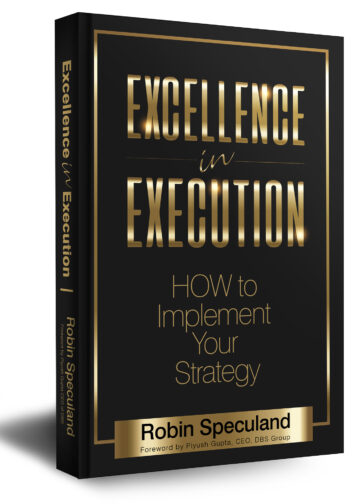
Robin Speculand
At a time of tremendous business disruption, leaders need to execute strategies more frequently and more effectively than before. Excellence ...
September 6, 2017
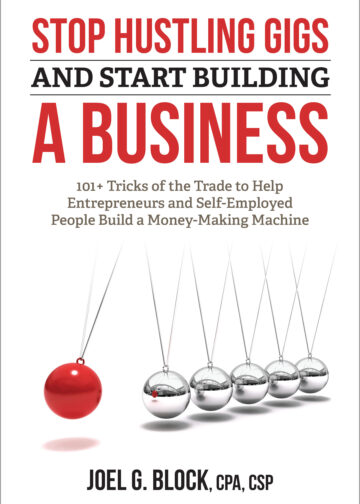
Joel G. Block
This is a special book with a special agenda that I reveal in just a moment. But before I do ...
August 29, 2017
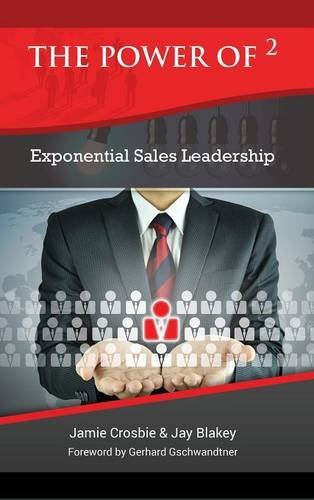
Jamie Crosbie
At Last, a book for sales managers built on real world sales experience. This book offers a fresh, up to ...
August 25, 2017
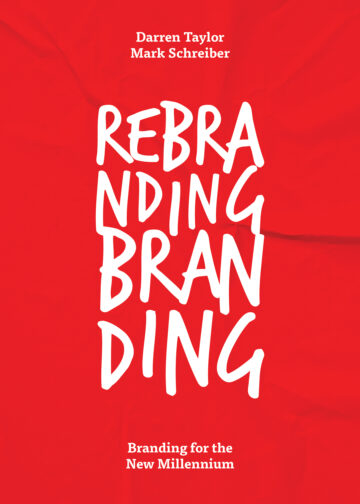
Darren Taylor & Mark Schreiber
The emergence of digital technologies has democratized branding from the province of marketing professionals to any teenager with an Instagram ...
August 16, 2017

Kristiane Cates
K. Cates and her husband, Chad, were an ordinary couple who attended church, enjoyed barbeques with friends on the weekends, ...
August 14, 2017

Richard Marker
This collection of essays is both timely and timeless. They cut through the clutter of popular jargon and fads in ...
August 11, 2017
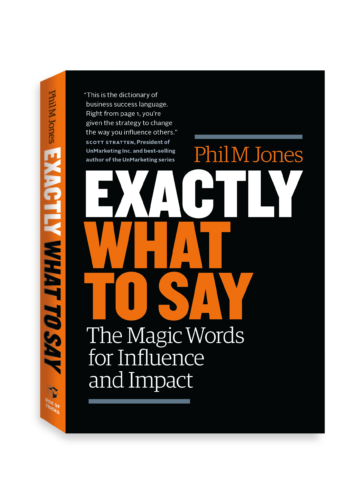
Phil M. Jones
Often the decision between a customer choosing you over someone like you is your ability to know exactly what to ...
August 8, 2017
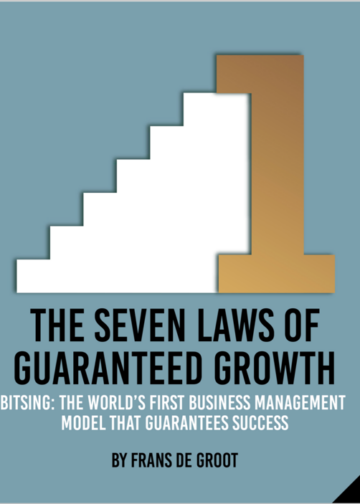
Frans de Groot
This book is about the World's First Business Management Model that Guarantees achievement of goals: The BITSING methodology. This scientifically ...
August 4, 2017
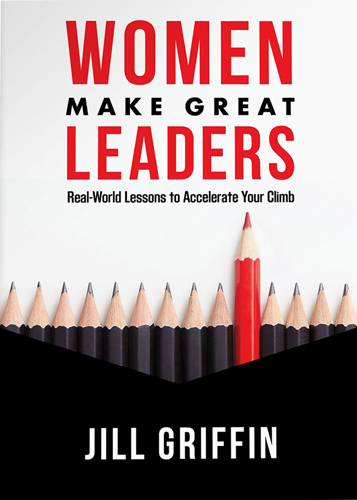
Jill Griffin
My new book is about women who have beaten the odds. Early on, they heard the whispers....the inner-call to leadership. ...
August 4, 2017
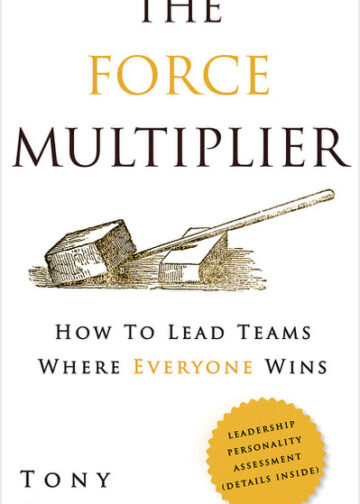
Tony Chatman
Leadership is all about leading people. if you can't effectively lead people, you can't be considered an effective leader. The ...
August 4, 2017
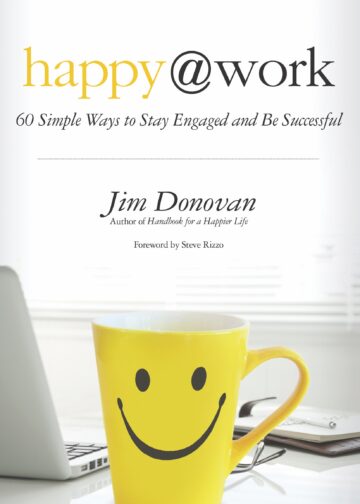
Jim Donovan
Even in a tight economy, job satisfaction isn’t a luxury; fulfilled, happy employees are productive, innovative, and loyal. And workplace ...
July 26, 2017
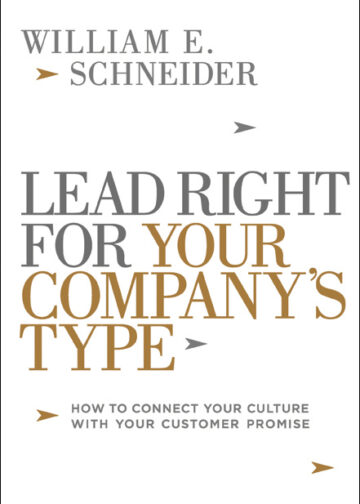
William E. Schneider
"Lead Right For Your Company's Type: How to Connect Your Culture With Your Customer Promise" shows how every organization falls ...
July 26, 2017
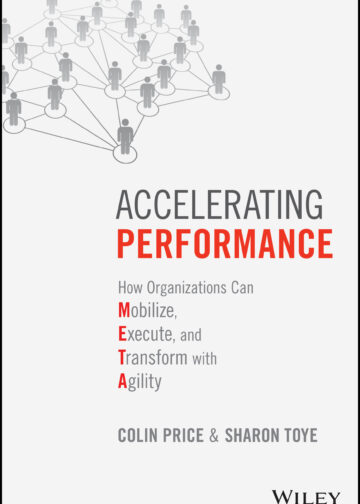
Colin Price
Accelerating Performance is not just another “warm and fuzzy” change management book—it's a practical, comprehensive, data-driven action plan for picking ...
July 10, 2017

Jorma Ollila
In this compelling memoir, Nokia’s legendary CEO Jorma Ollila presents a riveting story of the company that created the global ...
June 28, 2017

Jo Hausman
How do you weather the challenges of owning your own business while navigating personal tragedy and raising a child? Step ...
June 27, 2017
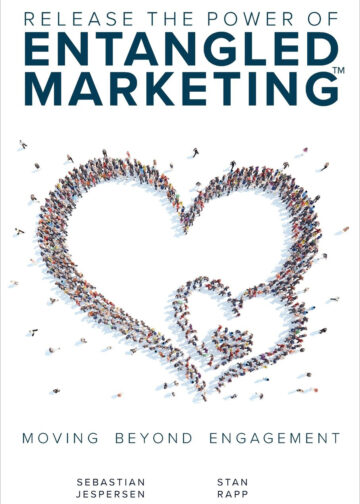
Sebastian Jespersen & Stan Rapp
A new business model for the digital age is the subject of an innovative book titled "Release the Power of ...
June 20, 2017
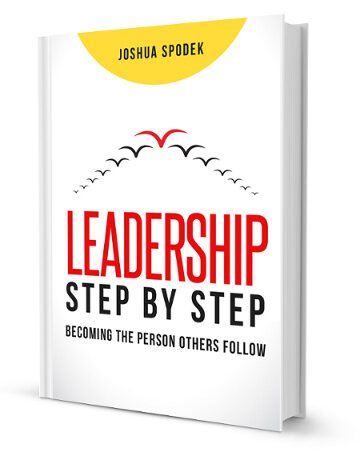
Joshua Spodek
If you want to attract and inspire people to get the job done with loyalty, dedication, quality, and to enjoy ...
June 8, 2017
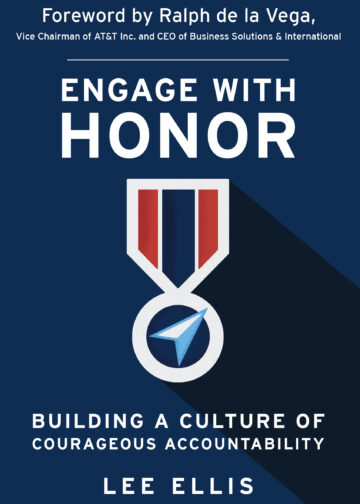
Lee Ellis
Link honor and accountability together and you have a formula for great leadership. A healthy mindset of accountability can inspire ...
June 8, 2017
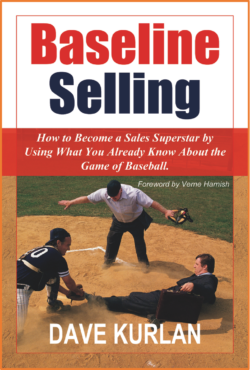
Dave Kurlan
Baseline Selling - How to Become a Sales Superstar by Using What You Already Know About the Game of Baseball, ...
April 13, 2017

Jess Todtfeld
Media Secrets: A Media Training Crash Course … Get More Publicity, Look & Feel Your Best AND Convert Interviews Into ...
April 4, 2017
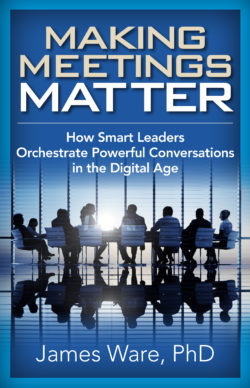
James P. Ware, PhD
Are you frustrated by unfocused, boring meetings? Is your organization stuck in an unproductive meeting trap? Do you and your ...
March 23, 2017
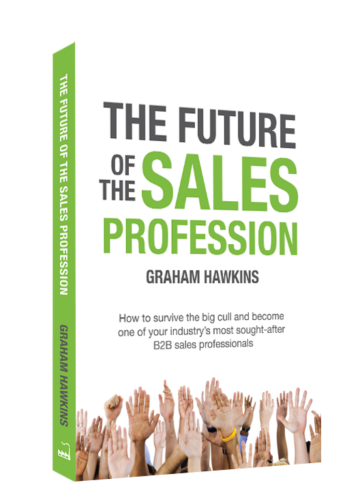
Graham Hawkins
B2B sales is harder than ever before. Product life-cycles are getting shorter, sales cycles are getting longer, there are more ...
February 22, 2017

Danielle DiMartino Booth
After correctly predicting the housing crash of 2008 and quitting her high-ranking Wall Street job, Danielle DiMartino Booth was surprised ...
February 22, 2017
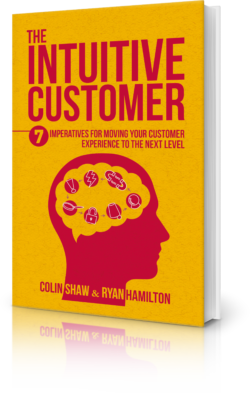
Colin Shaw
Many organizations are trying to improve their Customer experience as their Customer measures (NPS etc) plateau, but struggle to know ...
February 22, 2017
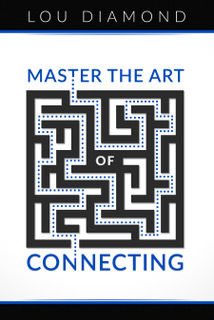
Lou Diamond
Making key connections in your life can launch your business, your sales, even your personal life and send them soaring ...
February 3, 2017
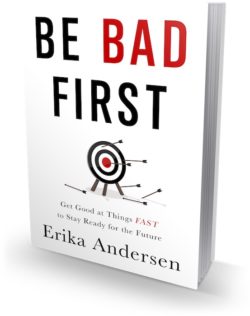
Erika Andersen
In Be Bad First, Erika Andersen proposes that success today depends on our ability to acquire new skills and knowledge ...
February 3, 2017
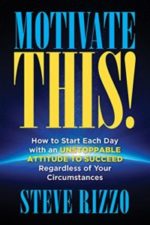
Steve Rizzo
MOTIVATE THIS! is filled with Rizzo’s unique brand of humor, insightful stories and mind-altering strategies that can elevate your overall degree of ...
January 6, 2017
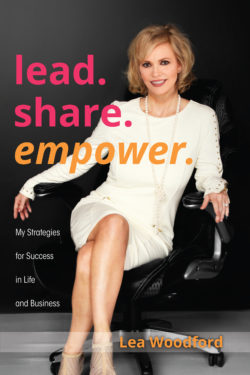
Lea Woodford
What is your inner critic telling you? How are your values and standards holding you back? What can you do ...
January 6, 2017
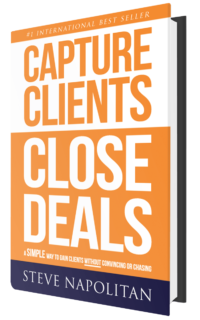
Steve Napolitan
Get the proven 3-step process to attract more leads, gain more clients and, most importantly, increase revenue. This book will ...
December 20, 2016
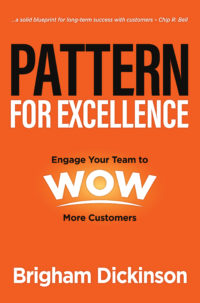
Brigham Dickinson
What brings us to WOW and keeps us delivering WOW Experiences is our commitment to that noble cause, mission, and ...
December 15, 2016
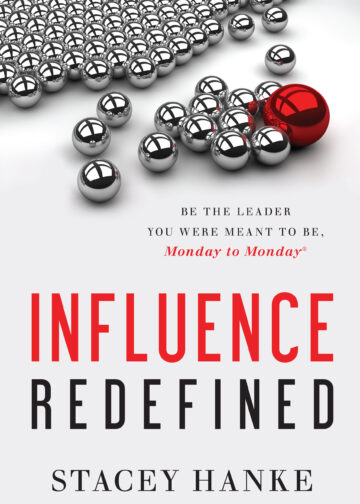
Stacey Hanke
Do you feel confident you're a leader with influence? You may be surprised to discover you're not as influential as ...
December 15, 2016

Keeke Kawaii
This book is geared toward Anyone who has been through Anything! From Abandonment to Love, to Abuse to Regaining Strength ...
December 6, 2016
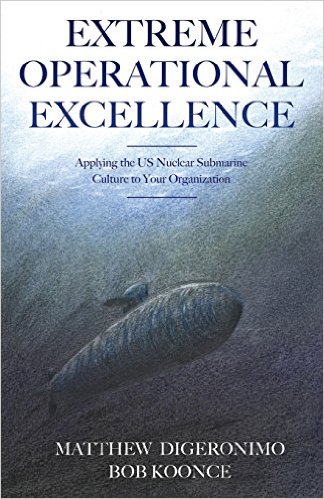
Matthew DiGeronimo
THE NAVY'S SILENT WARRIORS LIVE AND BREATHE OPERATIONAL EXCELLENCE. How does a group of 130 men with an average age ...
December 6, 2016
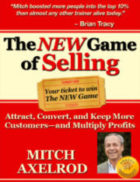
Mitch Axelrod
Sales master Mitch Axelrod has boiled down 75,000 hours of selling and business experience into one succinct playbook that shows ...
December 5, 2016
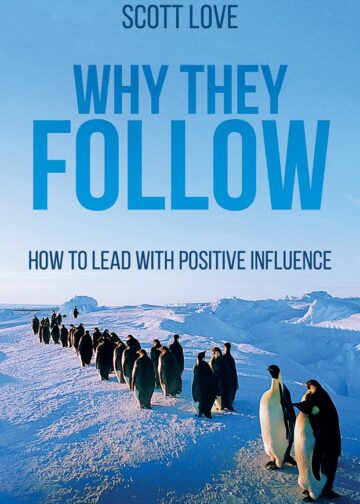
Scott Love
To achieve superior results as a leader, you must first understand why people follow. With this premise in mind, author ...
November 2, 2016
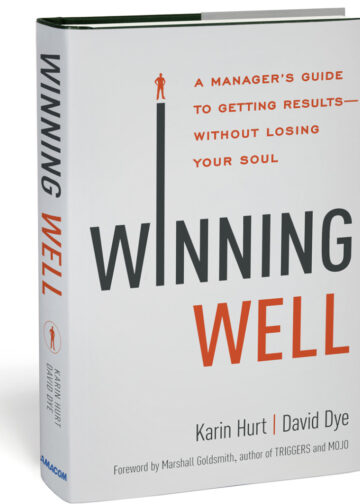
David Dye
As a manager, your life isn’t easy. You want your employees to trust and respect you, and you want to ...
October 24, 2016
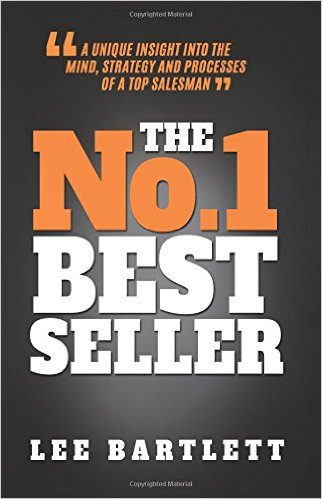
Lee Bartlett, The No.1 Best Seller
What does it take to be a Top Salesperson? Many books claim to have the answer, but few show you, ...
October 13, 2016

Julie Miles Lewis :: Moving Mountains
Are you ready to move mountains, discover the mountain in you …. or maybe even climb one? In this leadership ...
September 28, 2016
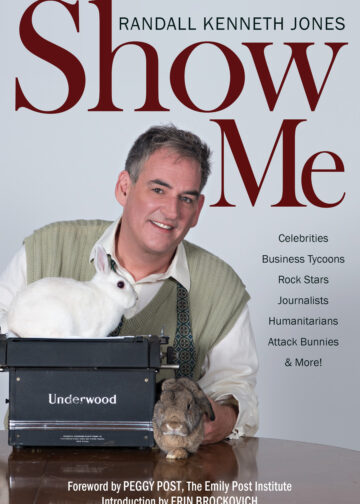
Randall Kenneth Jones
It’s a Story for the Ages… Boy does well. Boy teeters on midlife crisis. Boy moves to Florida, becomes a ...
September 28, 2016
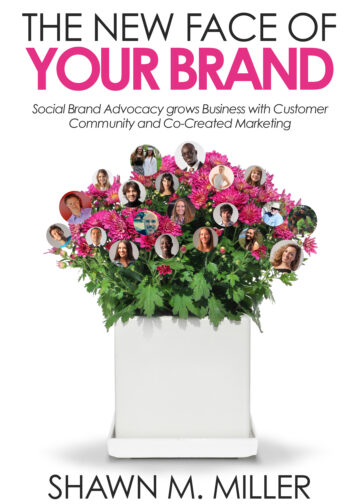
Shawn M. Miller
What others say about you is infinitely more powerful than anything you could say about yourself. This is true for ...
September 16, 2016

Heather F. Lutze, CSP
Marketing Espionage is essential to understand why your competitors enjoy web success and your own online efforts don't deliver. Leverage ...
August 25, 2016
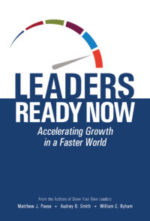
Matthew J. Paese, Ph.D.
Better leaders, ready now. It's what successful businesses need to stay viable and what most are unable to achieve. The ...
August 10, 2016
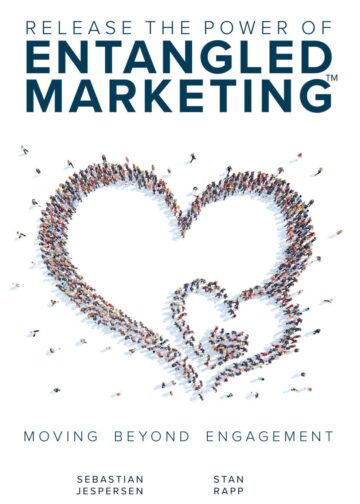
Stan Rapp & Sebastian Jespersen
The advance from mass marketing to individualized marketing is about to take a quantum leap to the next big thing ...
August 10, 2016
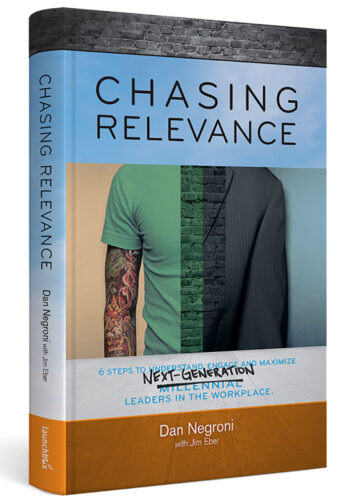
Dan Negroni
Today, there are more than 83 million millennials in the United States, representing 36 percent of our workforce. By 2025, ...
July 20, 2016
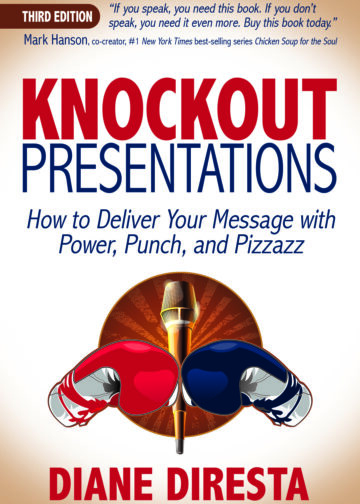
Diane DiResta
Life is a presentation. The ability to present one's ideas quickly and efficiently is a significant resource in today's business ...
July 20, 2016
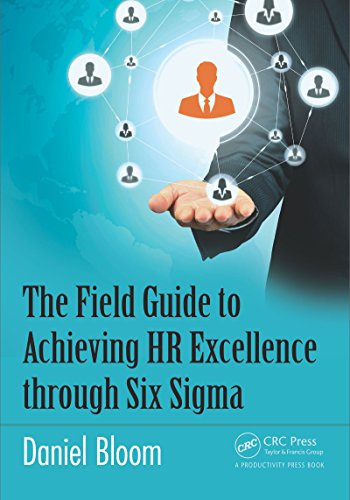
Daniel T. Bloom
In an environment where many organizations think of human capital assets as little more than expense items that impact the ...
June 21, 2016
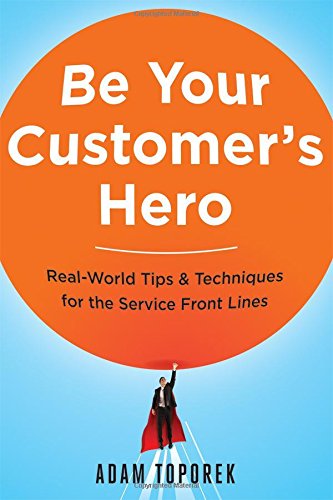
Adam Toporek
Where do most customer experiences fail? It’s not systems. It’s not processes. It’s human beings. For most organizations, it’s frontline ...
June 20, 2016
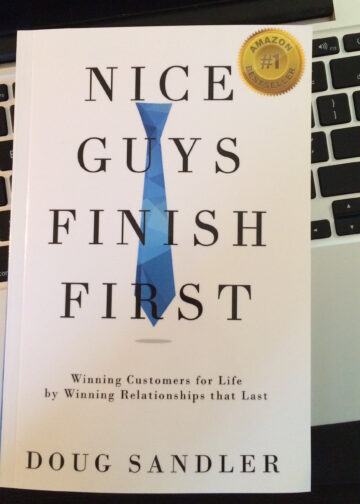
Doug Sandler
In order to win relationships in today's business climate, you must first understand the importance of having systems in place ...
June 20, 2016
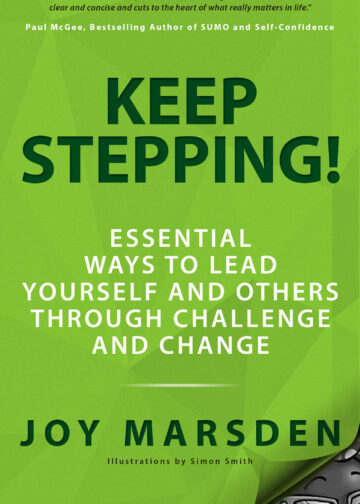
Joy Marsden
First, lead yourself. Leading yourself and others during turbulent times can be tricky, but great self-management and self-leadership doesn't come ...
June 20, 2016
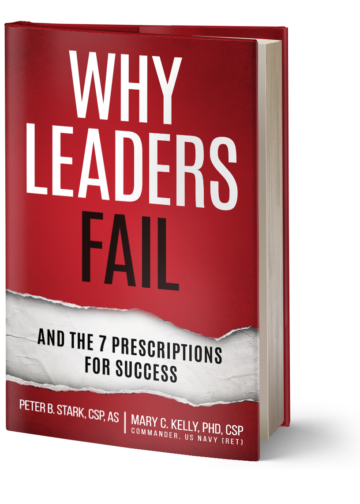
Peter B. Stark and Mary C. Kelly
Why do so many leaders fail, and what do the best do differently? Thousands of leadership books tell you how ...
June 20, 2016

Andrew Mellen
"The Most Organized Man in America," sought-after pro organizer and coach Andrew Mellen has created unique, lasting techniques for streamlined ...
June 20, 2016
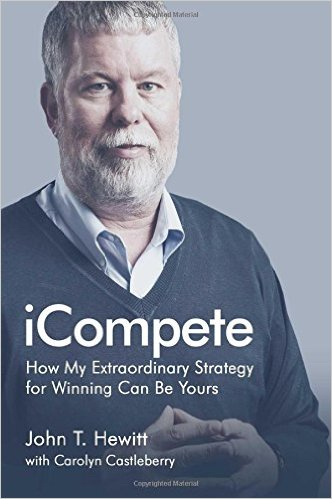
John T. Hewitt
So... what does it really take to WIN in your business? John Hewitt' s no-nonsense personal story will knock you ...
June 7, 2016
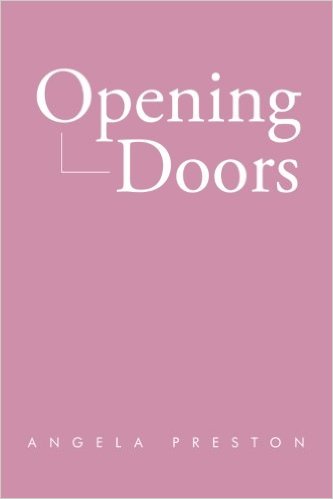
Angela Preston
In May 2014, I decided to quit the job that had run through my veins for so long and I ...
May 25, 2016
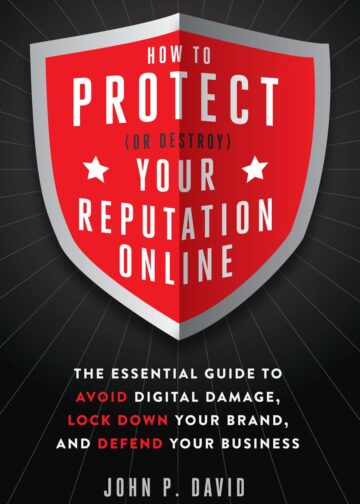
John David
The Essential Guide to Avoid Digital Damage, Lock Down Your Brand, and Defend Your Business With virtually nonexistent oversight, the ...
May 20, 2016
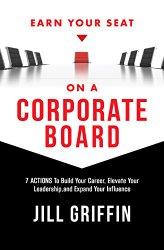
Jill Griffin
Corporate board seats are scarce and competition is fierce. That’s because board service bundles together a host of rewarding experiences: ...
May 16, 2016
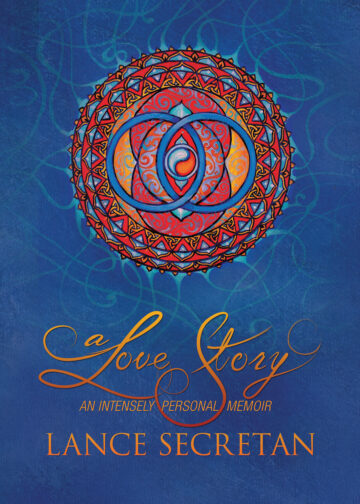
Lance Secretan
Literature and history are filled with epic, romantic love stories Antony and Cleopatra, Napoleon and Josephine, Lancelot and Guinevere, Romeo ...
May 11, 2016

Carey D. Lohrenz
Wall Street Journal Bestseller, and #1 Amazon Bestseller in Leadership An F-14 fighter pilot's top lessons for leading fearlessly--and bringing ...
April 29, 2016

Jim Koch
In 1984, it looked like an unwinnable David and Goliath struggle: one guy against the mammoth American beer industry. When ...
April 21, 2016
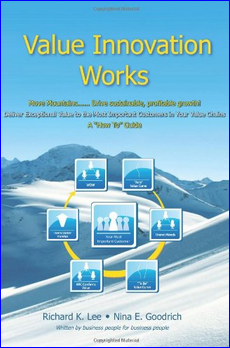
Richard K Lee
This is a “How To Do It” book written by practitioners who have sat in the reader’s chair. Our Goal: ...
April 20, 2016
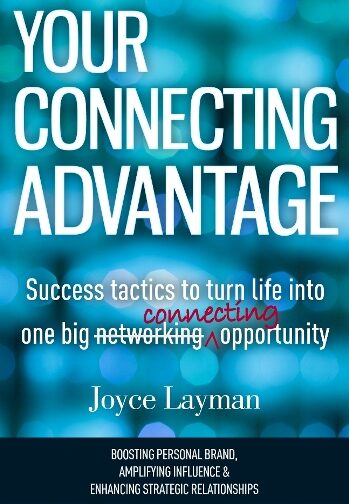
Joyce Layman
We’re stuck in an outdated maze of networking. The stacks of collected, untouched business cards threaten to tumble off your ...
April 12, 2016
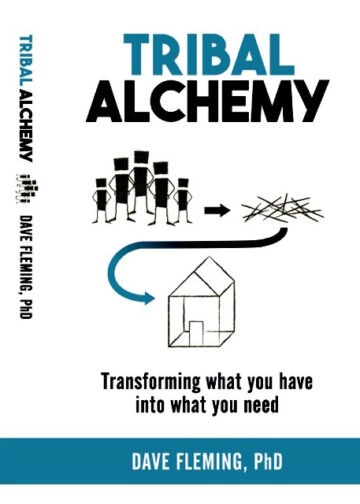
Dave Fleming
Recycle, up-cycle, reconstruct, repurpose, and transform. Let’s face it. We love it when we see raw materials come together in ...
April 12, 2016

Greg Williams
With this latest book, Greg takes readers on a journey of enlightenment and unravels the vortex of uncertainty that some ...
March 28, 2016
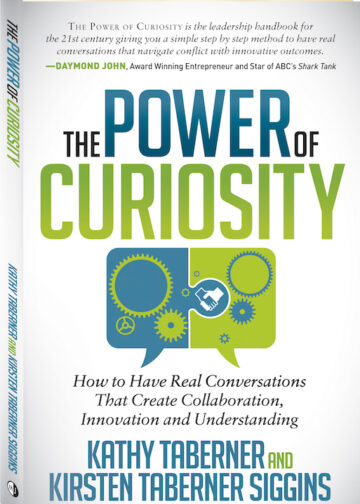
Kathy Taberner & Kirsten Taberner Siggins
As leaders or parents (or both), navigating difficult conversations is part of our job description. How do we keep calm ...
March 21, 2016
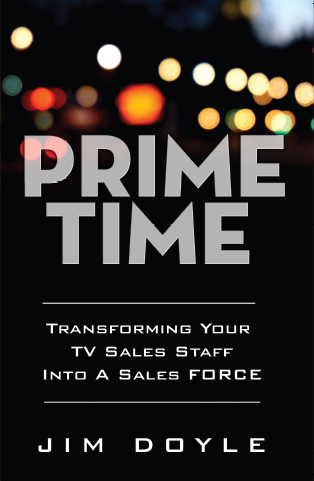
Jim Doyle
Prime Time is a book for TV Sales Leaders who want a road map to success in the new TV ...
March 16, 2016
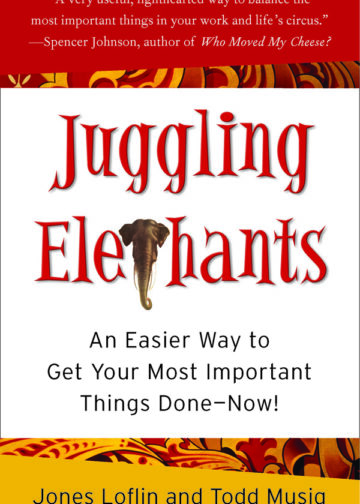
Jones Loflin
Juggling Elephants is a wonderfully lighthearted guide for everyone who feels like they're about to be squashed by all they ...
March 16, 2016
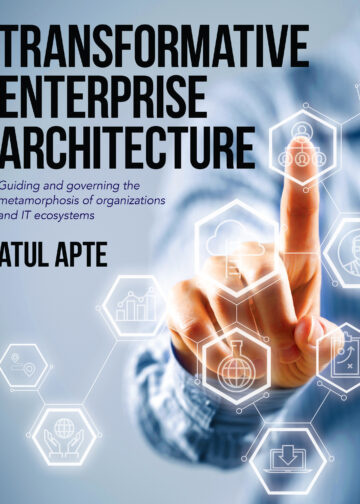
Atul Apte
The age of transformation is upon us. And for corporate IT departments, supporting and sustaining enterprise architecture requires a fundamentally ...
March 15, 2016
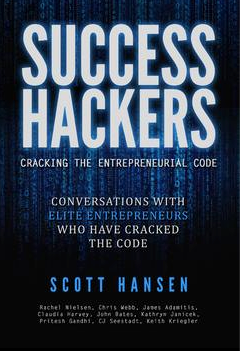
Scott Hansen
Have you ever said to yourself, "if I could only find out how these other entrepreneurs go to be so ...
March 15, 2016
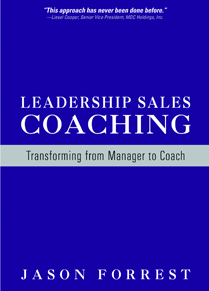
Jason Forrest
Get ready to learn the purpose of a sales coach and over 70 principles that will transform you from a ...
March 3, 2016
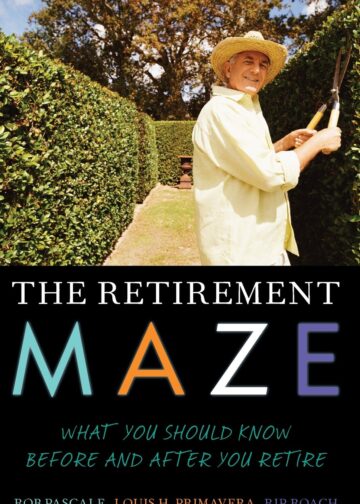
Rob Pascale
Millions of baby boomers are just beginning to retire, and in doing so many are likely to run into adjustment ...
March 3, 2016

Harry R. Rozakis
Dodging Bullets, Shooting Back addresses the complex dynamics in today's business world with the clarity of someone who has lived ...
March 3, 2016

Connie Pheiff
Marketing Masters provides creative strategies combining the old school tricks of marketing with today's digital tactics to connect with the ...
March 2, 2016
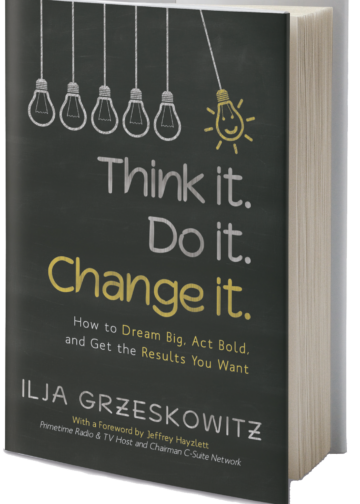
Ilja Grzeskowitz
We live in tough times, and it seems many are unhappy with their circumstances in society, at work, or at ...
February 29, 2016

Chuck Gumbert
General George S. Patton was legendary for his battle planning and strategy as well as his straightforward, no nonsense approach ...
February 25, 2016
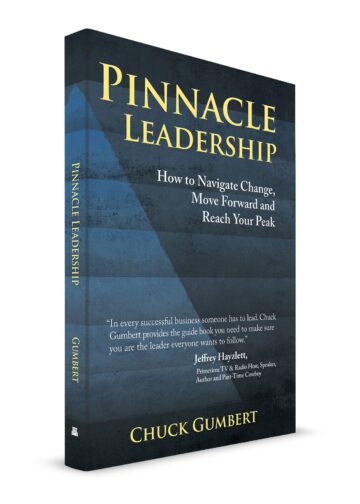
Chuck Gumbert
In Chuck Gumbert's second book, Pinnacle Leadership: How to Navigate Change, Move Forward and Reach Your Peak, he breaks down ...
February 25, 2016
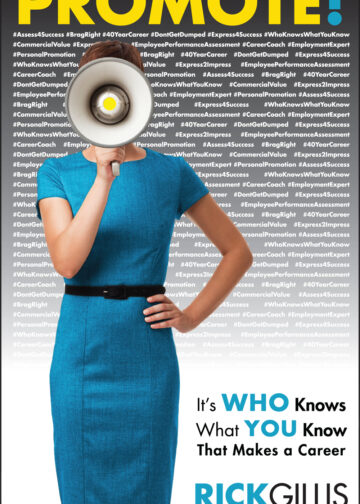
Rick Gillis
As a kid, you were likely taught that modesty is the best policy. Better to let others discover your greatness ...
February 25, 2016
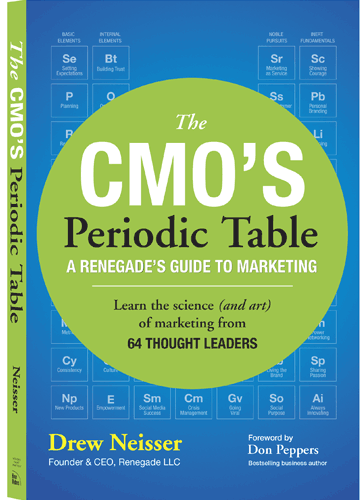
Drew Neisser
Imagine how much you would learn if you could talk to 64 of the brightest minds in marketing. Now imagine ...
February 18, 2016
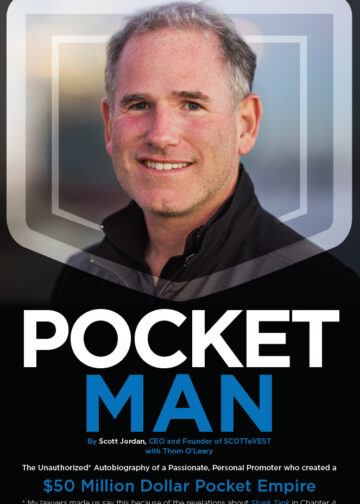
Scott Jordan
Imagine Bill Gates and Giorgio Armani started a business, then hired PT Barnum to promote it, and Larry David to ...
February 18, 2016
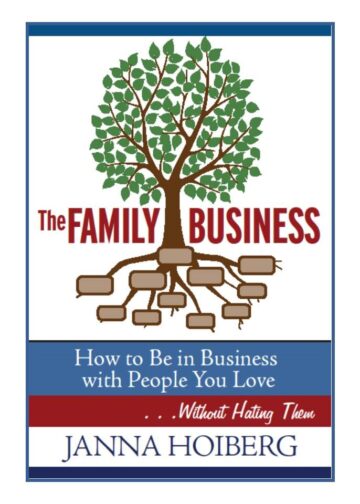
Janna Hoiberg
Are you a member of a family in business together or, do you know someone in a family business? Then ...
February 18, 2016
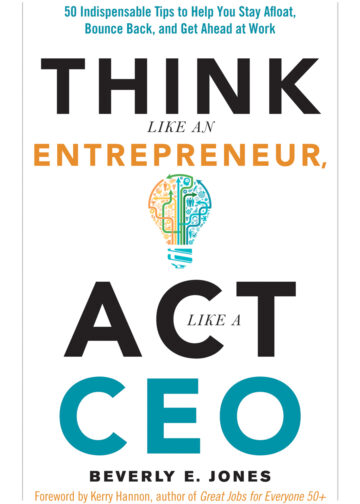
Beverly E. Jones
For a thriving, durable career in today’s rapidly shifting world, you need to be adaptable and resilient. Being adaptable means ...
February 17, 2016

Sydney N. Fulkerson
The Coffee Run: And Other Internship Need-to-Knows is the what-to-do and how-to-do-it guide on internships for students. Based on real ...
February 17, 2016
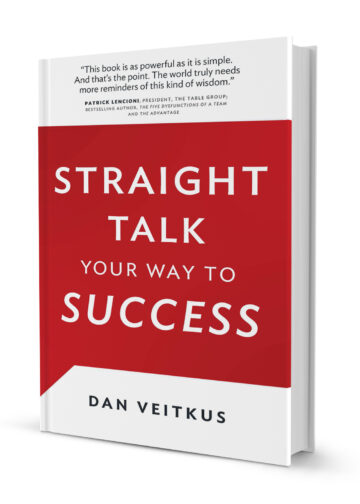
Dan Veitkus
Are you tired of “Smart Talk” that leads nowhere? Can you tolerate one more expert spouting from a stage or ...
February 10, 2016
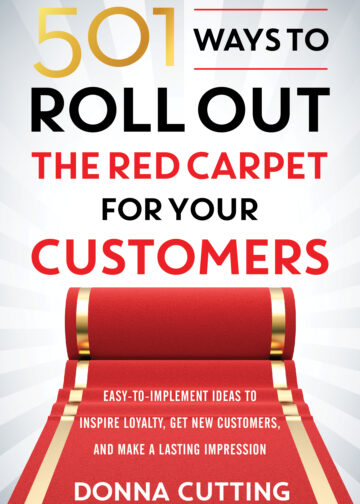
Donna Cutting
It's no secret that companies that deliver one-of-a-kind experiences for their customers create raving fans that return, refer, and clamor ...
February 10, 2016
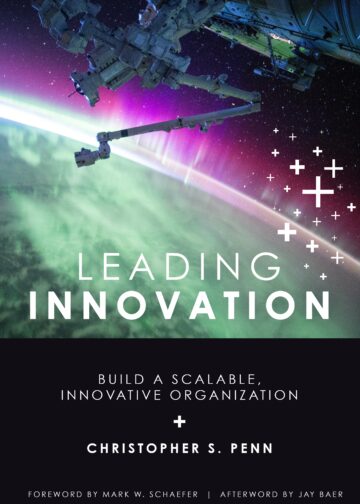
Christopher S. Penn
Innovation. One of the most used words in business – yet one of the least understood. Without it, companies stagnate ...
February 10, 2016

Rory Vaden
Rory Vaden (Take the Stairs) brings his high-energy approach and can-do spirit to the most nagging problem in our professional ...
February 10, 2016
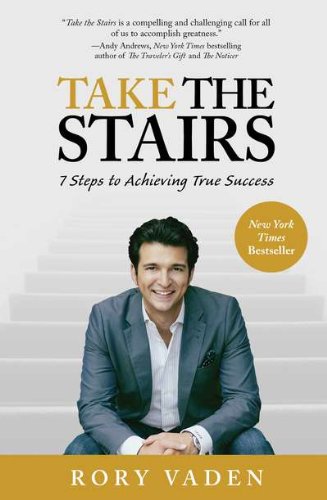
Rory Vaden
The New York Times bestseller that will help you get off the “escalator” and tackle the work that leads to ...
February 10, 2016
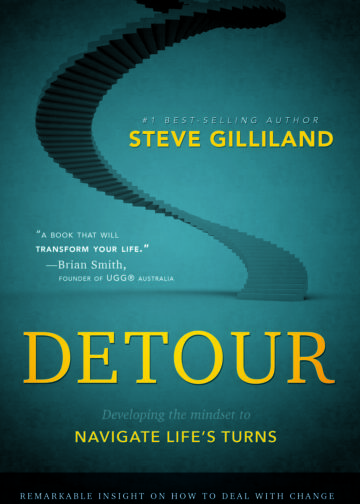
Steve Gilliland
DETOUR contains remarkable insight on how to deal with change and provides solutions to reduce stress, eliminate fear and increase ...
February 10, 2016

Steve Gilliland
HIDE YOUR GOAT is for every person who has ever said, "Why me?" It is for every person who feels ...
February 10, 2016

Steve Gilliland
In MAKING A DIFFERENCE, author Steve Gilliland brilliantly lays out three manageable means that make it possible for every person ...
February 10, 2016

Steve Gilliland
In ENJOY THE RIDE, author Steve Gilliland shares from his heart HOW TO EXPERIENCE THE TRUE JOY OF LIFE. A ...
February 10, 2016
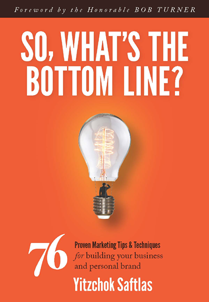
Yitzchok Saftlas
So, What’s the Bottom Line? covers a wide array of topics relating to the business world, from marketing initiatives to ...
February 10, 2016
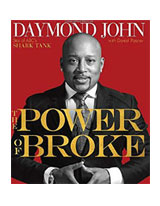
Daymond John
Daymond John has been practicing the power of broke ever since he started selling his home-sewn t-shirts on the streets ...
January 11, 2023
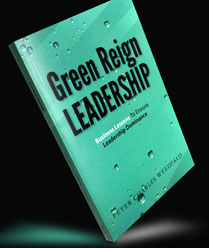
Peter Weedfald
Green Reign Leadership offers business executives as well as sales and marketing managers lessons, principals and rules to muscle up ...
February 8, 2016
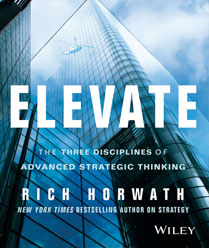
Rich Horwath
The #1 cause of business failure is bad strategy and only 23% of executives are strong at strategic thinking. While ...
January 27, 2016
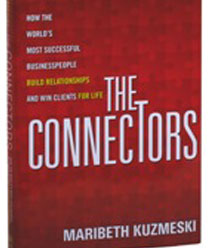
Maribeth Kuzmeski
What makes the world's most successful individuals so good at their jobs? What do they do that others don't? The ...
January 27, 2016
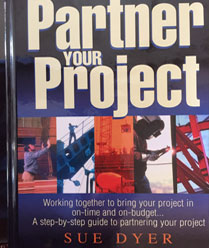
Sue Dyer
Partner Your Project is a step-by-step guide on how to develop working relationships that result in successful projects that are ...
January 26, 2016
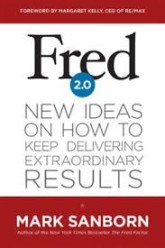
Mark Sanborn
With Fred 2.0, Mark not only revisits the original Fred to gain new insights, but also equips all of us ...
January 26, 2016
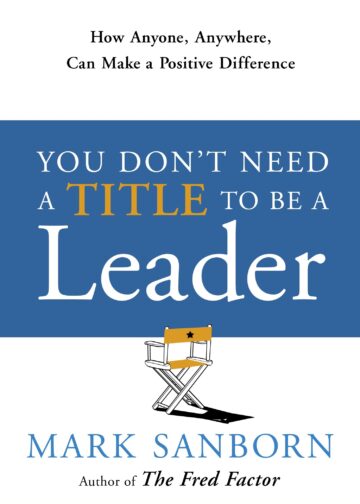
Mark Sanborn
In You Don’t Need a Title to Be a Leader, Mark Sanborn, the author of the national bestseller The Fred ...
January 26, 2016
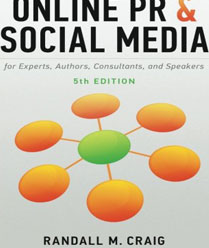
Randall Craig
Develop your reputation, get found, and attract a following You probably have a web site, blog, a LinkedIn profile and ...
January 26, 2016
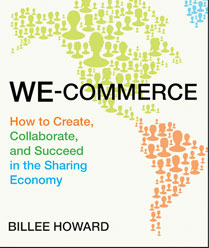
Billee Howard
Today, the most successful businesses and entrepreneurs thrive through connectivity, socialization, and sharing. It is an age of WE-Commerce, an ...
January 26, 2016
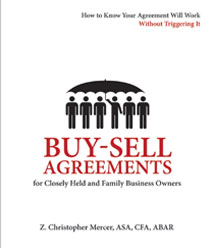
Z. Christopher Mercer
Buy-sell agreements are among the most common yet least understood business agreements and many are destined to fail to operate ...
January 26, 2016
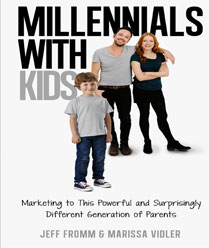
Jeff Fromm
While everyone was bemoaning their alleged laziness and self-absorption, the Millennial generation quietly grew up. Pragmatic, diverse, and digitally native, ...
January 26, 2016
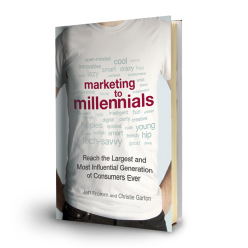
Jeff Fromm
The numbers cannot be ignored: eighty million Millennials wielding $200 billion in buying power are entering their peak earning and ...
January 26, 2016
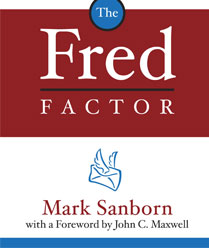
Mark Sanborn
In The Fred Factor, bestselling author Mark Sanborn relates the four principles of injecting passion into our work and life ...
January 26, 2016
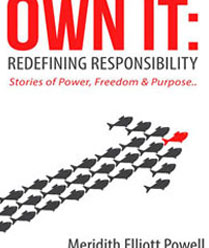
Meridith Elliot Powell
Own It: Redefining Responsibility provides new and innovative solutions to one of today’s most pressing challenges – employee engagement. Top ...
January 26, 2016
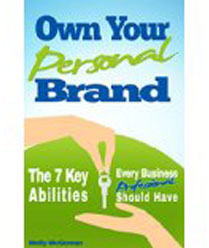
Molly McGowan
You are probably closer to understanding personal branding than you realize. A lot closer. In fact, chances are that with ...
January 19, 2016
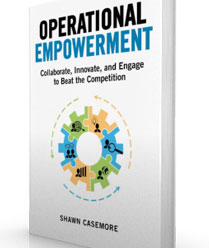
Shawn Casemore
This practical guide from an experienced leader in business fuses traditional operational tactics with the popular growing field of employee ...
January 12, 2016
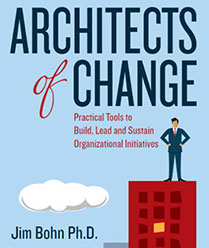
Dr. Jim Bohn
This book cuts through Change Management theory and focuses on the actions executives must take to achieve the ROI of ...
January 5, 2016
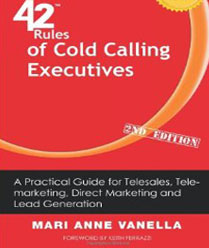
Mari Anne Vanella
42 Rules of Cold Calling Executives (2nd Edition) is an easy to read book that gives concise, easy to implement ...
December 30, 2015

Lisa Ryan
One of the downsides of life is that we rarely have to deal with an overabundance of gratitude. Most of ...
December 21, 2015

Gianni Kovacevic
How One House Call Can Change Your Life A weekend service call changes the life of Doc Anderson forever. Johnny, ...
December 1, 2015

Jeffrey A. Barnes
Why did Walt Disney build Disneyland? Because Walt Disney wanted one! Can success really be that simple? It can be ...
November 19, 2015

Evan Hackel
Companies and leaders that have worked with Evan Hackel to put the philosophy of Ingagment into practice report the following ...
November 17, 2015

Bob Caporale
Creative Strategy Generation is a step-by-step guide to creating truly original and successful business strategies by tapping into one's own ...
November 16, 2015

Brian Solis
X: The Experience When Business Meets Design Welcome to a new era of business in which your brand is defined ...
November 13, 2015

Joe Sweeney
Through his book, Moving the Needle: Get Clear, Get Free, and Get Going in Your Career, Business, and Life, Joe ...
January 15, 2024

Jeffrey Hayzlett
Global business celebrity and prime-time Bloomberg Television host, Jeffrey W. Hayzlett empowers business leaders to tie their visions to actions, ...
October 12, 2015

Wally Hauck, PhD, CSP
A leader is a professional who is responsible for a standard of care of the organization and its stakeholders (employees, ...
October 9, 2015

Mitchell Rigie & Keith Harmeyer
"If the creators of brainstorming were alive today, they would be astounded at how far the concept has evolved. Rigie ...
August 13, 2015

Linda Kaplan Thaler
In Grit to Great, Linda Kaplan Thaler and Robin Koval tackle a topic that is close to their hearts, one ...
August 12, 2015

Doug Devitre
It’s not always possible for you or your team to meet with a client face to face. Screen to Screen ...
July 28, 2015

Stephen Garchow
To be successful, companies must effectively prioritize their near-term business goals with addressing longer-term strategic issues. Executives understand that strategic ...
July 24, 2015

Ron A. Carucci
It’s been known for decades that failure rates among transitioning executives are too high, leaving exorbitant costs, damaged organizations and ...
July 24, 2015

Sara Canaday
Learn the secrets of accelerating your journey toward success by better understanding yourself and how others perceive you. In You ...
July 24, 2015

Steve Broe
Based on interviews with 33 career changers who became leaders after a transition, LEADERS IN TRANSITION answers the question, "How ...
July 24, 2015

Richard Tyler
Everyone searches for success. While our ideas of success differ, a typical entrepreneur will define success in terms of accomplishing ...
July 24, 2015

Halelly Azulay
It has been estimated that 70 percent of employee development takes place through informal learning, rather than through formal learning ...
July 23, 2015

Kristen Brown
Get the bestselling book with hundreds of tips and ideas to help you create the low-stress, high-success life you envision ...
July 22, 2015

Rick Broniec, MEd.
If you're missing passion in your life and work, if your leadership seems blah and ineffective and if you've lost ...
July 22, 2015

Terry Sumerlin
Terry L. Sumerlin, amiable barber/philosopher and professional speaker, is a noticer who looks for meanings in all interactions. In this ...
July 22, 2015

Mike Moran
For years, Search Engine Marketing, Inc. has been the definitive practical guide to driving value from search. Now, Mike Moran ...
July 22, 2015

Sandy Jones-Kaminski
Everyone knows the feeling – you get to an event and, not knowing who to talk to or where to ...
July 22, 2015

Kevin Neff
Are you tired of the endless hype and nonsense being pitched to you by marketing sales people? Ever get frustrated ...
July 22, 2015

John Floyd
Have you heard the one about the comedian who was so deep in debt he was afraid to answer the ...
July 22, 2015

Nomi Bachar
GATES OF POWER: Actualize Your True Self is an inspirational, informative, and practical guide for all who are passionate about ...
July 22, 2015

Richard A Melancon, CPA
Take Your Company to the Top! Here's how: ** Align your values with the corporate mission, ** Transition from Manager ...
July 22, 2015

Ken Okel
Stop worrying about what to do next. You can achieve more in today’s pressure packed, ever changing business world. Stuck ...
July 22, 2015

Jasmine Sandler
How to Brand Yourself Online Like a CEO is a personal branding manual , available in ebook form on Amazon ...
July 22, 2015

Patti Hathaway, M.Ed, CSP
Nonstop change is now the workplace norm. According to a 2013 global survey, 82% of companies had undergone significant reorganizations ...
July 22, 2015

Marilyn Suttle
Every customer oriented business has its own Gladys; someone who demands more than most companies are able or willing to ...
July 22, 2015

Paul R. Williams
As the speed of business continues to increase, and as focus on an ever growing number of project data points ...
July 22, 2015

Liz Weber
Are you tired of working 50, 60, 70 or more hours a week? Do you come in early and stay ...
July 22, 2015

Allen Klein
You Can’t Ruin My Day contains 52 themes to help readers take back their power and not let other people ...
July 21, 2015

David Dye
Productive, energized, and innovative teams are critical to your success. In The Seven Things Your Team Needs to Hear You ...
July 21, 2015

David Rohlander
Inspirational and informative, The CEO Code shares real-life stories of success and failure from author David Rohlander's personal journey and ...
July 21, 2015

Chuck Reaves, CSP, CPAE, CSO
What every Chief Sales Officer needs to know about the advanced and changing world of sales. In this allegorical book, ...
July 21, 2015

Devin D. Thorpe
Devin Thorpe has collected over 150 essays on personal and family finance to help you learn how to be happier ...
July 21, 2015

Dale Partridge
WALL STREET JOURNAL BESTSELLER USA TODAY BESTSELLER Serial entrepreneur and business visionary Dale Partridge reveals seven core beliefs that create ...
July 21, 2015

Deb Calvert
Make every sales call count and be the ONE seller buyers want to talk to! With DISCOVER Questions™ , you ...
July 21, 2015

Dale Dixon
Mack is a man terrified of giving presentations. An unexpected mentor comes into his life and helps him realize a ...
July 21, 2015

Cindy Miller
Golf 101 for Executives is the perfect resource for anyone who needs to use the game of golf as a ...
July 21, 2015

Elizabeth Hagen
How many times have you dreamed of making something great happen in your life? In your work? In your relationships? ...
July 21, 2015

Ford Saeks
Superpower! How to Think, Act, and Perform with Less Effort and Better Results Download a FREE Book PreviewDo you want ...
July 21, 2015

Gina Abudi
While there are numerous project management books on the market and a number on business processes and initiatives, there has ...
July 21, 2015

C. Roy Hunter
Instead of just teaching you what to change, this book teaches you how to change...and to empower yourself by getting ...
July 21, 2015

Brad Szollose
Liquid Leadership presents a dynamic approach that will help readers avoid getting caught up in a workforce culture clash between ...
July 21, 2015

Gloria Petersen
Gloria Petersen’s "Seven Steps to Impressive Greetings and Confident Interactions" offers proven strategies to make your next interaction the first ...
June 24, 2015

Dawna Markova & Angie McArthur
A breakthrough book on the transformative power of collaborative thinking—essential reading for anyone who works as part of a team, ...
June 24, 2015

David Brooks
With the wisdom, humor, curiosity, and sharp insights that have brought millions of readers to his New York Times column and his ...
June 24, 2015

Gloria Petersen
Gloria Petersen’s "Seven Steps to Impressive Greetings and Confident Interactions" offers proven strategies to make your next interaction the first ...
June 24, 2015

Cathy Fyock
Your life's work is too important to simply begrudge and endure. A business parable for the ages, Hallelujah! will help ...
June 24, 2015

Danny Valenzuela
In his book, A Taste of Leadership™, Danny Valenzuela offers a taste of some fundamental practices of leadership and becoming ...
June 24, 2015

Daniel T. Bloom SPHR, Six Sigma Black Belt
Although world-class firms like GE and Motorola have relied on Six Sigma to build their performance cultures, these processes are ...
June 24, 2015

Richard J. Bryan
Frank was ex-special forces with a fine arts degree - an unusual mix! With his help, Richard Bryan turned around ...
June 24, 2015

Laura Leist
Eliminate the Chaos at Work increases your business productivity and peace of mind by showing you how to create streamlined ...
June 24, 2015

Michael Kerr
Attract and retain top talent, brand your business to stand out from the heard, energize employees, and turn customers into ...
June 24, 2015

Suzan St. Maur
HOW TO WRITE BRILLIANT BUSINESS BLOGS The no-bullsh*t guide to writing blogs that boost your brand, business and customer loyalty ...
June 24, 2015

Leo Willcocks
Stress often strikes at inconvenient times, when most stress management techniques would be embarrassingly obvious. Have you ever used yoga ...
June 24, 2015

Gillian Zoe Segal
In Getting There, thirty leaders in diverse fields share their secrets to navigating the rocky road to success. In an ...
June 24, 2015

Andrew Keyt
Myths & Mortals provides insights and strategies for successors of family businesses. Successors often find themselves in the shadow of ...
June 23, 2015

Bruce Weinstein
Employers look for two things when hiring or promoting people: knowledge and skill. They rarely, if ever, consider character. Yet ...
June 23, 2015

Betsy B Muller
Have you wondered if you have enough energy and clarity to get your to-do list completed with skill, quality and ...
June 23, 2015

Amy Florian
“No Longer Awkward” is the definitive guidebook for professionals who want long-term relationships with their clients. Inevitably, those clients face ...
June 23, 2015

Annette SImmons
Whoever Tells the Best Story Wins! Tell it to sell it! Help your customers make your story their story. Learn ...
June 23, 2015

Dianna Booher
What More Can I Say: Why Communication Fails and What to Do About It will provide nine counter-intuitive principles for ...
June 19, 2015

Jeanne Bliss
A Customer Experience Roadmap to Transform Your Business and Culture Chief Customer Officer 2.0 will give you a proven framework ...
June 19, 2015

Shelley Row
For a world of chronic over-thinkers, this book holds the key. In eight easy steps discover the essential role feelings ...
June 19, 2015

Ryan T. Sauers
Would You Buy from You? Many people cannot answer this question or struggle with it only to find that their ...
June 19, 2015

Shirley A. Weis
In this candid, authentic and inspirational book for women, Shirley Weis reveals her principles for winning the game in business. ...
June 19, 2015

Satish P. Subramanian
Organizations need to constantly innovate and improve products and services to maintain a strong competitive position in the market place. ...
June 19, 2015

Steven Kotler & Peter H. Diamandis
Bold: How to Go Big, Create Wealth and Impact the World Bold unfolds in three parts. Part One focuses on the ...
April 30, 2015

Spencer Rascoff & Stan Humphries
Enter Zillow, the nation's #1 real estate website and mobile app. Thanks to its treasure trove of proprietary data and ...
April 30, 2015

Randy Fox
Our world is starving for real leaders to truly become a success by being strong in their ethics and convictions ...
April 30, 2015

Mark Hunter
High-Profit Selling: Win The Sale Without Compromising on Price Too many sales professionals rely upon discounts to close sales, but ...
April 30, 2015

Troy Hazard
After years as a consultant to some of the world's biggest brands and a serial entrepreneur, Troy Hazard has learned ...
April 30, 2015

Dr. Rick Goodman, CSP
What do all championship athletes and teams have in common with the world's most successful people? They all have a ...
April 30, 2015

Monica Wofford
We all have at least one person we wish we could make disappear...without getting in trouble! It’s not magic. It’s ...
April 30, 2015

Mindy Gibbins-Klein
Thought leadership has become a popular phrase and idea, but many times what is called thought leadership is actually quite ...
April 30, 2015

Laszlo Bock
WORK RULES! shows how to strike a balance between creativity and structure, leading to success you can measure in quality ...
April 24, 2015

John Zaleski
Within a healthcare enterprise, patient vital signs and other automated measurements are communicated from connected medical devices to end-point systems, ...
January 10, 2023

John Sviokla & Mitch Cohen
There are about 800 self-made billionaires in the world today. What enables this elite group to create truly massive value, ...
April 24, 2015

John Kounios & Mark Beeman
In The Eureka Factor, John Kounios and Mark Beeman explain how insights arise and what the scientific research says about stimulating more ...
April 24, 2015

Jessica Jackley
In the tradition of Kabul Beauty School and Start Something That Matters comes an inspiring story of social entrepreneurship from the co-founder of Kiva, ...
April 24, 2015

Dan Veitkus
Straight Talk Your Way to Success Are you tired of “smart talk” that leads to no good outcome? Do you ...
April 24, 2015

Maria Ross
The popular guide used by entrepreneurs, start-ups, small businesses and non-profits everywhere to build an irresistible brand on any budget ...
April 24, 2015

Kathleen Burns Kingsbury
YOUR ONE-STOP HANDBOOK FOR CONNECTING WITH AFFLUENT FEMALE INVESTORS During the next several decades, women will inherit approximately $28.7 trillion ...
April 24, 2015

Lauran Star
Today women are entering the workforce and leadership field at an extensive rate; however, they are struggling to gain a ...
April 24, 2015

Linda J. Popky
Marketing today is out of control. With all the new marketing techniques accessible to the masses, it’s becoming harder and ...
April 24, 2015

Debra Fine
Nationally recognized communication expert Debra Fine reveals the techniques and strategies anyone can use to make small talk--in any situation. ...
April 24, 2015

Kristin Arnold
Boring to Bravo by Kristin Arnold shows experienced presenters how to transform boring monologues into scintillating dialogues by employing simple yet powerful ...
March 30, 2015

Michael Fertik
Your reputation defines how people see you and what they will do for you. It determines whether your bank will ...
March 30, 2015

Nicholas Carlson
When Yahoo hired star Google executive Mayer to be its CEO in 2012 employees rejoiced. They put posters on the ...
March 30, 2015

Thom Singer
Some Assembly Required: How to Make, Grow and Keep Your Business Relationships by Thom Singer is based on the premise that ...
March 30, 2015

Kevin Ashton
As a technology pioneer at MIT and as the leader of three successful start-ups, Kevin Ashton experienced firsthand the all-consuming ...
March 30, 2015

Kabir Sehgal
In Coined: The Rich Life of Money And How Its History Has Shaped Us, author Kabir Sehgal casts aside our workaday ...
March 30, 2015

Gary Patterson
Million Dollar Blind Spots by Gary Patterson will create clear understanding to uncover blind spots in your company-and will dramatically accelerate ...
March 30, 2015

David Avrin
Raise your profile and get the attention you deserve -- or your business, your brand, or yourself! Almost everyone who ...
March 27, 2015

Dave Delaney
Supercharge the way you build business relationships—online and off! Business success is all about connections, relationships, and networks! In New ...
March 27, 2015

Daniel Lubetzky
In Do the KIND Thing, author Daniel Lubetzky shares the revolutionary principles that have shaped KIND’s business model and led to ...
March 27, 2015

Bruce Turkel
Have you ever wondered why almost identical products sell for vastly different sums just because of the name or logo ...
March 27, 2015

Bob Dailey
Whether you manage a department of three employees, or an international organization with thousands of employees, one thing impacts your ...
March 27, 2015

Gisela Hausmann
In today’s world, we need more than determination to reach our goals; we need naked determination. Applying this powerful momentum ...
March 27, 2015

Milo Shapiro
You CAN master the skill of public speaking! Laugh your way through Milo’s clever, tip-loaded “Top 10 Lists”. Conquer any ...
March 27, 2015

Patty Chang Anker
SOME NERVE: Lessons Learned While Becoming Brave (Riverhead), a Books for a Better Life Award finalist which Oprah.com calls "Downright ...
March 20, 2015

Dave Kerpen
The NEW YORK TIMES and USA TODAY bestseller—updated with today’s hottest sites! A friend’s recommendation is more powerful than any ...
March 20, 2015

Rita Burgett-Martell
People don't resist change if they are prepared for change. Change Ready! How to Turn Change Resistance into Change Readiness, by ...
March 20, 2015

Chris Roebuck
Across the world millions of people aren’t inspired at work or given the opportunity to give their best and fulfill ...
March 11, 2015

Chris Westfall
With digital media, customers today have more ammunition than ever. That's why you've got to have a BulletProof Brand. With ...
March 10, 2015

Jeff Nischwitz
Unmask is a road map for navigating your own personal journey as a leader in your business, career, relationships and ...
March 8, 2015

Jeff Slutsky
For any business owner, franchise operator, or marketing executive who seeks to increase sales while lowering marketing costs, Jeff Slutsky ...
March 7, 2015

Joseph Sherren
Leadership is about creating a culture which will engage all employees in executing the Vision and Mission of the company. ...
March 6, 2015

Josh Linkner
Companies, communities, and individuals fall for many reasons, but one of the most common--and easily avoidable--is the failure to reinvent. ...
March 5, 2015

Karen Friedman
In today's high-tech world, there are more ways than ever before to communicate: email, text messaging, voicemails, blogs, tweets, video ...
March 4, 2015

Phil Weinzimer
Based on interviews with more than 150 CIOs, IT/business executives, and academic thought leaders, The Strategic CIO: Changing the Dynamics ...
March 3, 2015

Michelle Tillis Lederman
Michelle Tillis Lederman shows how networking can be as easy, enjoyable, and fulfilling as having a conversation with friends—and still ...
March 3, 2015

Ted Rubin
In today’s digital world it’s all too easy for us as brands and individuals to let our relationship-building muscles atrophy. ...
February 25, 2015

Shelly Alcorn & Willis Turner
Play predates the development of human culture and our brains are hard-wired to use play as a tool to accelerate ...
February 24, 2015

Alice Nagle & Luanne Tierney
In today's competitive, global, connected, and fast-paced business environment, how do young women get career savvy quickly? Two Silicon Valley ...
February 24, 2015

Dan Gregory & Kieran Flanagan
Selfish, Scared & Stupid outlines the three most common human traits: selfishness, fear and a need for simplicity. To effectively increase ...
February 24, 2015

Robbie Kellman Baxter
In today’s business world, it takes more than a website to stay competitive. The smartest, most successful companies are using ...
February 18, 2015

Wally Hauck
The aim of this book is to compel leaders to replace their typical performance appraisal methods with one more closely ...
February 18, 2015

Timothy Keiningham
Customer Loyalty Isn't Enough. Grow Your Share of Wallet! The Wallet Allocation Rule by Timothy Keiningham is a revolutionary, definitive guide for ...
February 18, 2015

Steven Rosen
52 Sales Management Tips is written for sales managers who struggle within a corporate environment that doesn't always support them ...
February 18, 2015

Stephen Sapato
Become The Go-To Person For Your Own Success by Stephen Sapato teaches small business owners and entrepreneurs how to realize tremendous ...
February 18, 2015

Ruth Ross
Coming Alive: The Journey To Reengage Your Life And Career by Ruth Ross is the prescription for anyone who has ever ...
February 18, 2015

R. Michael Anderson
Stressed? Overwhelmed? Burned Out? Learn transformational life skills in this exciting new modern business fable by acclaimed expert R. Michael ...
February 18, 2015

Paul Axtell
America has become a nation “stuck in a meeting.” Between corporate boardrooms, all hands meetings, and conference calls, few of ...
February 18, 2015

Neen James
Folding Time™ by Neen James is about being accountable for our time, engaging our attention and leveraging our energy. In ...
February 18, 2015

Nadine Vogel
"Dive In: Springboard into the Profitability, Productivity, and Potential of the Special Needs Workforce" by Nadine Vogel, enlightens readers regarding ...
February 18, 2015

Matt Heinz
The speed of innovation and change in B2B marketing has never been greater. And the need for clarity for a ...
February 18, 2015

William Hawfield
Game-Changing Advisory Boards offers a proven process for creating and maintaining sustainable value in your business. William Hawfield and John ...
February 18, 2015

Jeff Davidson
In an era that offers too many choices and too much information, people’s lives aren't getting simpler. In fact, just ...
February 18, 2015

Don Crawley
Now in its third edition, The Compassionate Geek by Don Crawley, was written by a tech person for tech people. There ...
February 18, 2015

David Giannetto
It's easy for today's leaders to fall into the trap of accepting trendy big-data, social media, and mobile technology initiatives ...
February 13, 2015

Mark Sephton
DISCOVER who you are. IMAGINE who you could be, and ACHIEVE all the potential within you. We are all only ...
February 7, 2015

David Long
Did you know that of every 100 employees hired, only 6 or 7 will ever be promoted to their first ...
February 6, 2015

Brian Basillico
If you are looking for a “How-To” social networking book, then this is not for you. This is a “Why-To” ...
February 6, 2015

Malcolm Gladwell
In this stunning new book, Malcolm Gladwell takes us on an intellectual journey through the world of "outliers"--the best and ...
February 6, 2015

Eric Schmidt
Google Executive Chairman and ex-CEO Eric Schmidt and former SVP of Products Jonathan Rosenberg came to Google over a decade ...
February 6, 2015

Dave Ramsey
If you will live like no one else, later you can live like no one else. Build up your money muscles with ...
February 6, 2015

Daniel Kahneman
In the international bestseller, Thinking, Fast and Slow, Daniel Kahneman, the renowned psychologist and winner of the Nobel Prize in Economics, takes us ...
February 6, 2015

Peter Shankman
Marketing and PR expert Peter Shankman has been working with the biggest companies in the world to create what he ...
January 29, 2015

Steven D. Levitt
Now, with Think Like a Freak, Steven D. Levitt and Stephen J. Dubner have written their most revolutionary book yet. With ...
January 28, 2015

Tony Robbins
Tony Robbins has coached and inspired more than 50 million people from over 100 countries. More than 4 million people ...
January 28, 2015

Walter Isaacson
Following his blockbuster biography of Steve Jobs, The Innovators is Walter Isaacson’s revealing story of the people who created the computer and ...
January 28, 2015

Tony Alessandra
Imagine... When you encounter difficult people - you know how to adapt to them. Where you meet challenging situations - ...
January 21, 2015

Andy Paul
Salespeople today face a fast-paced and increasingly crowded marketplace where meaningful product differentiation has all but disappeared. To compete success ...
December 1, 2014

Shelly Palmer
Why You Need Digital Wisdom The goal of this book is to give you a way to think strategically about ...
December 1, 2014

Dave Pottruck
Change is a constant, and leaders must do more than keep up--they must innovate and accelerate to succeed. Yet people ...
November 17, 2014

Tony Alessandra
In this entertaining and thought-provoking book, Tony Alessandra and Michael O'Connor argue that the "Golden Rule" is not always the ...
November 17, 2014

Jay Baer
The difference between helping and selling is just two letters. But those two letters are critically important to your company’s ...
November 3, 2014

Stephen Shapiro
In times of reduced funding, tighter deadlines, and fewer resources, a different approach to innovation is required. Unfortunately, concepts such ...
October 15, 2014

Shari Harley
We all know how it feels when our colleagues talk about us but not to us. It’s frustrating, and it ...
October 15, 2014

Erin Botsford
This is a guidebook packed with the best strategies to manage wealth in retirement, helping readers live the life they ...
October 15, 2014

David Newman
As a small-business owner or solopreneur, you wear many hats--perhaps the most important of which is marketer. But these days, ...
October 15, 2014

Cindy Goldsberry
There is no magic bullet for sales success…and a focus just on sales skills, lead gen tactics and sales process ...
October 15, 2014

Christine Comaford
Are You Scaring Your People into Mediocrity? All leaders want to outperform, outsell, and outinnovate the competition. And most teams ...
October 15, 2014

Salim Ismail
For hundreds of years, traditional business structures have put an organizational/legal boundary around an asset or a workforce and 'sold' ...
October 15, 2014

Marcia Reynolds
Leaders, managers, and coaches are charged with getting people to stretch their limits but are often unsuccessful. Top leadership coach ...
October 13, 2014

David Poulos
Everyone can “do” marketing . . . right? Marketing Doctor’s Survival Notes is a collection of essays, articles, blog posts ...
October 7, 2014

David Goldsmith
Have you ever thought about the fact that a craftsman has more and better tools to solve challenges on the ...
September 11, 2014

Joe Calloway
Winners in business aren't the ones who do the most things; the winners are the ones who do the most ...
September 8, 2014

Gina Carr and Terry Brock
Build Credibility, Get More Business, and Increase Profits with DIGITAL INFLUENCE Strong influence translates to more business--and nothing measures influence ...
September 8, 2014

Peter Shankman
The era of authoritarian cowboy CEOs like Jack Welch and Lee Iacocca is over. In an age of increasing transparency ...
September 8, 2014

Larry Winget
The straight-talking, New York Times bestselling author and Pitbull of Personal Development® is back with a pithy and prescriptive guide to success. ...
September 8, 2014

Mark Sanborn
Nine years ago, bestselling author and business consultant Mark Sanborn introduced the world to Fred, his postman, who delivered extraordinary ...
September 8, 2014

Randy Gage
Risky Is the New Safe is a different kind of book for a different kind of thinking—a thought-provoking manifesto for ...
September 8, 2014

Dana Manciagli
Cut the Crap, Get a Job! A New Job Search Process for a New Era is a revolutionary job search ...
September 8, 2014

David Horsager
In The Trust Edge, David Horsager reveals the foundation of genuine success—trust. Based on research but made practical for today’s ...
September 8, 2014

Joanne Black
Over the last decade, the rapid growth of social media, the emergence of the cloud, and a myriad of other ...
September 7, 2014

Dorie Clark
A step-by-step guide to reinventing you Are you where you want to be professionally? Whether you want to advance faster at ...
September 7, 2014

Christopher Brown
BECOME THE ENVY OF YOUR INDUSTRY WITH A CUSTOMER-CENTRIC CULTURE For the first time, this groundbreaking guide unlocks the secrets ...
September 7, 2014

Ted Rubin and Kathryn Rose
Return on Relationship™ (ROR), simply put, is the value that is accrued by a person or brand due to nurturing ...
September 6, 2014

Keith Ferrazzi
The bestselling business classic on the power of relationships, updated with in-depth advice for making connections in the digital world. ...
September 5, 2014

Judy Robinett
"Other people have the answers, deals, money, access, power, and influence you need to get what you want in this ...
August 29, 2014

Michael Parrish DuDell
From the ABC hit show "Shark Tank," Shark Tank Jump Start Your Business is filled with practical advice on how ...
August 29, 2014

Lisa Nirell
Today’s marketers face a perilous journey. As a result of new buyer dynamics, a boardroom-level obsession with marketing ROI, and ...
August 29, 2014

Mildred Talabi
Successful job hunting isn’t about luck, chance, or hope… Successful job hunting is a SCIENCE! In her ground-breaking book, The ...
August 29, 2014

Jim Collins
The Challenge: Built to Last, the defining management study of the nineties, showed how great companies triumph over time and ...
August 29, 2014

Sarah Caldicott
Thomas Edison's innovations contributed a whopping 3% of global GDP at the time of his death in 1931. Edison created ...
August 28, 2014

Daymond John
In Display of Power: How FUBU Changed a World of Fashion, Branding and Lifestyle, Daymond John (Founder and CEO) gets to the ...
January 11, 2023

Michael Houlihan and Bonnie Harvey
About The Barefoot Spirit It is hard to believe that such an iconic brand as Barefoot Wines began in a laundry ...
February 7, 2023

Sheryl Sandberg
Thirty years after women became 50 percent of the college graduates in the United States, men still hold the vast ...
August 25, 2014

Gary Vaynerchuk
New York Times bestselling author and social media expert Gary Vaynerchuk shares hard-won advice on how to connect with customers ...
August 25, 2014

Arianna Huffington
Arianna Huffington's personal wake-up call came in the form of a broken cheekbone and a nasty gash over her eye ...
August 25, 2014

Andy Frawley
A new data-driven approach to building customer relationships that fuel sustainable business growth Igniting Customer Connections explores how organizations of all ...
August 24, 2014

D. Keith Pigues
Do your customers make more money doing business with you? Knowing the answer can help you build measurable and valuable ...
August 23, 2014

Dirk Beveridge
We are living in disruptive times. In fact 76% of distributors surveyed believe we are living in an environment we ...
August 23, 2014

Steven Haines
Every day, thousands of new products and innovations are brought to market. Amid much fanfare, they struggle for shelf-space, mind-share, ...
August 22, 2014

Sylvie di Giusto
The Image of Leadership is the result of Sylvie di Giusto’s journey through two career paths: one in the field of human resources, ...
August 21, 2014

Dov Baron
Everything you’ve been told about leadership over the past thirty years no longer applies. The world has changed, and so ...
August 21, 2014

Jack Daly
HYPER SALES GROWTH — Jack Daly’s street-proven systems & processes. How to grow quickly & profitability. Dive into three critical areas: ...
August 20, 2014

Nathan Jamail
Creating a Coaching Culture to Build Winning Business Teams There are enormous differences between managing and coaching. Yet many companies ...
August 20, 2014

Josh Allan Dykstra
Why is it that so many of us toil away in jobs we hate, being treated like machines, doing things ...
August 20, 2014

Shep Hyken
You must deliver an amazing customer experience. Why? It is the competitive edge of new-era business–in any market and any ...
February 17, 2023

Scott McKain
Inspired by the Ideas and Insight of Taxi Terry…The Best Guide to Customer Service You Will Ever Read No matter ...
August 20, 2014

Peter Friedman
It's a terrific time to be a senior marketing leader-if you're prepared to leverage social effectively, and with time, utilize ...
August 19, 2014

Eugene Montanez
In his book, “Direct Mail is NOT Dead,” Eugene Montanez explains the importance of an effective call to action. Not only ...
August 19, 2014

Dina Simon
Make Unstoppable Simple Being unstoppable doesn’t mean you are never blocked or stuck on your way through life. It means ...
August 19, 2014

Adrian Ott
Exponential Influence®: Designing Digital Habits That Engage Distracted Customers Everyone knows that repetition forms habits. But did you know that repetition ...
August 19, 2014

Lee Frederiksen
What does it take to become a well-known expert in your field — someone other practitioners and the media seek ...
August 18, 2014

Robert Sher
Most midsized company leaders want their businesses to become mighty growth machines. Unfortunately, sometimes that growth slows, stops, or goes ...
August 17, 2014

Robert Cialdini
Influence: Science and Practice is an examination of the psychology of compliance (i.e. uncovering which factors cause a person to ...
August 17, 2014

Allison Graham
Want to supercharge your life? Getting connected & building authentic, profitable relationships is the answer and this book will teach ...
August 4, 2014

David Meltzer
There are seven interconnected principles that are applicable to our lives in general and just as relevant to more specific ...
August 4, 2014

Kevin Popović
Inside 20YEARS Communications, 20 leaders from different corners of the industry answer 20 questions on the evolution of communications, providing ...
August 4, 2014

John Brubaker
The Coach Approach: Success Strategies From The Locker Room To The Board Room is a book designed to help business ...
August 3, 2014

Mindy Hall
Too often executives allow their functional roles to define who they are as leaders. Instead, they should focus on the ...
August 3, 2014

Steven Overman
A generation of people around the world, from Boston to Bangkok, from New York to New Delhi, are making everyday ...
August 3, 2014

Tom Hopkins
This is a complete and practical guide which highlights the authors' new strategic approaches to selling when the buyer initially ...
August 3, 2014

Tom Spitale and Mary Abbazia
A practical guide for inexperienced marketers who have to develop a marketing strategy With technology being built into products of ...
August 1, 2014

Ted Wright
"Word of mouth marketing has always existed. We've just found a better and more efficient way to do it." -- Ted ...
August 1, 2014

Paul Jankowski
Speak American Too: Your Guide to Building Powerful Brands in the New Heartland is the definitive field manual to marketing ...
August 1, 2014

Kaihan Krippendorff
A Fast Company blogger and former McKinsey consultant profiles the next generation business strategists: the "Outthinkers" "Outthinkers" are entrepreneurs and ...
August 1, 2014

Joel Trammell
Joel Trammell’s new book, The CEO Tightrope: How to Master the Balancing Act of a Successful CEO, prepares seasoned and ...
August 1, 2014

Colleen Francis
Put an end to boom and bust sales cycles - once and for all! Do your company's sales results lurch ...
August 1, 2014

Albert Dunlap
Al Dunlap is an original: an outspoken, irascible executive with an incredible track record of injecting new life into tired ...
August 1, 2014

Dale Carnegie
For more than sixty years the rock-solid, time-tested advice in this book has carried thousands of now famous people up ...
July 31, 2014

David Sturt
Great work lives inside all of us. We've long been told our ability to succeed depends on our IQ, talent, ...
July 30, 2014

Dan Waldschmidt
Everything you think you know about success is wrong! Set Goals. Work Hard. Be Persistent. That's the typical success advice ...
July 30, 2014

Lee B. Salz
It's the revolving door on sales teams. Executives hire who they believe to be great salespeople, but the results never ...
July 30, 2014

Bob Urichuck
Sales is the lifeline to your bottom line. Without sales, there are no transactions, without transactions there is no revenue, ...
July 30, 2014
Suzanne Garber
SAFETY NETwork: A Tale of Ten Truths of Executive Networking is the story of Ralph Pibbs, former international executive, corporate ...
January 15, 2024
Dr. Thomas Rose
In diesem Buch geht es nicht nur um die Beschreibung einer Reise nach Indien, sondern es geht um Selbstbestimmung und ...
January 1, 1970
John Tschohl
This is the 10th Edition. Many call this book the bible of customer service. It focuses on the strategy on ...
January 1, 1970
Terry Rich
Dare to Dream, Dare to Act is an unconventional biography filled with real stories of creativity, innovation, risk and success. ...
January 1, 1970
Sehin Belew
My book is written for someone who wants to take the guess work out of what to eat, what to ...
January 1, 1970
Stephanie Dollschnieder, MA
Discover the secrets of effective customer communication (both internal and external)and watch your business grow. Contact, Care, COMMUNICATE contains insights ...
January 1, 1970
Mitchell Gooze & Ralph Mroz
The book shows companies how to leverage 20th century accomplishments into a 21st century competitive advantage. This book identifies where ...
January 1, 1970
David Grossman, ABC, APR, Fellow PRSA
Everything you do communicates something, whether you intend to or not. The most effective leaders choose to make the most ...
January 1, 1970
David Grossman, ABC, APR, Fellow PRSA
Everything you do and say communicates SOMETHING. So not communicating is not an option. In fact, the most effective leaders ...
January 1, 1970
Mike Hawkins
It has long been said that you can do anything you put your mind to. Yet in this groundbreaking book, ...
January 1, 1970
Tod Novak
In the past few decades, technology has significantly changed the way we work and live. The lightning-fast Internet has profoundly ...
January 1, 1970
John R. DiJulius III
In The Customer Service Revolution, DiJulius points out how numerous companies have made Customer service their biggest competitive advantage, are ...
January 1, 1970
Thomas B. Dowd III
During his inconsistent first 20 years in a business environment, the author learned lessons, both positive and negative, which transformed ...
January 1, 1970
Thomas B. Dowd III
A quick-hit, action-based reference guide with easily digestible chapters, this straightforward resource offers techniques that will teach you to play ...
January 1, 1970
Thomas B. Dowd III
Time management is a disciplined mindset to be able to live in the moment while working toward the future. It ...
January 1, 1970
Thomas B. Dowd III
On what was thought to be a typical work day, author Thomas Dowd received The Call Nobody Wants: “We’re downsizing.” ...
January 1, 1970
Greg Kozera
Most people have heard about the horrors on "fracking" in the media. In this easy to read book Auther, Speaker, ...
January 1, 1970
Vicki Sandler
The 3A's process explained in her book, enables business leaders to: -Align your employees’ natural talents with their work — ...
January 1, 1970
Joseph A. Michelli, Ph. D.
Joseph Michelli, author of the blockbuster The Starbucks Experience, does it again. In Leading the Starbucks Way, Joseph explains how ...
January 1, 1970
Carol Margolis
Do you feel unhealthy and stressed while traveling? Do your relationships suffer when you're away? Whether you travel every week ...
January 1, 1970
Rebecca Cooper
Many people with yo-yo dieting, binge eating, disordered eating, or food addictions could write books on nutrition and diets. We ...
January 1, 1970
Kim Curtis
Money questions plaque all of us at one time or another and penetrate every aspect of our lives--it doesn't matter ...
January 1, 1970

Lisa Ryan
One of the downsides of life is that we rarely have to deal with an overabundance of gratitude. Most of ...
January 15, 2024
Jim Cathcart
Getting all of the business instead of just a transaction involves gaining the trust and loyalty of the customer. Jim ...
January 1, 1970

L.A. Perkins
In Why Brand Protection Matters, Perkins unveils the critical steps necessary to shield your company’s most valuable assets and secure ...
October 21, 2024

Talbot Stark
Are you ready to take control of your career, life, and destiny by becoming an elite performer? This isn’t just ...
May 14, 2024

Larry Mandelberg
How Healthy Is Your Successful Business? Do constant disruptions and distractions make you feel like the business is managing you ...
April 30, 2024

Robert Pizzini
This book is born of my desire to share with others the simple yet effective practices which have given me ...
April 23, 2024

Lori Darley
Lori Darley has dedicated her life to embodying the fullest and most authentic expression of the human experience, both through ...
April 15, 2024

Brady Brim-DeForest
Small is the next big thing. When working for a large organization, weeks can pass before leadership makes important decisions that ...
April 9, 2024

Dr. Kourosh Maddahi
Award-winning cosmetic dentist and best-selling author, Dr. Kourosh Maddahi, reveals the results of over three decades of research into our ...
May 3, 2023

Shawn Casemore
You're in big trouble if you rely on having "feet on the street" to generate new sales. Selling in today's ...
January 11, 2023

Chris Heller
Your thoughts determine your results! Chris Heller, a nationally recognized leader in real estate, joins bestselling author Greg Reid to ...
January 11, 2023

Deanna Singh
Are you tired of hollow promises about diversity, equity, and inclusion in your organization? Do you want to take steps ...
January 11, 2023

K P Weaver
Book 2 of The Alchemy of Life Magic Collection Do you know how to know? In The Power of Knowing ...
April 22, 2022

Scott Miller
In the ever-evolving world of content creation, social media, videos, TV and radio shows, podcasts, vlogs and blogs, and search ...
April 6, 2022

Jeremy Boerger
Most IT directors and ITAM (Information Technology Asset Management) team leads learn on the job. ITAM is specialized enough that ...
March 25, 2022

Scott Conant
Peace, Love, and Pasta, Scott Conant’s most personal and accessible cookbook to date, delves into the evolution of how his ...
March 22, 2022

Bill Humbert
"You get what you expect in life. It's true scientifically and theologically. Bill Humbert now shares irresistibly compelling insights on ...
March 15, 2022

Deepak Chopra
An enlightening guide to success, fulfillment, wholeness, and plenty, offering practical advice on how to cultivate a sense of abundance in ...
March 8, 2022

Michaela Weaver
The Alcohol Con is the empowering and positive solution for problem drinking from Michaela Weaver, founder of The Alcohol Coach. ...
March 5, 2022

Terre Short
Speak your truth. Maximize the power of your voice and deepen your connection with loved ones, colleagues, customers, and those ...
March 5, 2022

Andy Miller
The first book written on hiring salespeople based upon 85 years of organizational psychology research, data analytics on 2.1 ...
February 18, 2022

Elijah J. Stacy
Elijah Stacy suffers from Duchenne muscular dystrophy, a fatal muscle wasting disease. At the age of sixteen, to avoid agonizing ...
February 1, 2022

Donna Cutting
"You provide a red-carpet treatment for your employees and they’ll reward you with their effort, time, and loyalty."- Jeffrey ...
February 1, 2022

Chris Westfall
You know the drill: the business of life can be tough. Deadlines. Relationships. Expectations. And conflict. Challenges are everywhere. ...
January 28, 2022

Maurits van Sambeek
Omnibenevolence Secrets Every Philanthropy Director Needs To Know! (and Why You Should Read This Book Even If You’re Not A ...
November 19, 2021

Peter Margaritis
Going OFF SCRIPT doesn’t come naturally to most organizational leaders. We want to control the narrative, ensure ideal outcomes, script ...
November 19, 2021

Steve Lishansky
The journey of leadership is one of the most significant endeavors of humanity. Leadership is important for us to ...
November 2, 2021

Tom Fox
The “Nuts and Bolts” for Creating a Comprehensive Compliance Plan The first chapter of this unique work lays out a ...
September 27, 2021

David Black
This is what it is like to suffer due to doctor mistakes and their refusal to admit the mistakes. It ...
September 21, 2021

Barry Jessurun
The Drunkard's Path is self-help and career guide based on four decades of working in the hospitality industry. It offers ...
September 2, 2021

Carol J. Kaemmerer
Many first impressions are made on LinkedIn, so every business professional must convey his or her personal brand effectively on ...
June 3, 2021

Captain Emil Dobrovolschi & Octavian Pantiș
"This is your captain speaking." Become a better pilot for your projects, for your people, and even in life outside ...
June 1, 2021

Jon Petz
Life is about moments . . . The Simple Moments that can be the most significant. A chance meeting. An ...
May 25, 2021

Ron Karr
Everyone knows what qualities define a good leader, but how many of us know what steps to take to become ...
May 12, 2021

Dee Bowden
The Sale is not Complete until the Money is in the Bank...but you must collect it first. Collections are uncomfortable ...
May 11, 2021

Shawn Nason
One of the Most Important and Surprising Business Books of the Year And it might just also change your life! ...
May 7, 2021

Mitzi Perdue
As the organizer of the Global Anti-Trafficking Auction, Mitzi Perdue often gives talks on human trafficking. After these talks, people ...
April 27, 2021

Jon Petz
In Person and Hybrid Meetings, the cornerstones of collaboration, inspiration, and progress have suffered excruciating humiliation at the hands of ...
April 5, 2021

Dave Ferguson
Employees rarely go to work to follow anyone for more than money. They certainly aren’t there to follow the vision ...
March 22, 2021

Randy Gage
You can't have lasting, meaningful happiness unless you're willing to continually reinvent yourself. That reinvention must always start with challenging ...
March 16, 2021

Gregg Greenberg
F*cking Argentina and 10 More Tales of Exasperation is an intelligent and witty series of short stories that feel like ...
March 9, 2021

Guy Snodgrass
Learn how to be a leader in your own life and career with expert advice from one of the Navy's ...
March 5, 2021

John Lee Dumas
Say hello to YOUR version of uncommon success with a revolutionary 17-step roadmap to guide your journey to financial, location, ...
March 2, 2021

Dr. Shellie Hipsky
Dr. Shellie’s Ball Gowns to Yoga Pants helps you start building your authentic brand and successful company! Dr. Shellie Hipsky’s ...
March 2, 2021

Ben McCarty
Cyberjutsu is a revolutionary approach to information security based on authentic, formerly classified Ninja scrolls. It synthesizes today's infosec field ...
March 2, 2021
Leo Bottary
Peer-no-va-tion (pir-n-v-shn) combines the words peer (people like me) and innovation (creativity realized). It's teamwork of the highest order. Leo ...
January 15, 2024

Kevin Harrington
Kevin Harrington, one of the original "sharks" of the TV hit Shark Tank, and serial entrepreneur Mark Timm take you ...
February 17, 2021

Jeff Brandeis
No matter what you sell, this fully-illustrated, easy-to-read handbook breaks through the clutter of other sales “techniques” to help you ...
February 9, 2021

C. Lee Smith
In sales, there's a lot of talk about qualifying the buyer. What's the lead scoring say? Are they a marketing-qualified ...
February 2, 2021

Dawn S. Kirk
People Are the Heartbeat of Business! The heart is the life force within each of us. It's the organ that ...
January 26, 2021

Kelly Fuhlman
Have you ever wished a superhero would come down and rescue you in those chaotic life moments of life? The ...
January 19, 2021

Stedman Graham
Become a passionate, purposeful, and meaningful leader through identifying who you are, your strengths, and your skills. New York Times ...
January 12, 2021

Mark Victor and Crystal Dwyer Hansen
Your dreams become your destiny when you learn the secret art of asking! Most people have beautiful dreams deep inside—the ...
January 5, 2021

Bill Humbert
Employee 5.0: Secrets of a Successful Job Search In The New World Order is Bill’s second book. Over 40 years ...
December 22, 2020

Shellye Archambeau
Full of empowering wisdom from one of Silicon Valley's first female African American CEOs, this inspiring leadership book offers a ...
December 15, 2020

Troy Korsgaden
In the business world, an inflection point happens at a critical moment when the situation calls for new thinking and ...
December 11, 2020

Rob Hartnett
As a companion to the game changing book It’s All Possible – how to lead an epic life by Rob ...
December 8, 2020

Mark Victor Hansen
THE BEST BOOK OF ALL TIME HASN’T YET BEEN WRITTEN, SO YOU HAVE TO WRITE IT! Mark Victor Hansen, co-creator ...
November 30, 2020

Jeff Brandeis
There are many books available to teach you techniques for closing a sale (meaning bringing a new client on board ...
November 30, 2020

Christoph Trappe
Listed as a No. 1 new public relations book in early 2020 with copies sold in Africa, Asia, Europe, North ...
November 11, 2020

David A. Paterson
"I have had this desire my whole life to prove people wrong, to show them I could do things they ...
October 2, 2020

Michael Haynes
Written for SMEs and start-ups, this book covers essential B2B topics including: Understanding what business buyers (i.e. decision-makers) really want ...
September 4, 2020

Rob Hartnett
THE ART OF THE POSSIBLE IN BUSINESS AND LIFE Positive Attitude And Willingness To Take Action Are Key In a ...
August 7, 2020

Darrell Amy
Would you like to grow revenue faster? Revenue Growth Engine presents a strategy and a model to accelerate growth. Whether ...
June 16, 2020

Jason S Bradshaw
Of all the things that can make or break your business, the most critical is experience. Great experiences inspire customers ...
June 2, 2020

Keith Ferrazzi
As the founder and CEO of Ferrazzi Greenlight, Keith Ferrazzi has spent over twenty years working with major global organizations ...
May 26, 2020

Lisa Levy
For companies who’ve embraced new opportunities only to lose money through inefficiency, mismanagement and misinformed decision-making, Lisa Levy knows there ...
May 13, 2020

Seth Earley
“We know how we want our companies to work. Enterprises ought to be customer-focused, responsive, and digital. They should deliver ...
April 29, 2020

Michael Houlihan & Bonnie Harvey
Full Cast Performance From the New York Times bestseller, The Barefoot Spirit, Comes a NEW style of Business Audiobook: Learn Valuable Lessons While ...
March 31, 2020

Marcus Anthony Ray
At age 21, following Canada's economic downturn, Marcus Ray entered the world of male exotic dancing. He was a stripper. ...
March 26, 2020

Entrepreneur Secrets to a Grow Get Give Life
Wouldn’t you love to have a road map to success in business and life? What if the steps that the ...
March 25, 2020

Belinda Goodrich
Leveraging neuropsychology, behavioral science, and Neuro-Linguistic Programming, Author Belinda Goodrich, a leading productivity expert, has effectively defined why many people ...
February 27, 2020

Brian Tait
New Mindset; New Results Accomplish Greater! The accomplishments of tomorrow should never be celebrated today. The time has come to ...
February 25, 2020

Bob Collins
Peter Drucker once said "Business Culture Eats Strategy for Breakfast". Collins asserts that a high-performance workforce, highly charged, thirsty for ...
February 4, 2020

John Lopez, PhD
Businesses operate in an increasingly diverse, global workforce, and in the coming years in the U.S., net international migration is ...
January 28, 2020

Veera B Budhi
The book is about the transformation journey every individual has to take if they want to improve their life for ...
November 18, 2019

Mallika Chopra
Featuring full-color illustrations, Just Feel is an engaging and easy-to-read guide that introduces kids to the building blocks of resilience ...
October 23, 2019

Deepak Chopra MD, FACP
In DC Comics' DC Universe, a metahuman is a human with superpowers. However, for bestselling author Deepak Chopra, to be metahuman isn’t science fiction and is certainly ...
October 9, 2019

Robin ML Johnson, DSL
Leadership loneliness is a phenomenon felt by many leaders both in the boardroom and on the front line, and while ...
May 20, 2019

Jill Griffin
What if you could gather the smartest people you know into one room and ask them anything? Who would be ...
May 13, 2019

Rachel Headley
Called "brutally honest, incredibly practical, and refreshingly hopeful," Headley and Manke shake traditional corporate culture to the core in this ...
May 6, 2019

Makarand Utpat
The world has quickly moved into the digital sphere. Disrupt or Die is the new mantra. Digital realm is engulfing ...
April 23, 2019

Tabitha Laser
The definition of insanity is doing the same thing over & over and expecting different results. We have fallen into ...
April 10, 2019

Larry Vaughn
Larry Vaughn owned and operated a successful print company – Ideal Printers - for 26 years and helped found two ...
April 10, 2019

Andrew Tarvin
If you want to increase team productivity, relieve stress, and be happier at work, you could hire a bunch of ...
April 3, 2019

Todd Wilms
Most startups fail, even the ones with great products. Even great products need a smart strategy to reach their market. ...
March 27, 2019

Betsy Atkins
Betsy Atkins is often asked “How can I get on a board?” So after 20+ years in the boardroom and ...
March 12, 2019

Galen Bingham
Does your leadership matter? Will you be remembered? Do you have IMPACT? IMPACT: A Leadership Fable is an inspirational tale ...
February 8, 2019

Dwight Holcomb
The goal of every marketer is more sales. But achieving this on a consistent basis is tougher than ever in ...
January 29, 2019

Nina Sunday
Practical insights on workplace know-how...proven tactics and hacks for better relationships, communication and effectiveness at work. Being average at your ...
January 29, 2019

Steve Rigby
A Joyous Journey to Sales Success In a world full of quick fixes and hyper-aggressive focus on systematized sales, S.M.I.L.E. ...
January 4, 2019

Eddie Turner
Leadership is one of the world's oldest professions. There are countless resources for one to learn about leadership and do ...
December 14, 2018

Jeffrey Hayzlett
There are leaders. Then there are HERO leaders—those who go beyond providing free coffee in the office or giving 10 ...
December 13, 2018

Byron Reese
“The Fourth Age not only discusses what the rise of A.I. will mean for us, it also forces readers to ...
November 27, 2018

Dr. Diane Hamilton
Cracking the Curiosity Code: The Key to Unlocking Human Potential: Curiosity is one of the most analyzed, discussed, and written ...
November 27, 2018

Anthony Iannarino
The first ever playbook for B2B salespeople on how to win clients and customers who are already being serviced by ...
October 30, 2018

Dr. Evans Baiya & Ron Price
Innovation is not just about technical and systematic processes. In The Innovator's Advantage, authors Evans Baiya and Ron Price reveal that ...
October 24, 2018

Mark LeBusque
Being Human challenges the notion that technical competence and a Robotic approach to Human Management still has a place in ...
October 24, 2018

Theresa Rose
Mindful Performance is an easy-to-digest how-to book that blends mindfulness and mental mastery techniques with proven high-performance business strategies you ...
October 23, 2018

Peter Loge
Soccer is 90 minutes of systems thinking in action. Soccer Thinking for Management Success is by a soccer fan and ...
October 2, 2018

Allison Shapira
Your voice matters, especially as a leader. Every day, you have an opportunity to use your voice to have a ...
September 10, 2018

Mark Hunter
“High-Profit Prospecting” digs deep into the specific techniques sales leaders use to keep their pipeline full of the RIGHT prospects. ...
September 10, 2018

Ron Price & Stacy Ennis
Emily is a career-driven thirtysomething with big ambitions and a young family. She is making an impact as a manager ...
September 10, 2018

Karyn Schoenbart
CAREER ADVICE FROM A GLOBAL CEO WHO JUST HAPPENS TO BE A MOM In Her New Book Mom.B.A., CEO Karyn ...
August 31, 2018

Daniel Burrus
Discover 25 proven strategies any size organization or individual can use to accelerate innovation and growth with the low risk ...
August 28, 2018

Chris Westfall
Complacency is the enemy of every leader. If you have a vision—for yourself, your team and your organization—you owe it ...
August 27, 2018

David Parish
The environmental policy landscape can be tough to navigate between politicians, advocacy groups and businesses having a different message. Alaskan ...
August 27, 2018

Leo Bottary
Most of us don’t seek advice or reach out to others for help very easily. In part, it’s because we’re ...
August 13, 2018

Ralph Ward
For the Board Seeker... This is the first practical guide written specifically to help board-ready leaders and executives gain the ...
August 13, 2018

Julie Cottineau
Julie Cottineau is the Author of the Best-selling book “TWIST: How Fresh Perspectives Build Breakthrough Brands” (Panoma Press, 2016). She ...
July 17, 2018

Mark Samuel
In business and life, there are often moments when one simply can't seem to find a way forward. Searching in ...
July 12, 2018

Mike Pierce
Learning to Lead is critical for success into today's world. No matter what our title is, pay level, industry or ...
May 28, 2018

Sheila Anderson
Sheila A. Anderson is a master at bringing forward the inner and outer expression and connecting it with the experience ...
May 14, 2018

David Avrin
The landscape is littered with the corpses of great products and strong companies that died because of crappy marketing. Why ...
May 8, 2018

Cathy Dolan-Schweitzer
Do your healthcare projects feel overwhelming and stressful at times? Do you have difficulty collaborating with healthcare system professionals? Do ...
April 30, 2018

Nancy Lynn
To be young, polished and professional is not simply wearing the right clothes and saying the right words. Polished encompasses ...
April 30, 2018

Kathleen Thomas
Financial Advisor Kathleen Thomas has seen the difficulties and setbacks that occur when women don’t own their financial lives. It’s ...
April 11, 2018

Neen James
Drive profitability, productivity, and accountability To create extraordinary lives, we must learn to “unplug” from the constant barrage of disruptions ...
April 6, 2018

Mark Eaton
Why do some organizations regularly outperform their competition? What’s the key to creating a united team that’s an unstoppable force ...
April 3, 2018

James Kelley
In an era of unauthentic leaders, the stakes could not be higher for embracing a better version of yourself that ...
March 22, 2018

Tanya Hall
Are you considering writing a book to boost your visibility and credibility? Or just trying to figure out how to ...
March 15, 2018

Dale J. Dwyer, Ph.D.
Everybody knows someone who is over-controlling or who needs a great deal of approval. Or it may be that you ...
February 16, 2018

Beverly D. Flaxington
If you're an entrepreneur, if you own a business, or if you plan to start one-you're a salesperson, whether you ...
February 15, 2018

Gloria Petersen
Gloria Petersen’s “Success Strategies for Networking in Person and Online,” offers five paths to create your person-to-person and online networks ...
February 5, 2018

David J.P. Fisher
"If you could cross the late, great, sales coach Zig Ziglar – a master of face-to-face relationship selling and networking ...
January 22, 2018

Karima Mariama-Arthur
This book is an exceptional resource for leaders at every level across industries. An insightful guidebook comprised of 40 illuminating ...
January 15, 2018

David L. Brown
From the Bottom Up: The Ultimate Guide for Business Planning to Profitability is a step-by-step guide for writing a business ...
January 3, 2018

David Oualaalou
As the debate surrounding Iran’s nuclear agreement with the West becomes increasingly contentious, US allies in the deal: UK, Russia, ...
December 28, 2017

Jack Myers
In Jack Myers prescient book, TheFuture of Men: Men on Trial, he predicted the current wave of exposure of male ...
December 20, 2017

Andrew Bryant
Get greater control of your life and career with this easy to read, and yet profound handbook. Explore your Self-awareness, ...
December 18, 2017

Frumi Rachel Barr
Prevent the grinding sands of conflict from seizing the gears of business decision-making. A CEO’s Secret Weapon offers 10 results-oriented ...
December 13, 2017

Stephen Monaco
If you are looking for a book authored by someone who has been there as an employee, a successful entrepreneur ...
November 14, 2017

Andrew Horsfield
Work worth doing always has a hard part. In any results-driven activity, there are defining moments. That point in time ...
November 6, 2017

Evan Sanchez
Lack of sales results and performance gaps are typically addressed with more skills training, more product or service knowledge, and ...
November 6, 2017

Stu Heinecke
Sales and marketing teams are told to fill the funnel, increase revenues, and move the needle on market share—then left ...
November 6, 2017

Dr. Terri Levine
This book is a guide to doing business with heart and being authentic and transparent with employees, vendors, prospects, and ...
October 30, 2017

Deirdre Breakenridge
Answers for Modern Communicators, A Guide to Effective Business Communication, provides professionals with practical answers to important career and communication ...
October 26, 2017

Lois Creamer
This book is the definitive guide on the business of speaking. You'll find everything you need to know to jump ...
October 23, 2017

Christian Kromme
Imagine being able to spot the next big trend, or being able to predict the next big wave of change. ...
October 18, 2017

Brian Hazelgren
Healthy Habits of Highly Productive Employees is a breakthrough book of successful tips, stories, and systems to formulate the best ...
October 10, 2017

Doug Andrew
Entitlement Abolition, from New York Times bestselling author Douglas R. Andrew, underscores the focus on all three dimensions of abundance ...
September 25, 2017

Mareen Thomas Cherian
Managing Modern Brands: Cult Theory and Psychology is a succinct work that explores the emotional connect that brand managers crave ...
September 12, 2017

Joanne Sonenshine
On a career path that one could only call circuitous, Joanne Sonenshine learned that what fulfilled her the most was, ...
September 8, 2017

Robin Speculand
At a time of tremendous business disruption, leaders need to execute strategies more frequently and more effectively than before. Excellence ...
September 6, 2017

Joel G. Block
This is a special book with a special agenda that I reveal in just a moment. But before I do ...
August 29, 2017

Jamie Crosbie
At Last, a book for sales managers built on real world sales experience. This book offers a fresh, up to ...
August 25, 2017

Darren Taylor & Mark Schreiber
The emergence of digital technologies has democratized branding from the province of marketing professionals to any teenager with an Instagram ...
August 16, 2017

Kristiane Cates
K. Cates and her husband, Chad, were an ordinary couple who attended church, enjoyed barbeques with friends on the weekends, ...
August 14, 2017

Richard Marker
This collection of essays is both timely and timeless. They cut through the clutter of popular jargon and fads in ...
August 11, 2017

Phil M. Jones
Often the decision between a customer choosing you over someone like you is your ability to know exactly what to ...
August 8, 2017

Frans de Groot
This book is about the World's First Business Management Model that Guarantees achievement of goals: The BITSING methodology. This scientifically ...
August 4, 2017

Jill Griffin
My new book is about women who have beaten the odds. Early on, they heard the whispers....the inner-call to leadership. ...
August 4, 2017

Tony Chatman
Leadership is all about leading people. if you can't effectively lead people, you can't be considered an effective leader. The ...
August 4, 2017

Jim Donovan
Even in a tight economy, job satisfaction isn’t a luxury; fulfilled, happy employees are productive, innovative, and loyal. And workplace ...
July 26, 2017

William E. Schneider
"Lead Right For Your Company's Type: How to Connect Your Culture With Your Customer Promise" shows how every organization falls ...
July 26, 2017

Colin Price
Accelerating Performance is not just another “warm and fuzzy” change management book—it's a practical, comprehensive, data-driven action plan for picking ...
July 10, 2017

Jorma Ollila
In this compelling memoir, Nokia’s legendary CEO Jorma Ollila presents a riveting story of the company that created the global ...
June 28, 2017

Jo Hausman
How do you weather the challenges of owning your own business while navigating personal tragedy and raising a child? Step ...
June 27, 2017

Sebastian Jespersen & Stan Rapp
A new business model for the digital age is the subject of an innovative book titled "Release the Power of ...
June 20, 2017

Joshua Spodek
If you want to attract and inspire people to get the job done with loyalty, dedication, quality, and to enjoy ...
June 8, 2017

Lee Ellis
Link honor and accountability together and you have a formula for great leadership. A healthy mindset of accountability can inspire ...
June 8, 2017

Dave Kurlan
Baseline Selling - How to Become a Sales Superstar by Using What You Already Know About the Game of Baseball, ...
April 13, 2017

Jess Todtfeld
Media Secrets: A Media Training Crash Course … Get More Publicity, Look & Feel Your Best AND Convert Interviews Into ...
April 4, 2017

James P. Ware, PhD
Are you frustrated by unfocused, boring meetings? Is your organization stuck in an unproductive meeting trap? Do you and your ...
March 23, 2017

Graham Hawkins
B2B sales is harder than ever before. Product life-cycles are getting shorter, sales cycles are getting longer, there are more ...
February 22, 2017

Danielle DiMartino Booth
After correctly predicting the housing crash of 2008 and quitting her high-ranking Wall Street job, Danielle DiMartino Booth was surprised ...
February 22, 2017

Colin Shaw
Many organizations are trying to improve their Customer experience as their Customer measures (NPS etc) plateau, but struggle to know ...
February 22, 2017

Lou Diamond
Making key connections in your life can launch your business, your sales, even your personal life and send them soaring ...
February 3, 2017

Erika Andersen
In Be Bad First, Erika Andersen proposes that success today depends on our ability to acquire new skills and knowledge ...
February 3, 2017

Steve Rizzo
MOTIVATE THIS! is filled with Rizzo’s unique brand of humor, insightful stories and mind-altering strategies that can elevate your overall degree of ...
January 6, 2017

Lea Woodford
What is your inner critic telling you? How are your values and standards holding you back? What can you do ...
January 6, 2017

Steve Napolitan
Get the proven 3-step process to attract more leads, gain more clients and, most importantly, increase revenue. This book will ...
December 20, 2016

Brigham Dickinson
What brings us to WOW and keeps us delivering WOW Experiences is our commitment to that noble cause, mission, and ...
December 15, 2016

Stacey Hanke
Do you feel confident you're a leader with influence? You may be surprised to discover you're not as influential as ...
December 15, 2016

Keeke Kawaii
This book is geared toward Anyone who has been through Anything! From Abandonment to Love, to Abuse to Regaining Strength ...
December 6, 2016

Matthew DiGeronimo
THE NAVY'S SILENT WARRIORS LIVE AND BREATHE OPERATIONAL EXCELLENCE. How does a group of 130 men with an average age ...
December 6, 2016

Mitch Axelrod
Sales master Mitch Axelrod has boiled down 75,000 hours of selling and business experience into one succinct playbook that shows ...
December 5, 2016

Scott Love
To achieve superior results as a leader, you must first understand why people follow. With this premise in mind, author ...
November 2, 2016

David Dye
As a manager, your life isn’t easy. You want your employees to trust and respect you, and you want to ...
October 24, 2016

Lee Bartlett, The No.1 Best Seller
What does it take to be a Top Salesperson? Many books claim to have the answer, but few show you, ...
October 13, 2016

Julie Miles Lewis :: Moving Mountains
Are you ready to move mountains, discover the mountain in you …. or maybe even climb one? In this leadership ...
September 28, 2016

Randall Kenneth Jones
It’s a Story for the Ages… Boy does well. Boy teeters on midlife crisis. Boy moves to Florida, becomes a ...
September 28, 2016

Shawn M. Miller
What others say about you is infinitely more powerful than anything you could say about yourself. This is true for ...
September 16, 2016

Heather F. Lutze, CSP
Marketing Espionage is essential to understand why your competitors enjoy web success and your own online efforts don't deliver. Leverage ...
August 25, 2016

Matthew J. Paese, Ph.D.
Better leaders, ready now. It's what successful businesses need to stay viable and what most are unable to achieve. The ...
August 10, 2016

Stan Rapp & Sebastian Jespersen
The advance from mass marketing to individualized marketing is about to take a quantum leap to the next big thing ...
August 10, 2016

Dan Negroni
Today, there are more than 83 million millennials in the United States, representing 36 percent of our workforce. By 2025, ...
July 20, 2016

Diane DiResta
Life is a presentation. The ability to present one's ideas quickly and efficiently is a significant resource in today's business ...
July 20, 2016

Daniel T. Bloom
In an environment where many organizations think of human capital assets as little more than expense items that impact the ...
June 21, 2016

Adam Toporek
Where do most customer experiences fail? It’s not systems. It’s not processes. It’s human beings. For most organizations, it’s frontline ...
June 20, 2016

Doug Sandler
In order to win relationships in today's business climate, you must first understand the importance of having systems in place ...
June 20, 2016

Joy Marsden
First, lead yourself. Leading yourself and others during turbulent times can be tricky, but great self-management and self-leadership doesn't come ...
June 20, 2016

Peter B. Stark and Mary C. Kelly
Why do so many leaders fail, and what do the best do differently? Thousands of leadership books tell you how ...
June 20, 2016

Andrew Mellen
"The Most Organized Man in America," sought-after pro organizer and coach Andrew Mellen has created unique, lasting techniques for streamlined ...
June 20, 2016

John T. Hewitt
So... what does it really take to WIN in your business? John Hewitt' s no-nonsense personal story will knock you ...
June 7, 2016

Angela Preston
In May 2014, I decided to quit the job that had run through my veins for so long and I ...
May 25, 2016

John David
The Essential Guide to Avoid Digital Damage, Lock Down Your Brand, and Defend Your Business With virtually nonexistent oversight, the ...
May 20, 2016

Jill Griffin
Corporate board seats are scarce and competition is fierce. That’s because board service bundles together a host of rewarding experiences: ...
May 16, 2016

Lance Secretan
Literature and history are filled with epic, romantic love stories Antony and Cleopatra, Napoleon and Josephine, Lancelot and Guinevere, Romeo ...
May 11, 2016

Carey D. Lohrenz
Wall Street Journal Bestseller, and #1 Amazon Bestseller in Leadership An F-14 fighter pilot's top lessons for leading fearlessly--and bringing ...
April 29, 2016

Jim Koch
In 1984, it looked like an unwinnable David and Goliath struggle: one guy against the mammoth American beer industry. When ...
April 21, 2016

Richard K Lee
This is a “How To Do It” book written by practitioners who have sat in the reader’s chair. Our Goal: ...
April 20, 2016

Joyce Layman
We’re stuck in an outdated maze of networking. The stacks of collected, untouched business cards threaten to tumble off your ...
April 12, 2016

Dave Fleming
Recycle, up-cycle, reconstruct, repurpose, and transform. Let’s face it. We love it when we see raw materials come together in ...
April 12, 2016

Greg Williams
With this latest book, Greg takes readers on a journey of enlightenment and unravels the vortex of uncertainty that some ...
March 28, 2016

Kathy Taberner & Kirsten Taberner Siggins
As leaders or parents (or both), navigating difficult conversations is part of our job description. How do we keep calm ...
March 21, 2016

Jim Doyle
Prime Time is a book for TV Sales Leaders who want a road map to success in the new TV ...
March 16, 2016

Jones Loflin
Juggling Elephants is a wonderfully lighthearted guide for everyone who feels like they're about to be squashed by all they ...
March 16, 2016

Atul Apte
The age of transformation is upon us. And for corporate IT departments, supporting and sustaining enterprise architecture requires a fundamentally ...
March 15, 2016

Scott Hansen
Have you ever said to yourself, "if I could only find out how these other entrepreneurs go to be so ...
March 15, 2016

Jason Forrest
Get ready to learn the purpose of a sales coach and over 70 principles that will transform you from a ...
March 3, 2016

Rob Pascale
Millions of baby boomers are just beginning to retire, and in doing so many are likely to run into adjustment ...
March 3, 2016

Harry R. Rozakis
Dodging Bullets, Shooting Back addresses the complex dynamics in today's business world with the clarity of someone who has lived ...
March 3, 2016

Connie Pheiff
Marketing Masters provides creative strategies combining the old school tricks of marketing with today's digital tactics to connect with the ...
March 2, 2016

Ilja Grzeskowitz
We live in tough times, and it seems many are unhappy with their circumstances in society, at work, or at ...
February 29, 2016

Chuck Gumbert
General George S. Patton was legendary for his battle planning and strategy as well as his straightforward, no nonsense approach ...
February 25, 2016

Chuck Gumbert
In Chuck Gumbert's second book, Pinnacle Leadership: How to Navigate Change, Move Forward and Reach Your Peak, he breaks down ...
February 25, 2016

Rick Gillis
As a kid, you were likely taught that modesty is the best policy. Better to let others discover your greatness ...
February 25, 2016

Drew Neisser
Imagine how much you would learn if you could talk to 64 of the brightest minds in marketing. Now imagine ...
February 18, 2016

Scott Jordan
Imagine Bill Gates and Giorgio Armani started a business, then hired PT Barnum to promote it, and Larry David to ...
February 18, 2016

Janna Hoiberg
Are you a member of a family in business together or, do you know someone in a family business? Then ...
February 18, 2016

Beverly E. Jones
For a thriving, durable career in today’s rapidly shifting world, you need to be adaptable and resilient. Being adaptable means ...
February 17, 2016

Sydney N. Fulkerson
The Coffee Run: And Other Internship Need-to-Knows is the what-to-do and how-to-do-it guide on internships for students. Based on real ...
February 17, 2016

Dan Veitkus
Are you tired of “Smart Talk” that leads nowhere? Can you tolerate one more expert spouting from a stage or ...
February 10, 2016

Donna Cutting
It's no secret that companies that deliver one-of-a-kind experiences for their customers create raving fans that return, refer, and clamor ...
February 10, 2016

Christopher S. Penn
Innovation. One of the most used words in business – yet one of the least understood. Without it, companies stagnate ...
February 10, 2016

Rory Vaden
Rory Vaden (Take the Stairs) brings his high-energy approach and can-do spirit to the most nagging problem in our professional ...
February 10, 2016

Rory Vaden
The New York Times bestseller that will help you get off the “escalator” and tackle the work that leads to ...
February 10, 2016

Steve Gilliland
DETOUR contains remarkable insight on how to deal with change and provides solutions to reduce stress, eliminate fear and increase ...
February 10, 2016

Steve Gilliland
HIDE YOUR GOAT is for every person who has ever said, "Why me?" It is for every person who feels ...
February 10, 2016

Steve Gilliland
In MAKING A DIFFERENCE, author Steve Gilliland brilliantly lays out three manageable means that make it possible for every person ...
February 10, 2016

Steve Gilliland
In ENJOY THE RIDE, author Steve Gilliland shares from his heart HOW TO EXPERIENCE THE TRUE JOY OF LIFE. A ...
February 10, 2016

Yitzchok Saftlas
So, What’s the Bottom Line? covers a wide array of topics relating to the business world, from marketing initiatives to ...
February 10, 2016

Daymond John
Daymond John has been practicing the power of broke ever since he started selling his home-sewn t-shirts on the streets ...
January 11, 2023

Peter Weedfald
Green Reign Leadership offers business executives as well as sales and marketing managers lessons, principals and rules to muscle up ...
February 8, 2016

Rich Horwath
The #1 cause of business failure is bad strategy and only 23% of executives are strong at strategic thinking. While ...
January 27, 2016

Maribeth Kuzmeski
What makes the world's most successful individuals so good at their jobs? What do they do that others don't? The ...
January 27, 2016

Sue Dyer
Partner Your Project is a step-by-step guide on how to develop working relationships that result in successful projects that are ...
January 26, 2016

Mark Sanborn
With Fred 2.0, Mark not only revisits the original Fred to gain new insights, but also equips all of us ...
January 26, 2016

Mark Sanborn
In You Don’t Need a Title to Be a Leader, Mark Sanborn, the author of the national bestseller The Fred ...
January 26, 2016

Randall Craig
Develop your reputation, get found, and attract a following You probably have a web site, blog, a LinkedIn profile and ...
January 26, 2016

Billee Howard
Today, the most successful businesses and entrepreneurs thrive through connectivity, socialization, and sharing. It is an age of WE-Commerce, an ...
January 26, 2016

Z. Christopher Mercer
Buy-sell agreements are among the most common yet least understood business agreements and many are destined to fail to operate ...
January 26, 2016

Jeff Fromm
While everyone was bemoaning their alleged laziness and self-absorption, the Millennial generation quietly grew up. Pragmatic, diverse, and digitally native, ...
January 26, 2016

Jeff Fromm
The numbers cannot be ignored: eighty million Millennials wielding $200 billion in buying power are entering their peak earning and ...
January 26, 2016

Mark Sanborn
In The Fred Factor, bestselling author Mark Sanborn relates the four principles of injecting passion into our work and life ...
January 26, 2016

Meridith Elliot Powell
Own It: Redefining Responsibility provides new and innovative solutions to one of today’s most pressing challenges – employee engagement. Top ...
January 26, 2016

Molly McGowan
You are probably closer to understanding personal branding than you realize. A lot closer. In fact, chances are that with ...
January 19, 2016

Shawn Casemore
This practical guide from an experienced leader in business fuses traditional operational tactics with the popular growing field of employee ...
January 12, 2016

Dr. Jim Bohn
This book cuts through Change Management theory and focuses on the actions executives must take to achieve the ROI of ...
January 5, 2016

Mari Anne Vanella
42 Rules of Cold Calling Executives (2nd Edition) is an easy to read book that gives concise, easy to implement ...
December 30, 2015

Lisa Ryan
One of the downsides of life is that we rarely have to deal with an overabundance of gratitude. Most of ...
December 21, 2015
